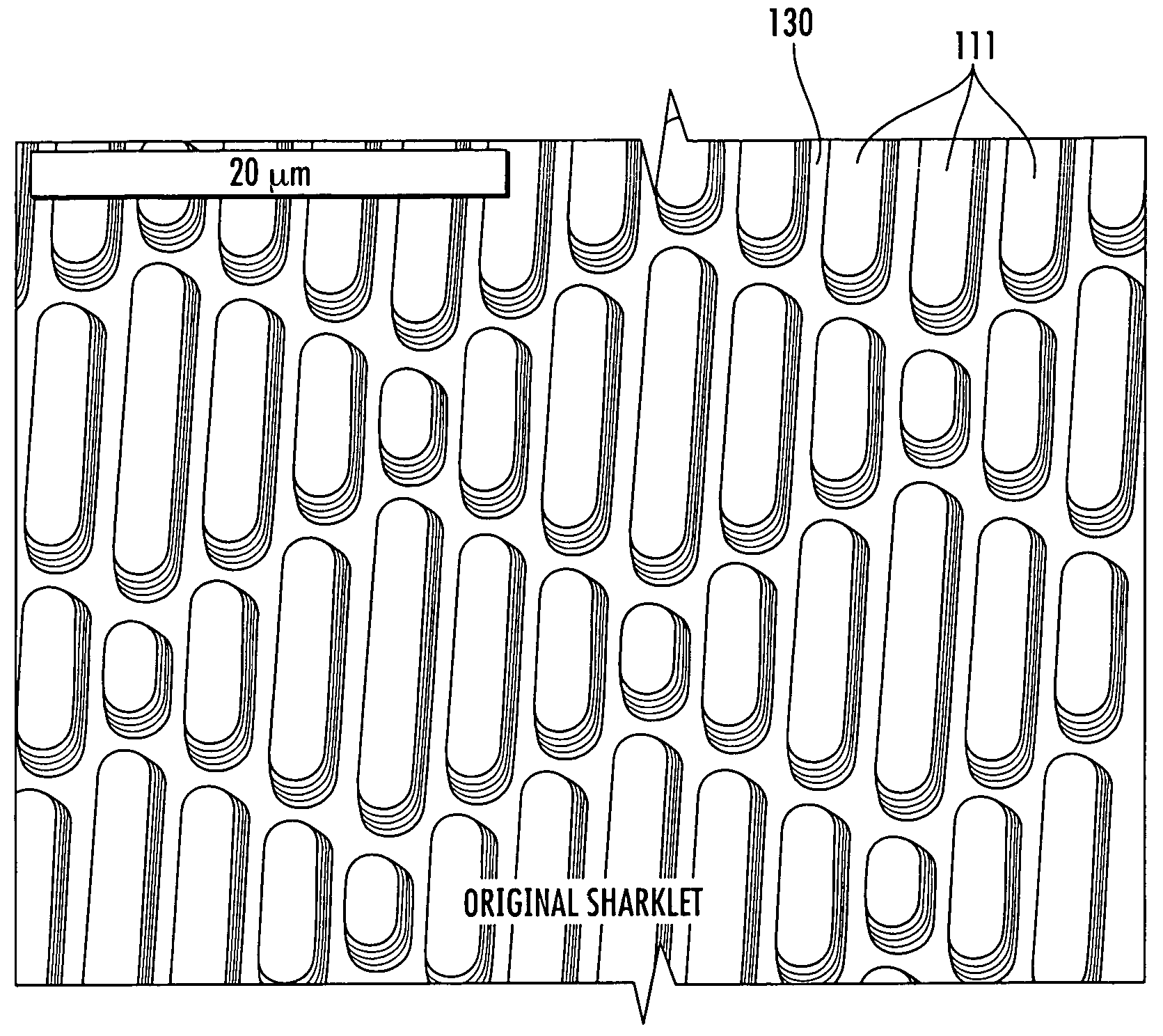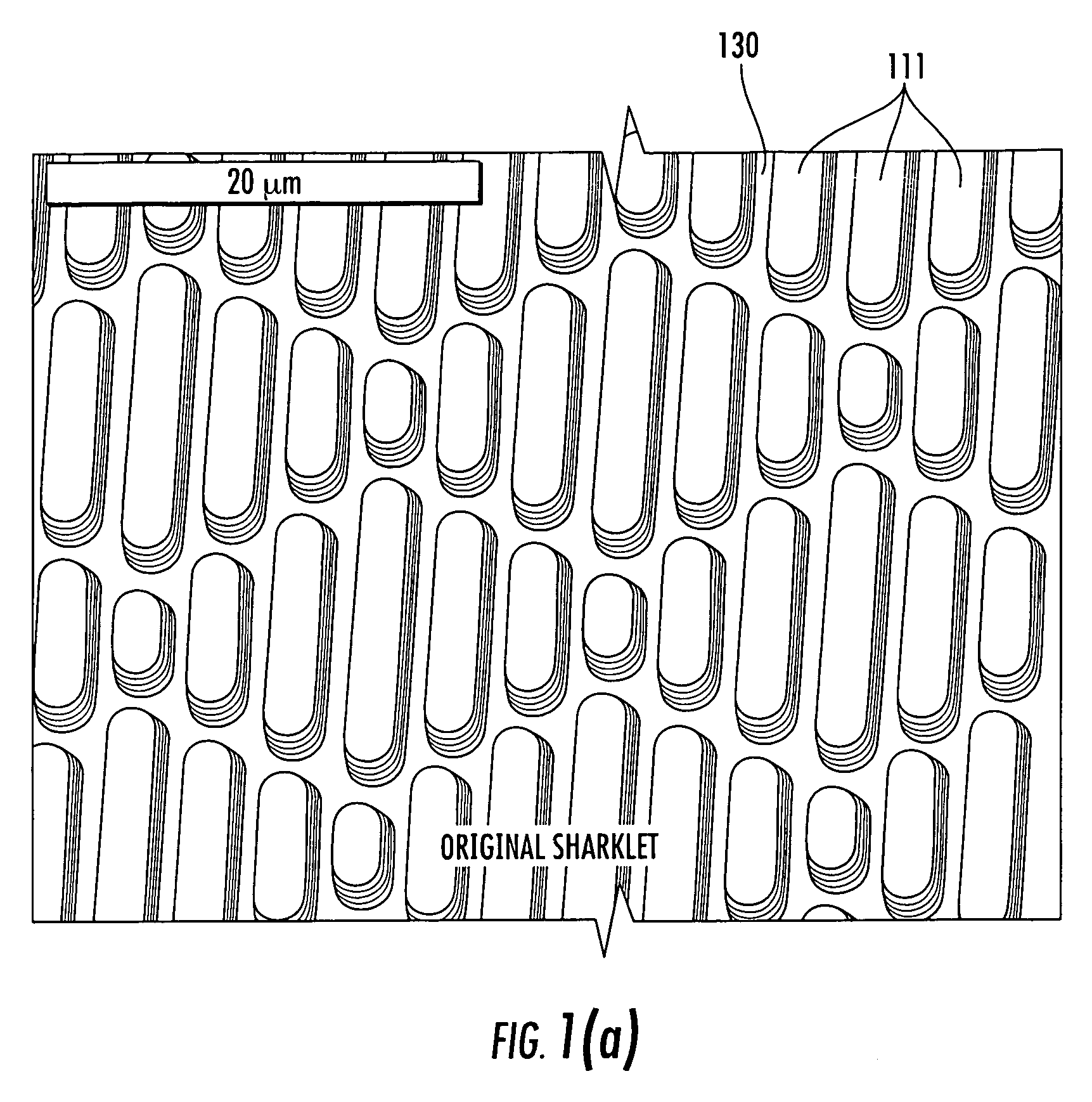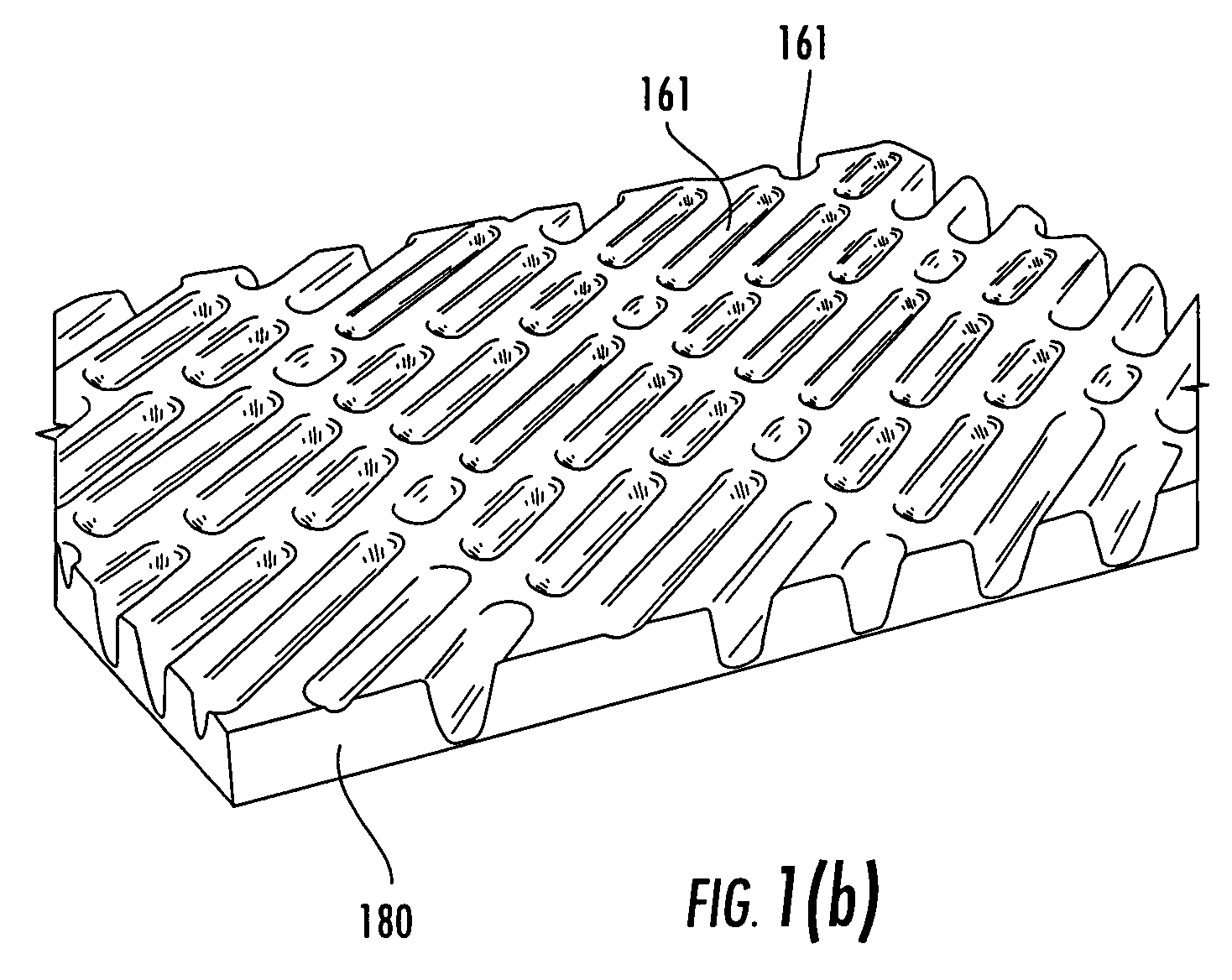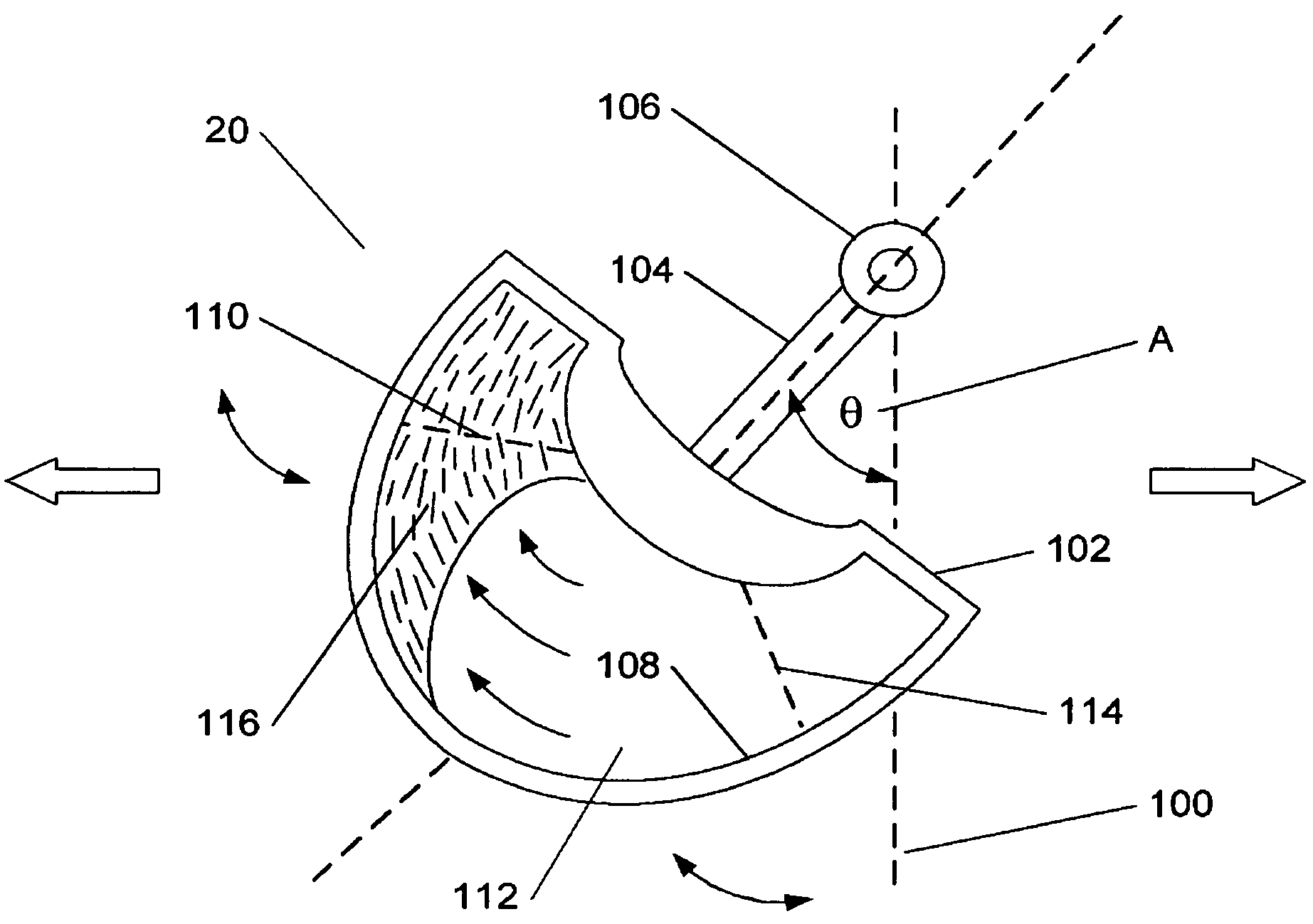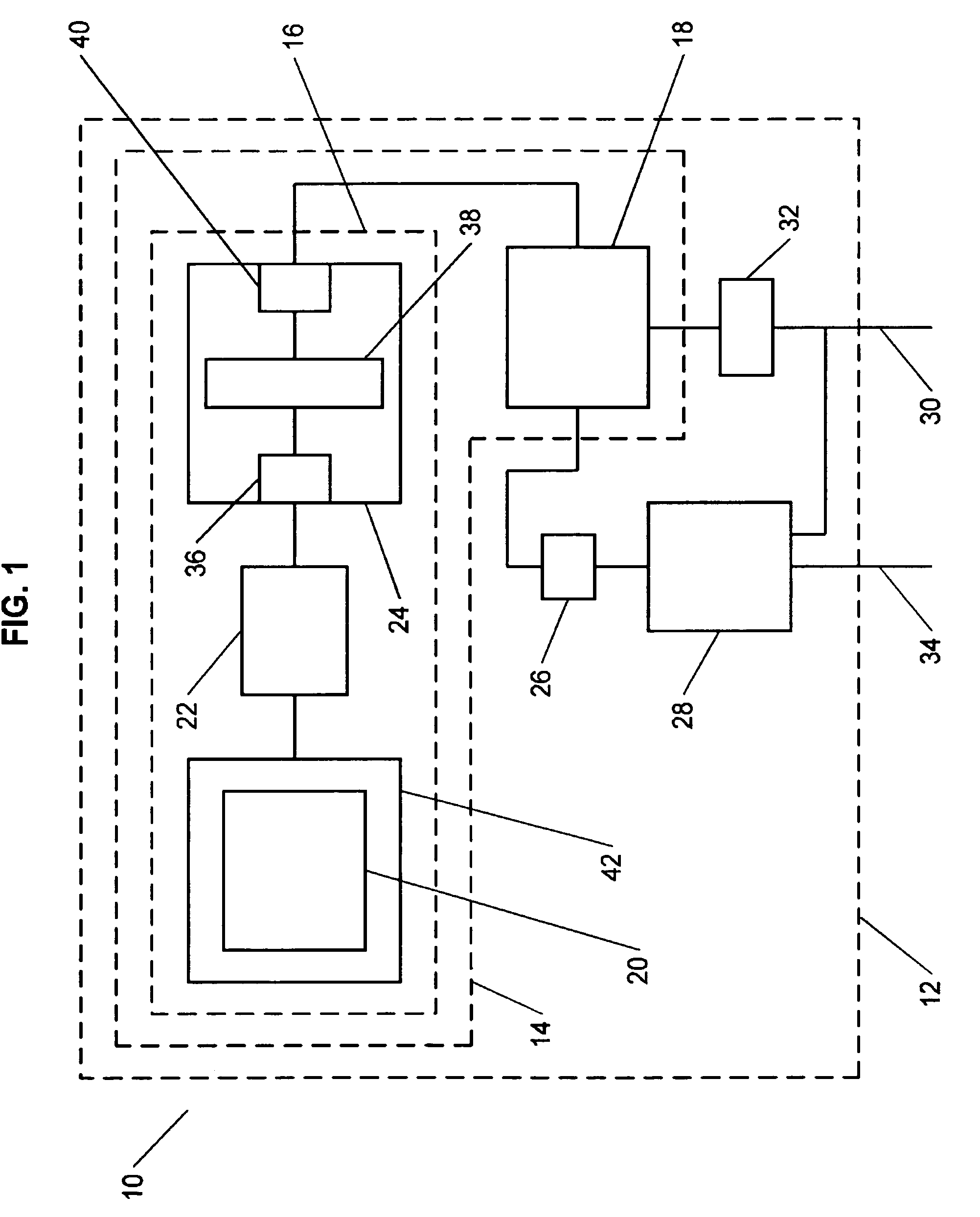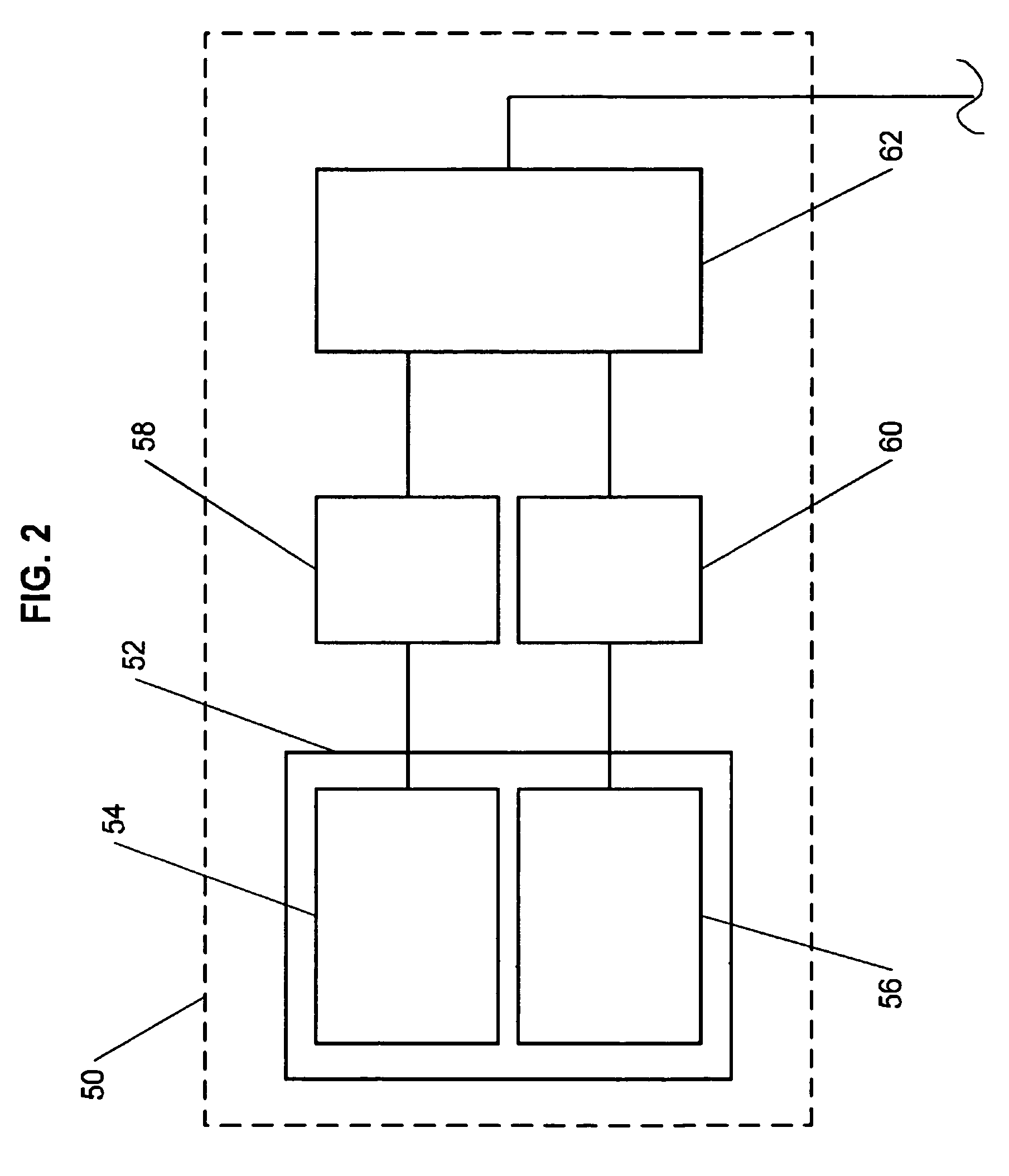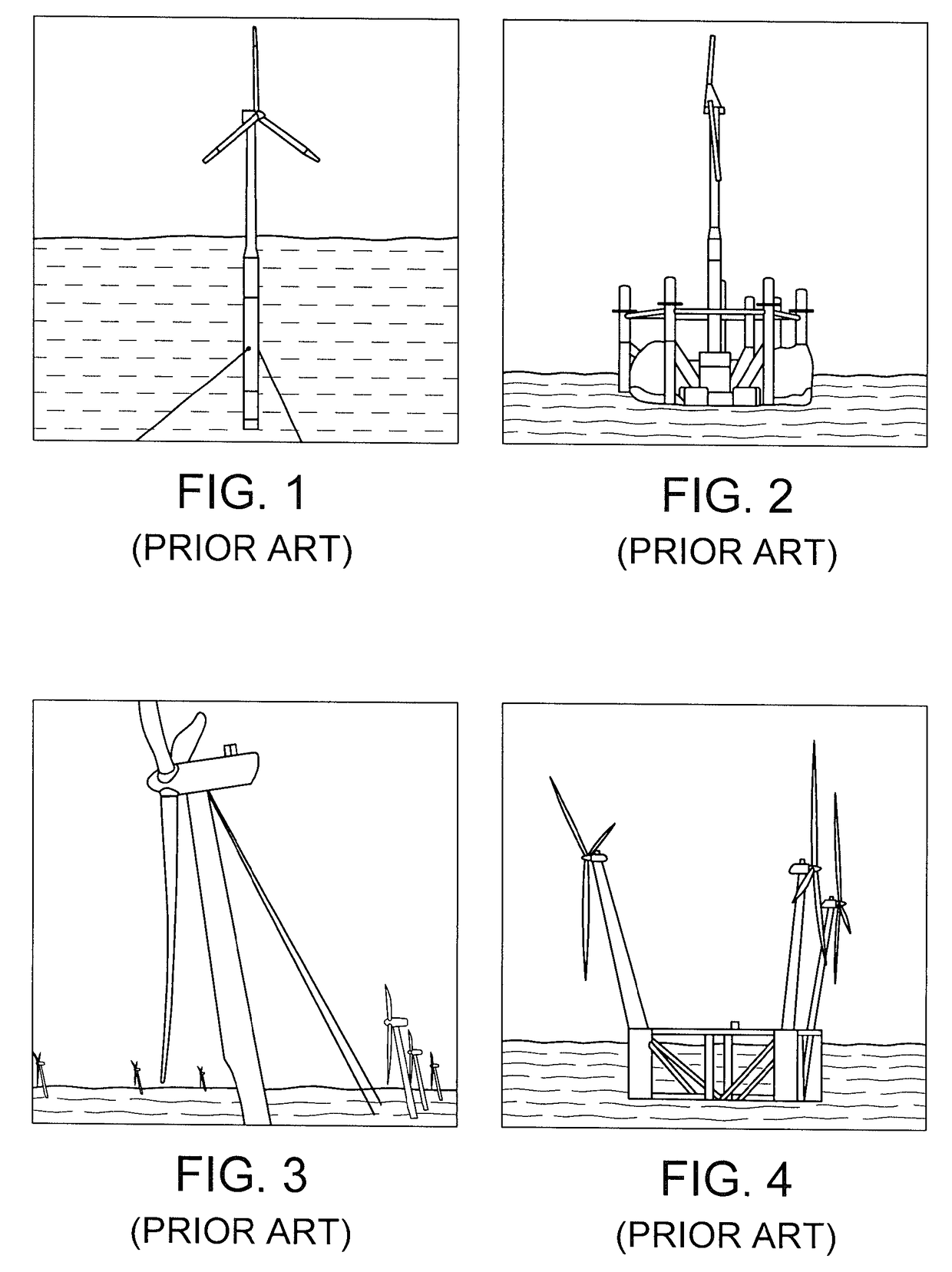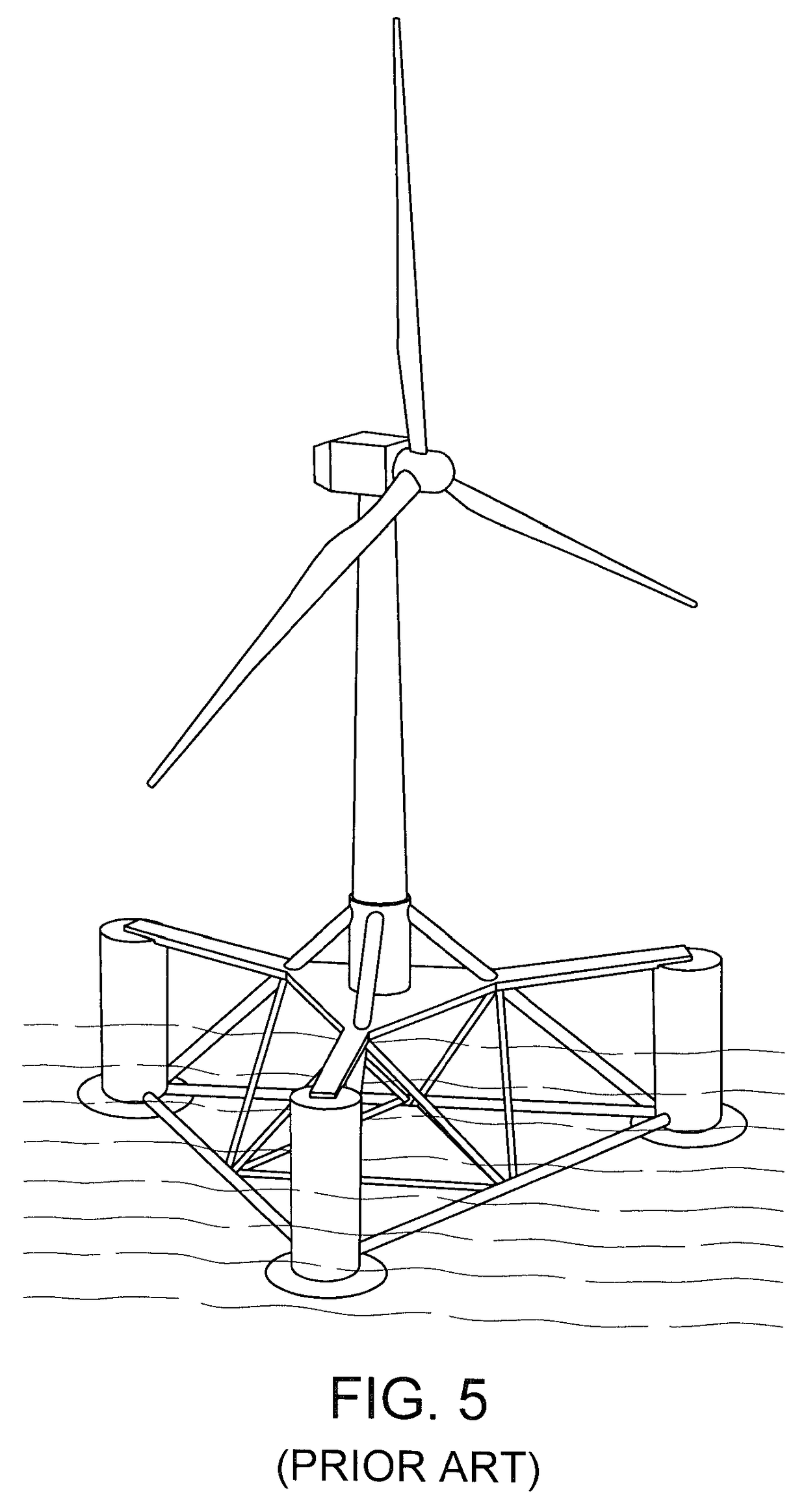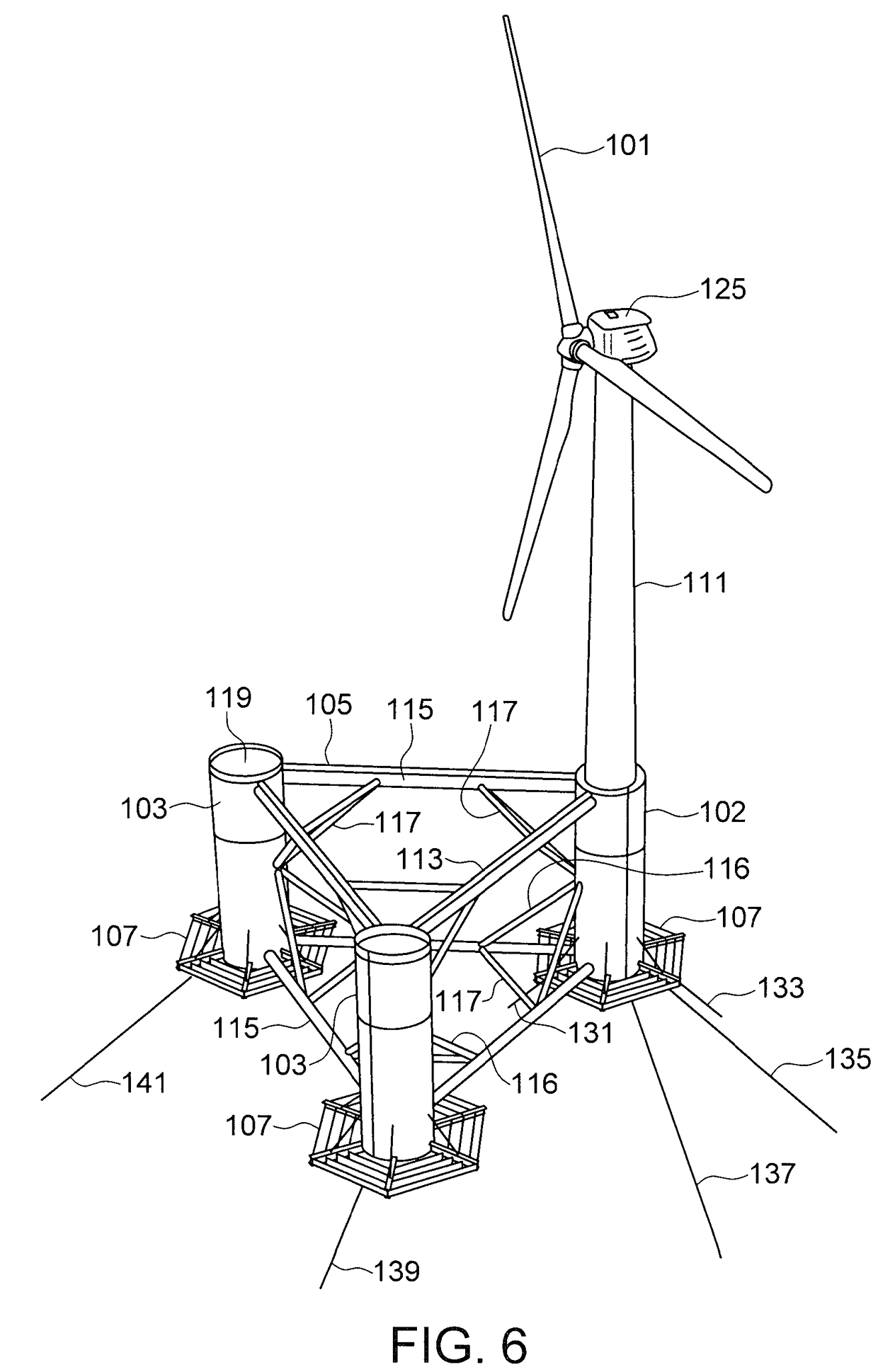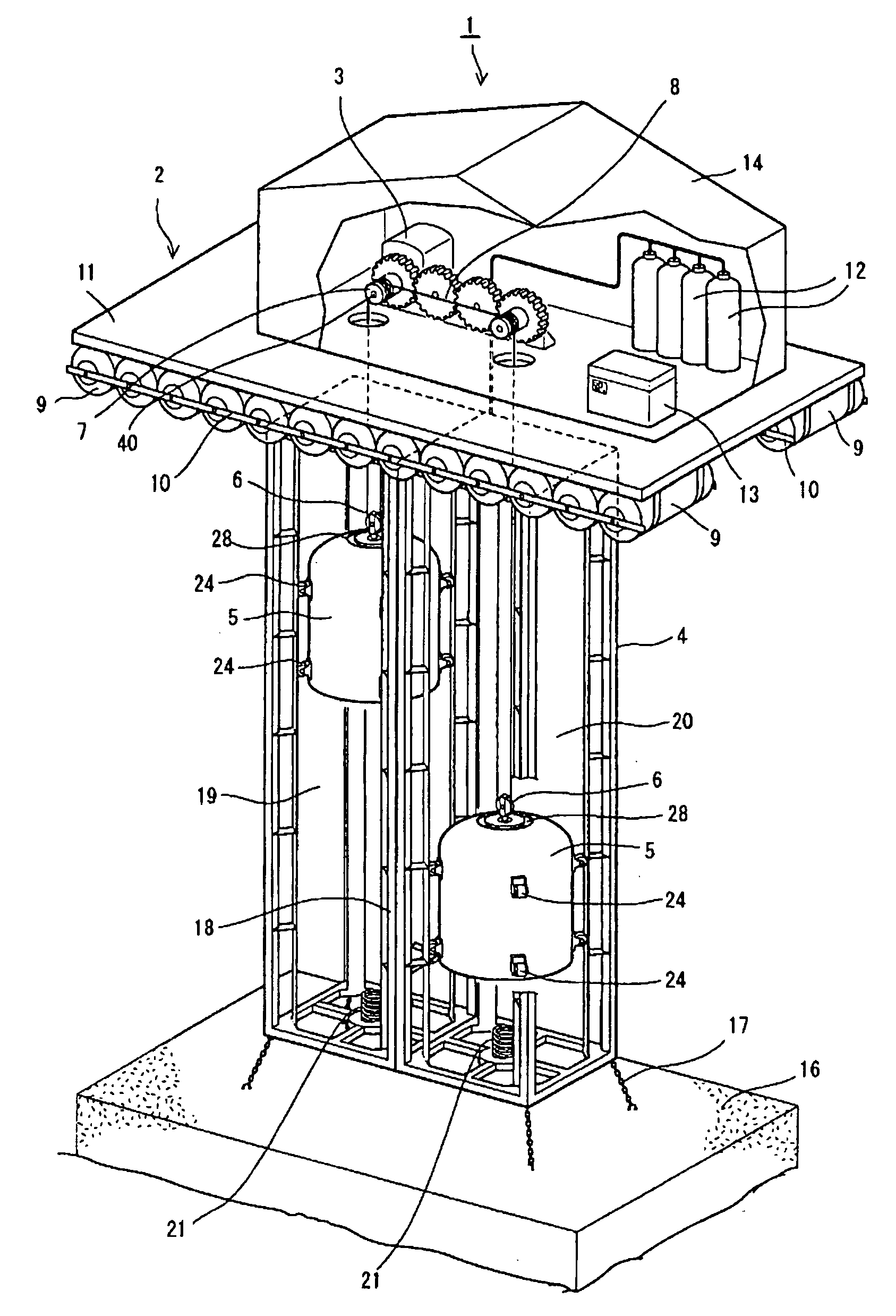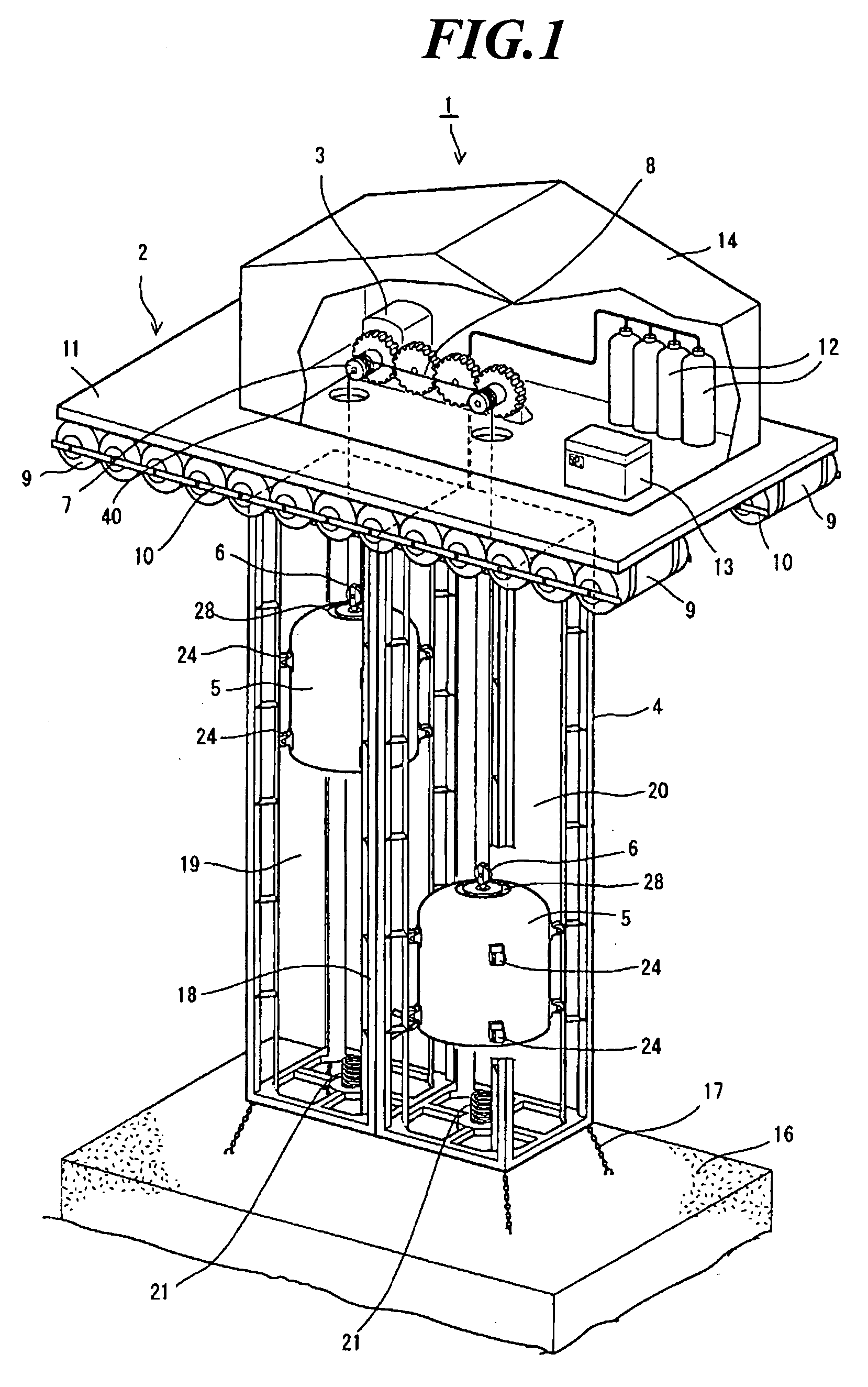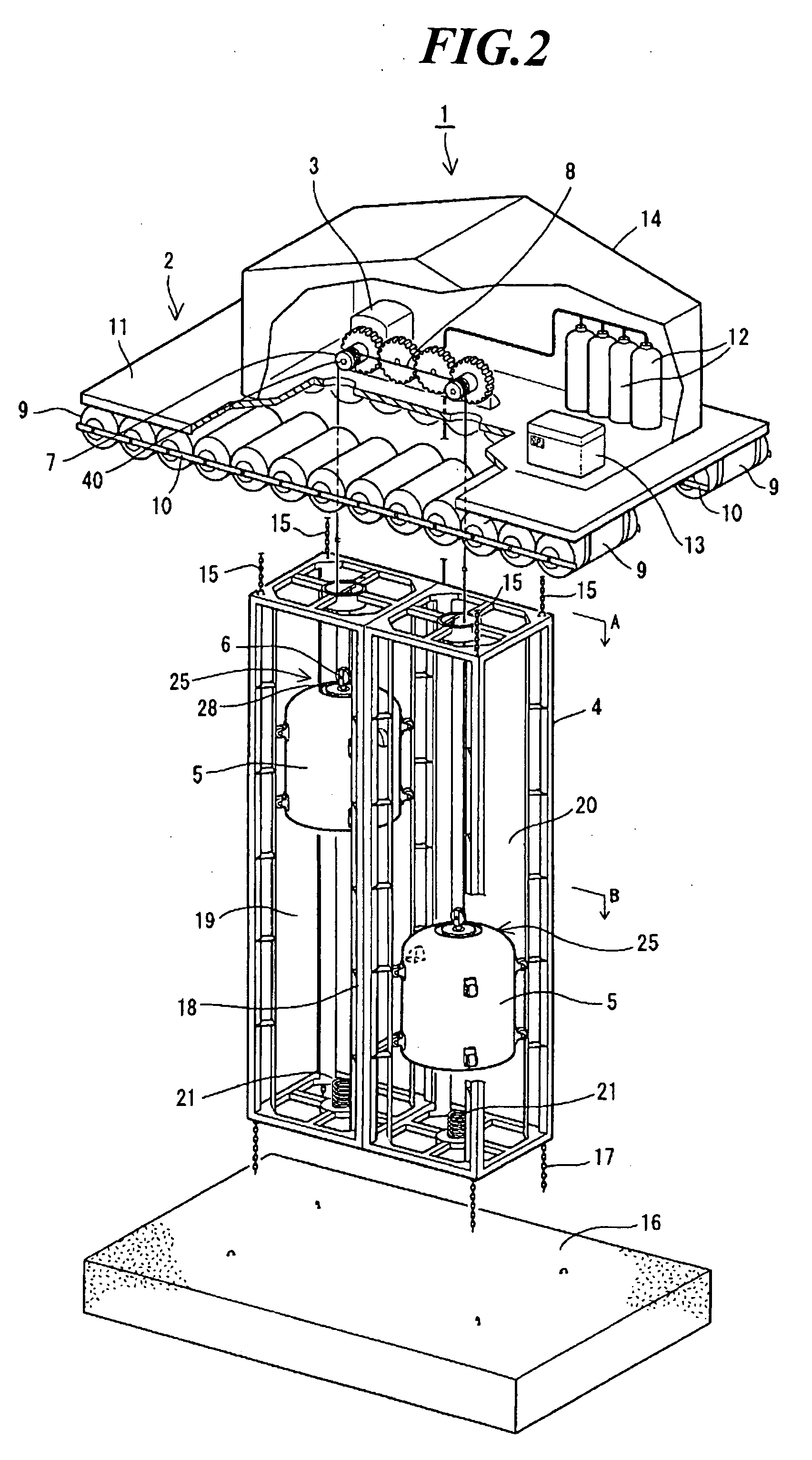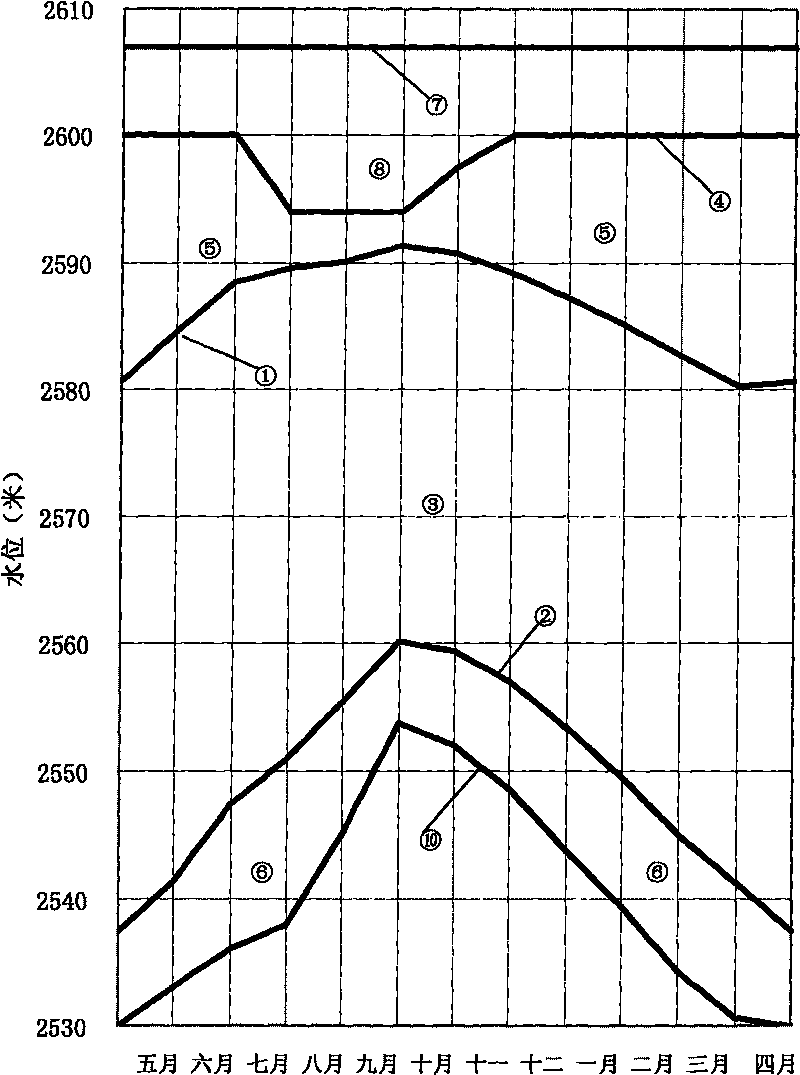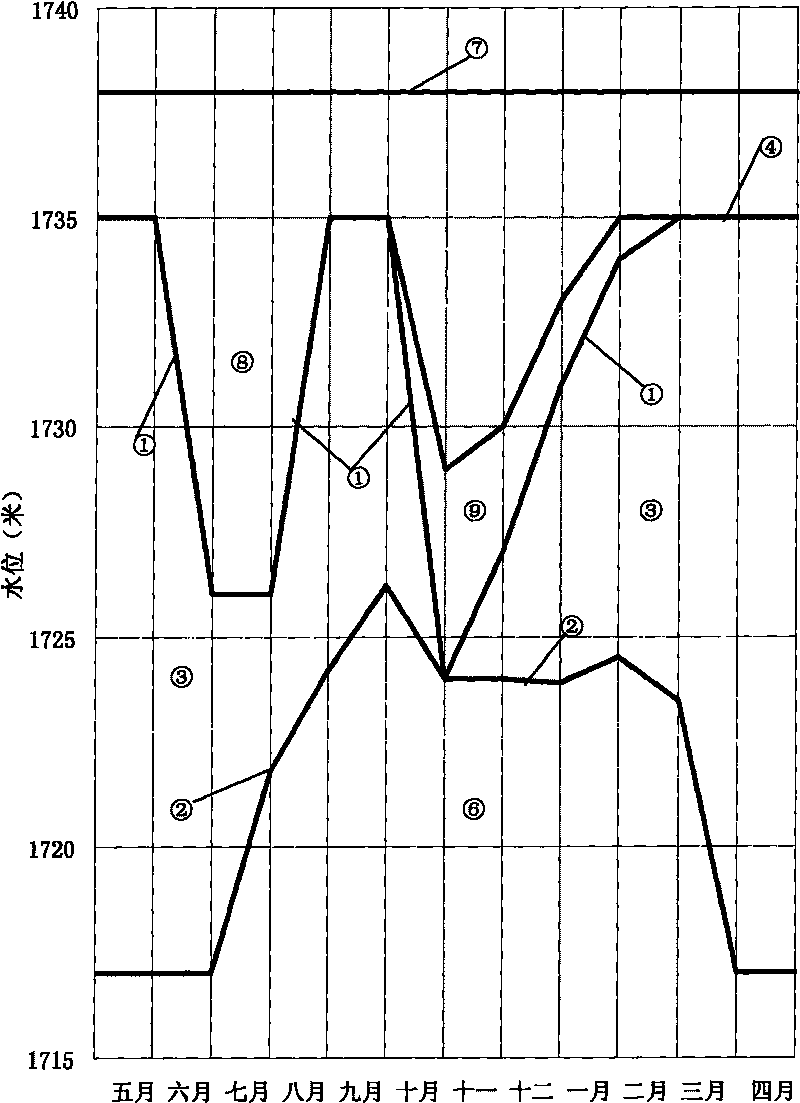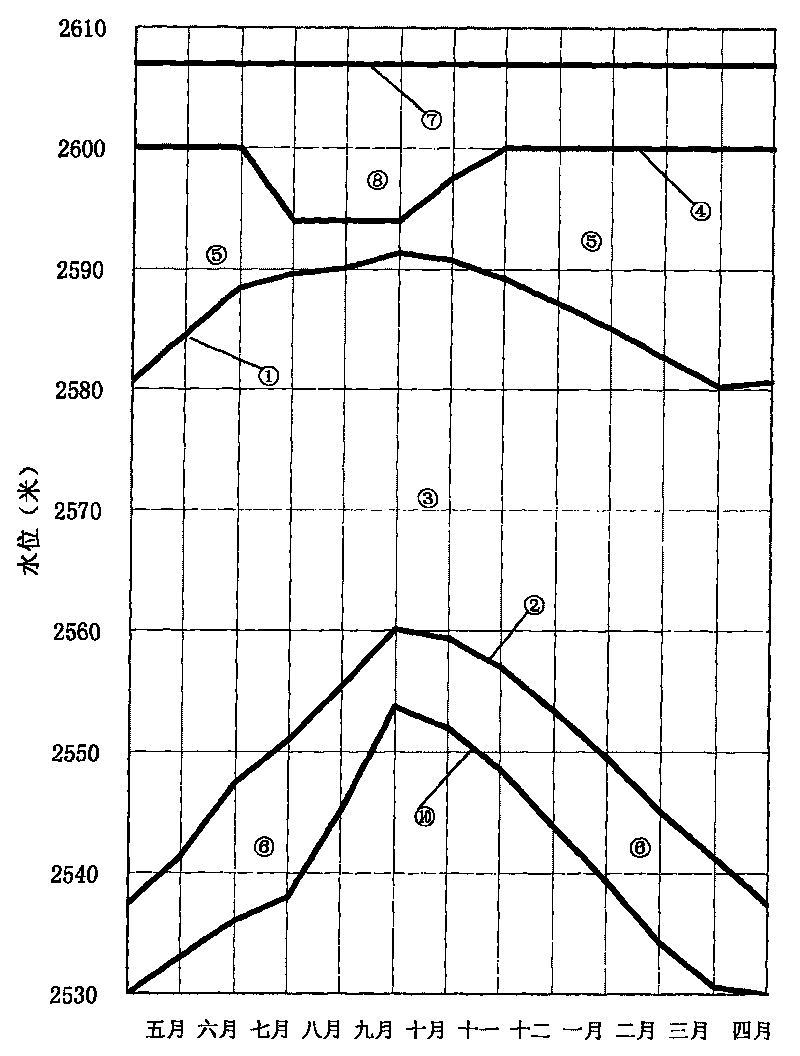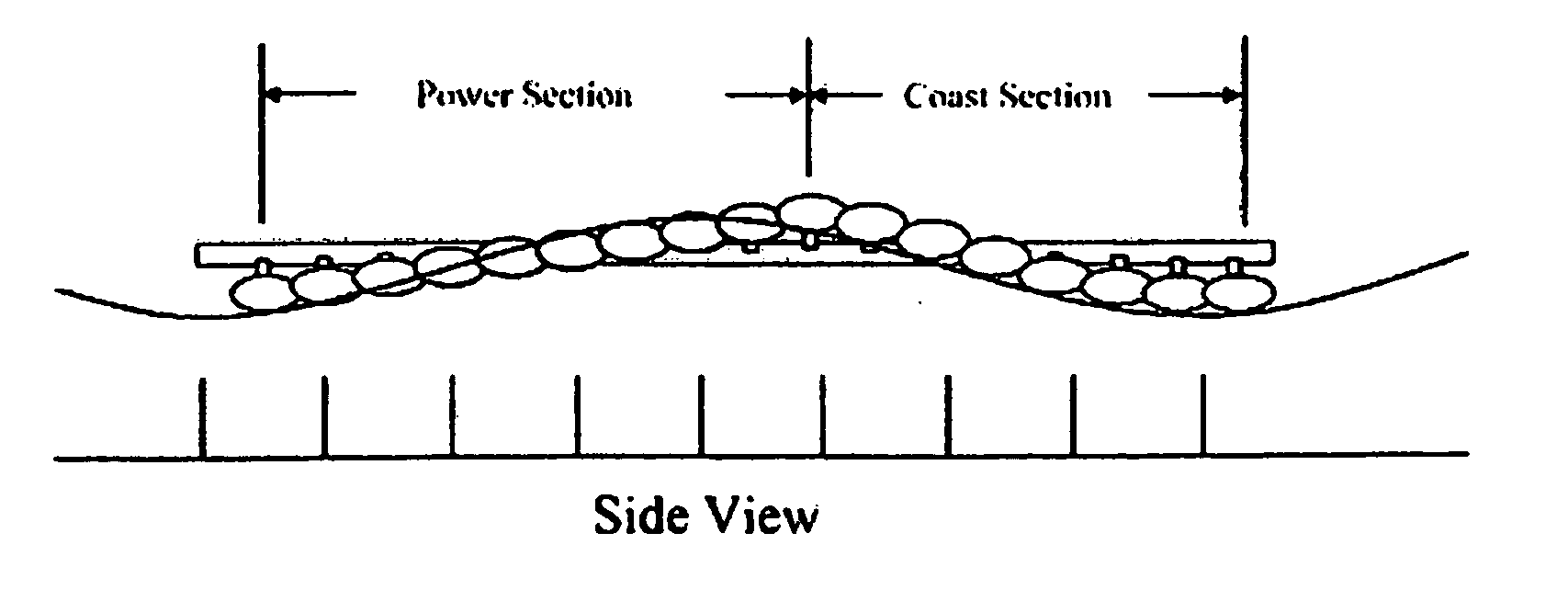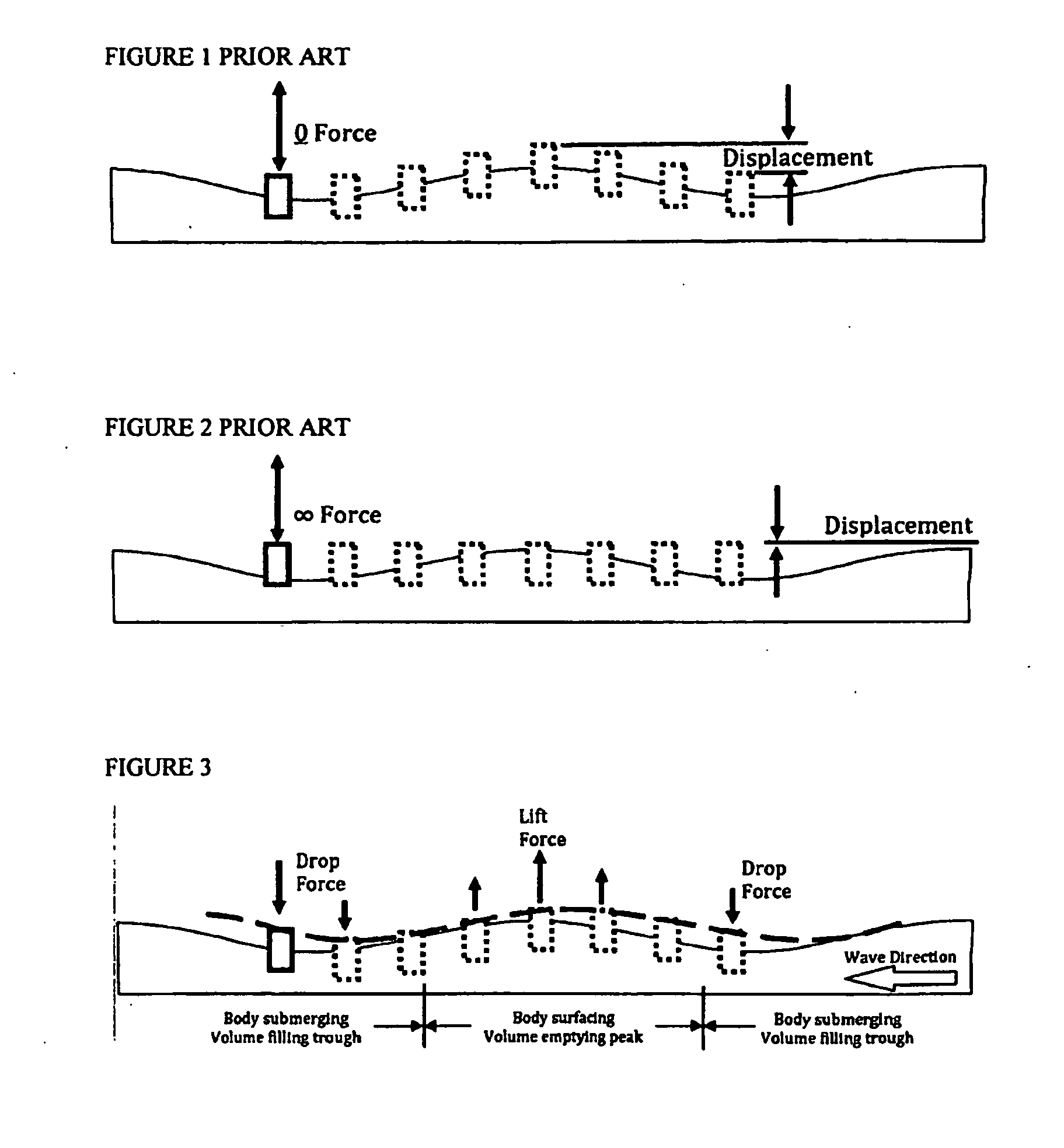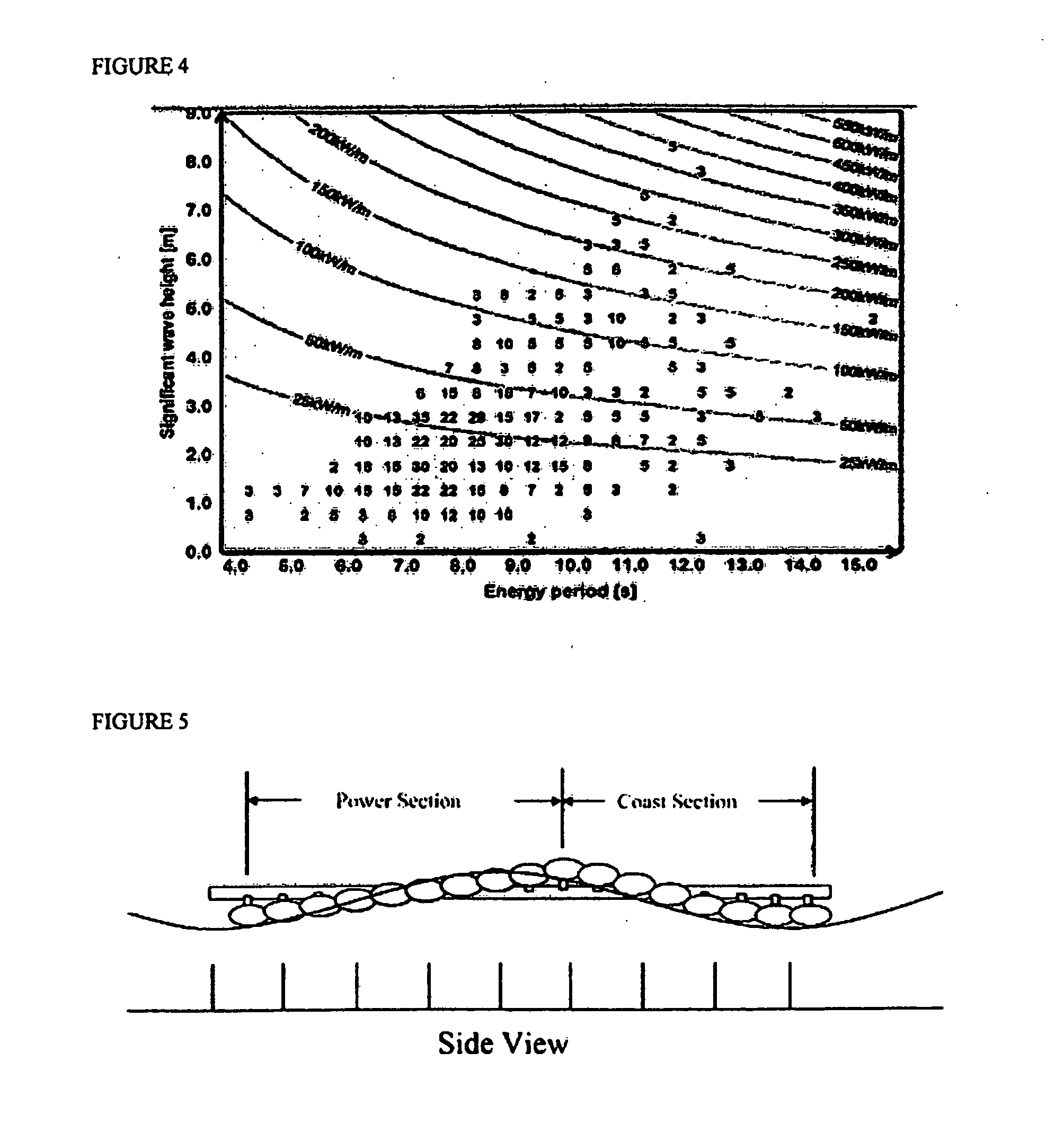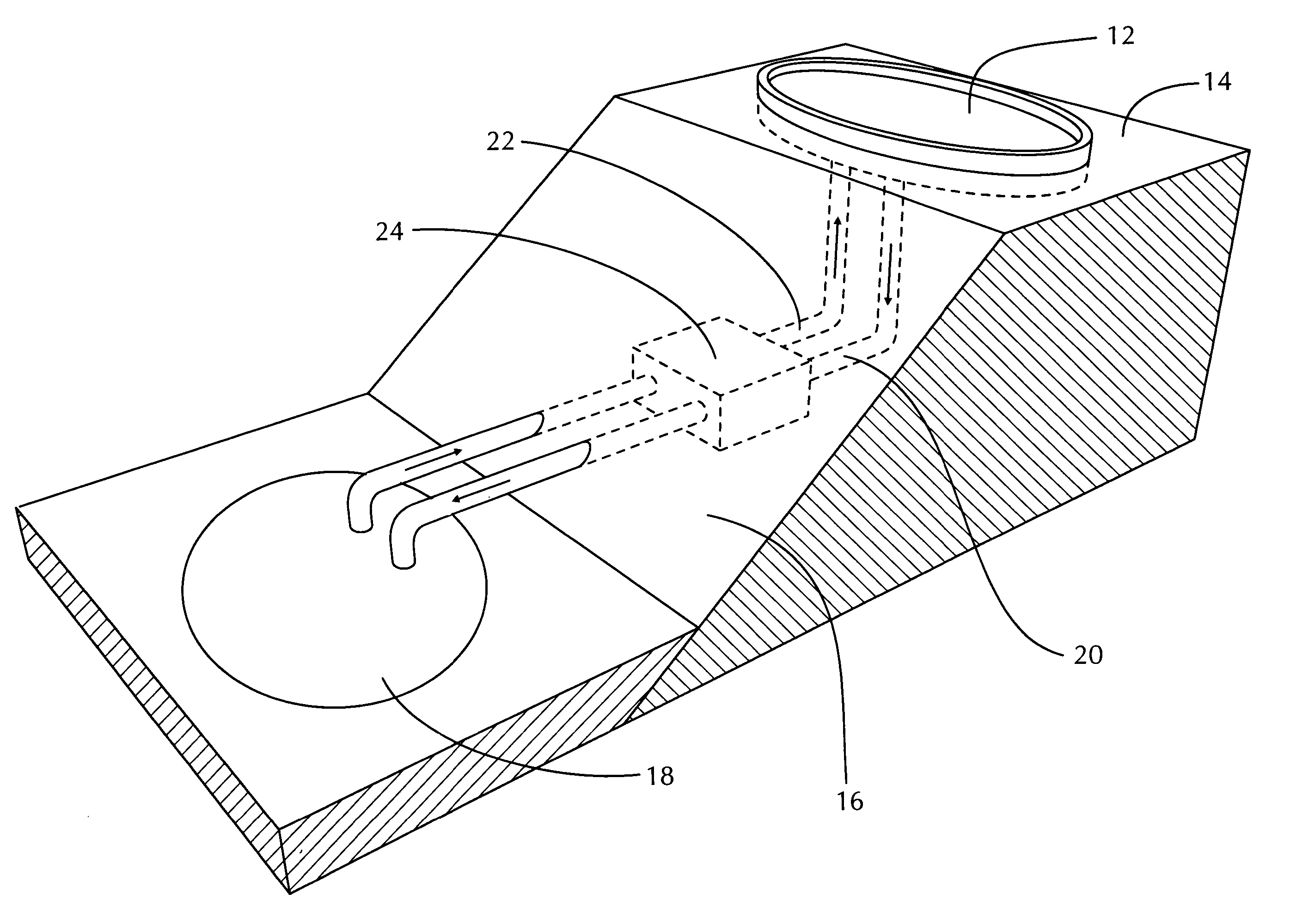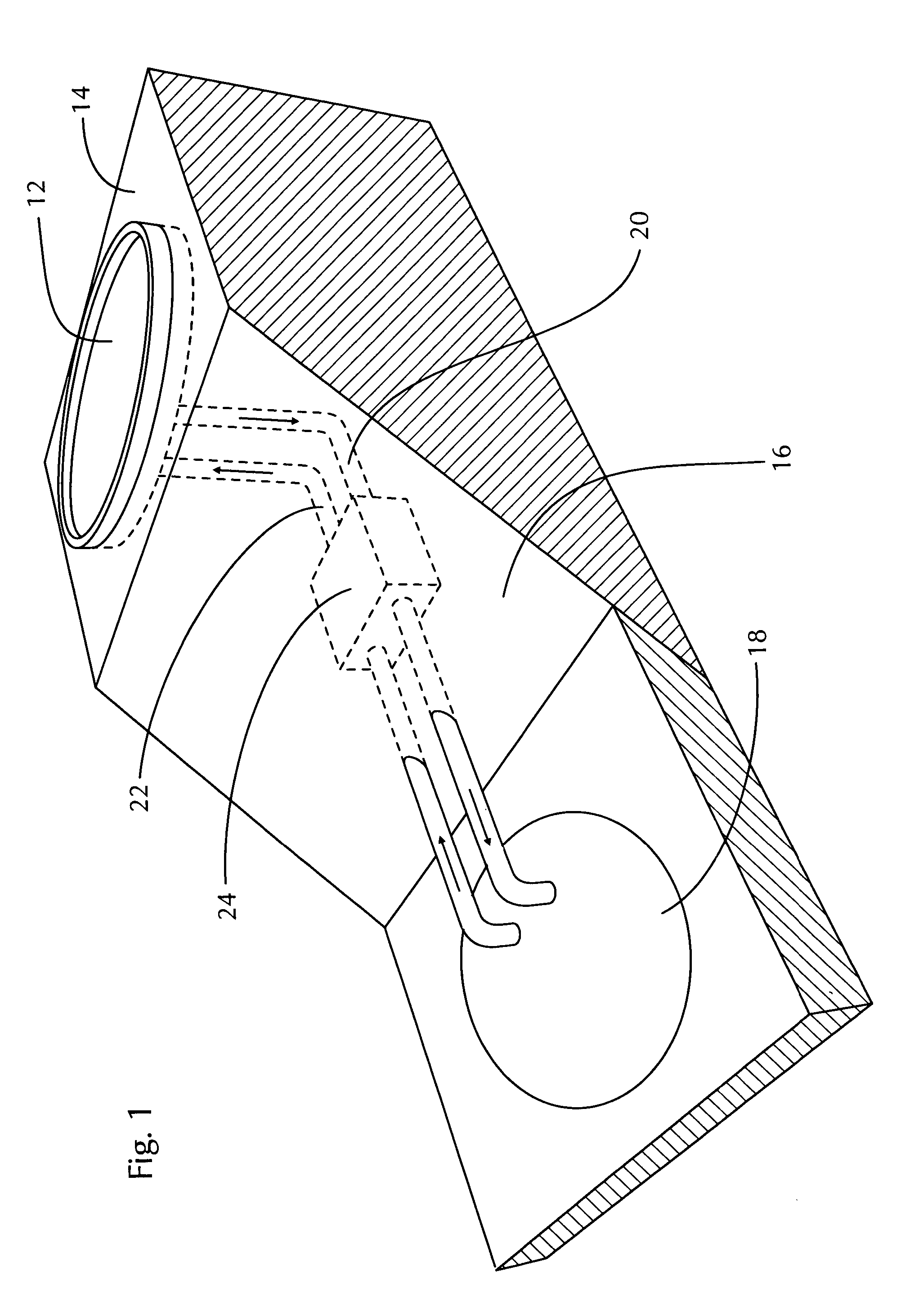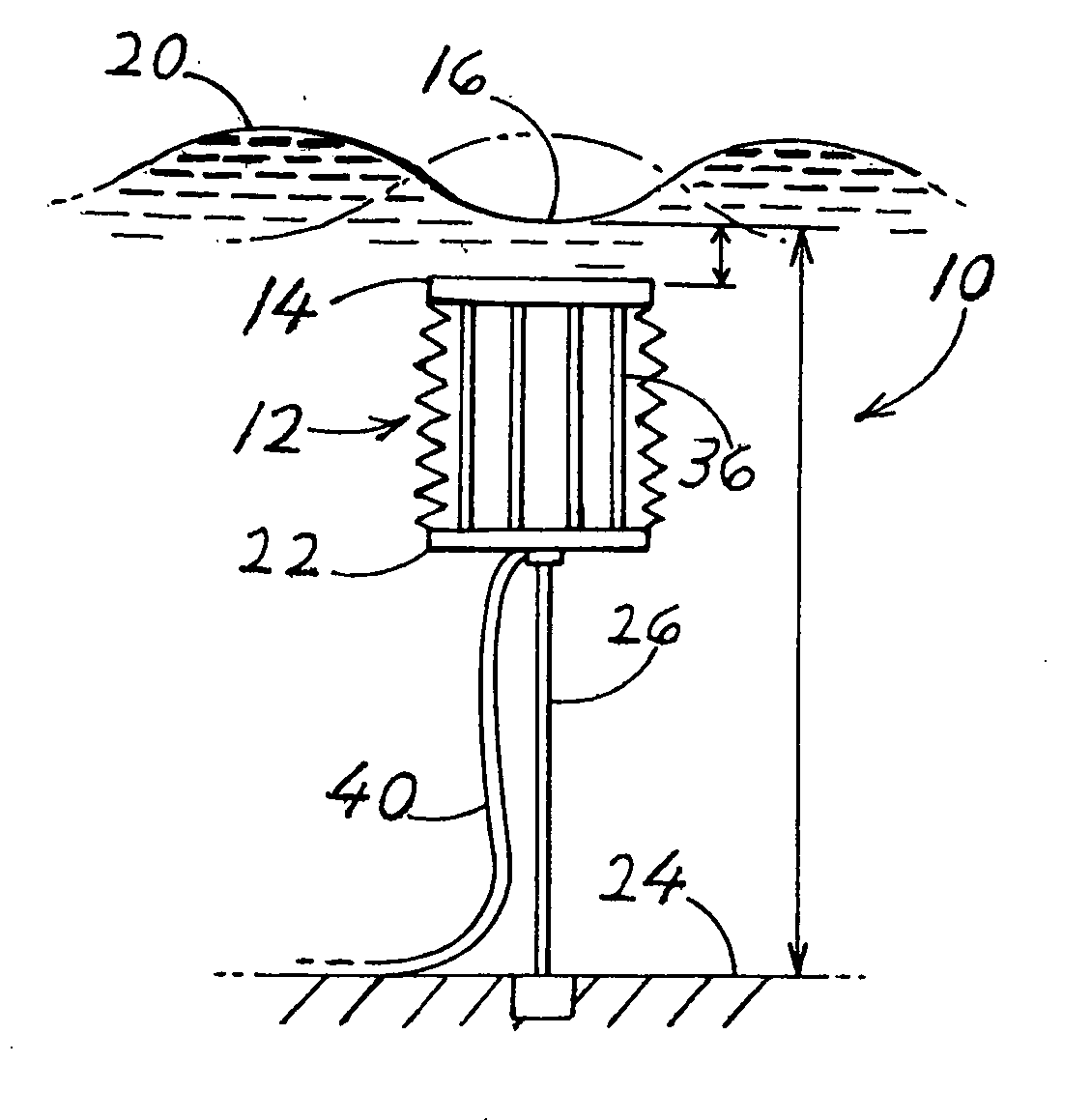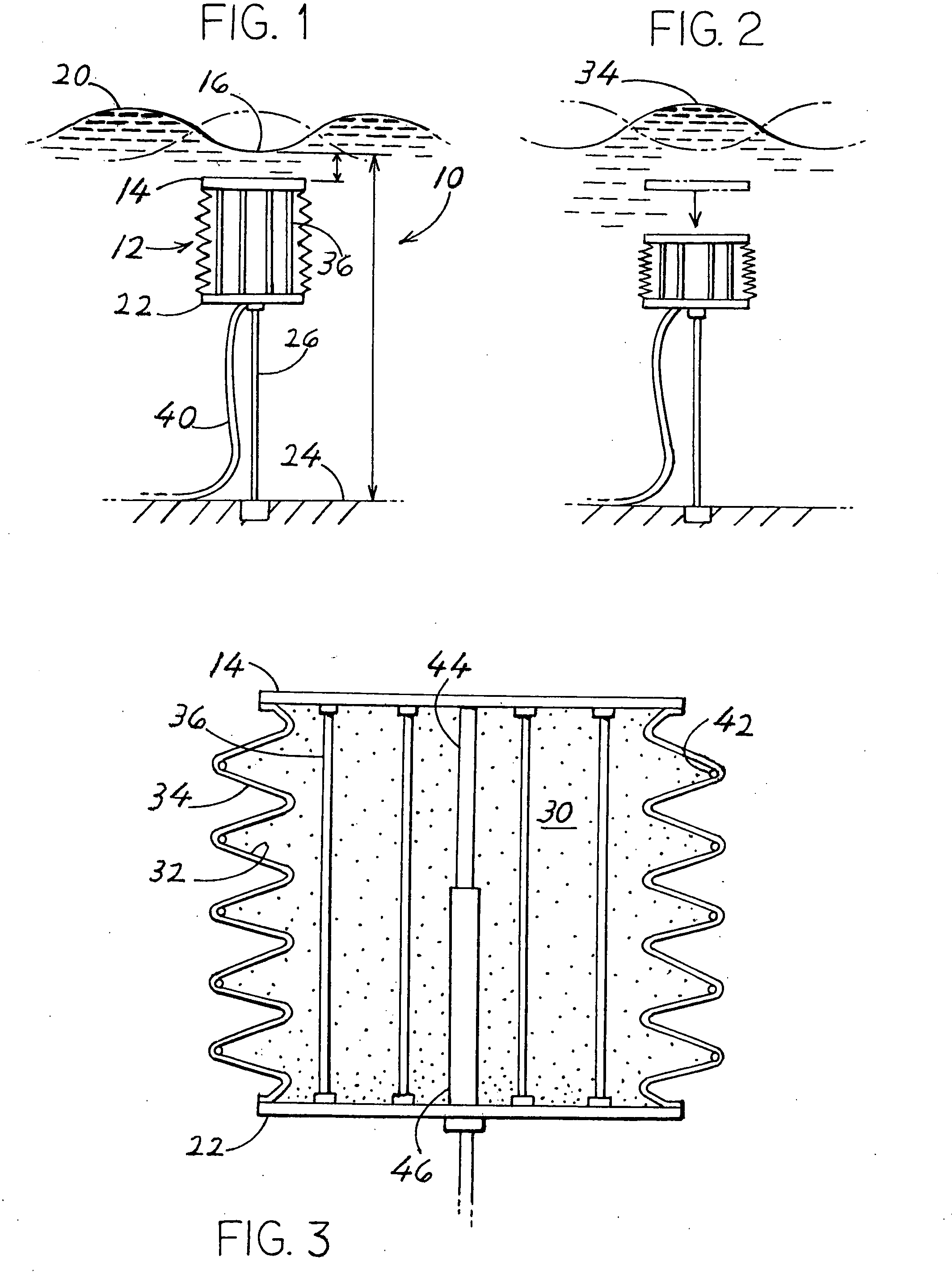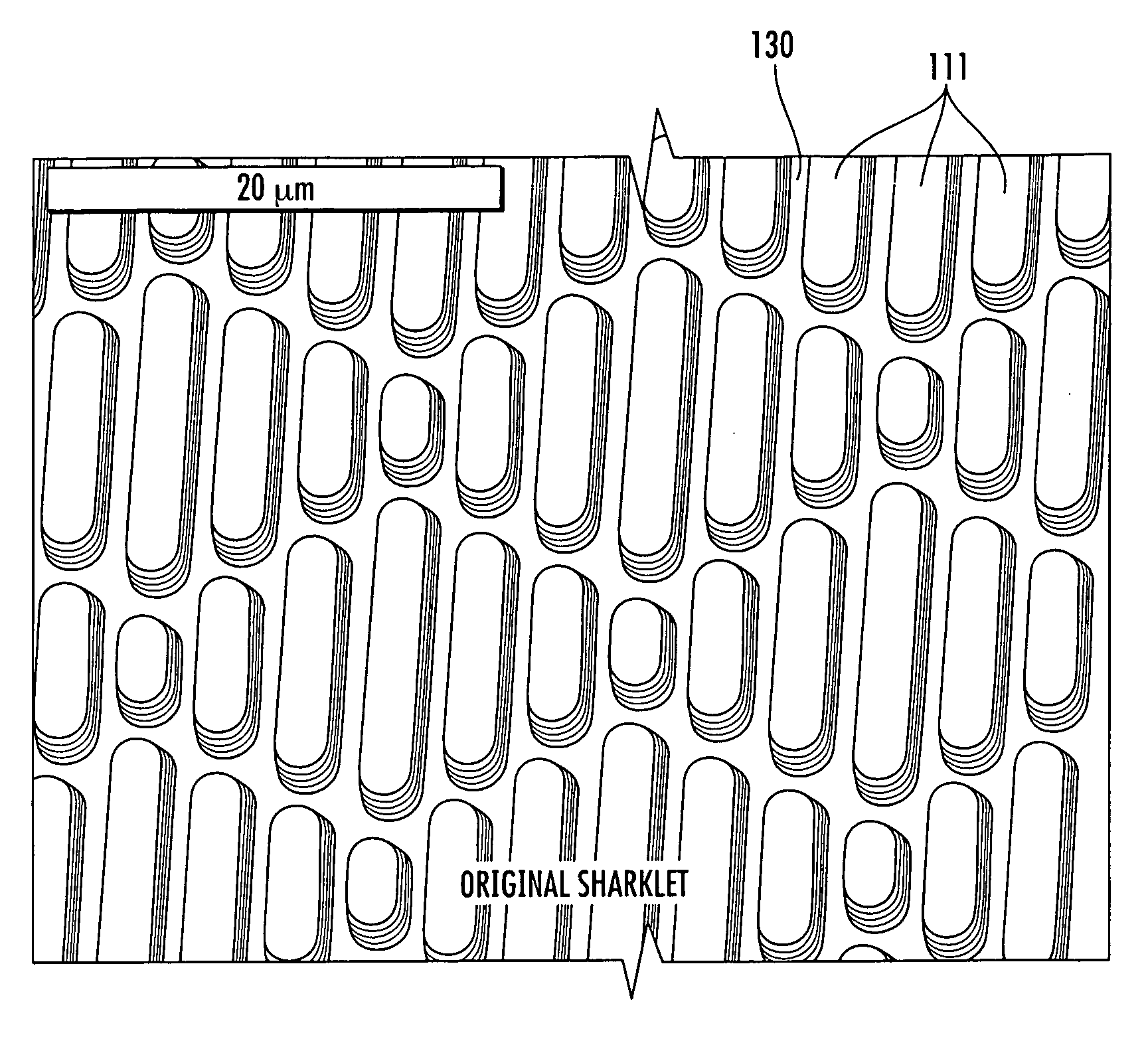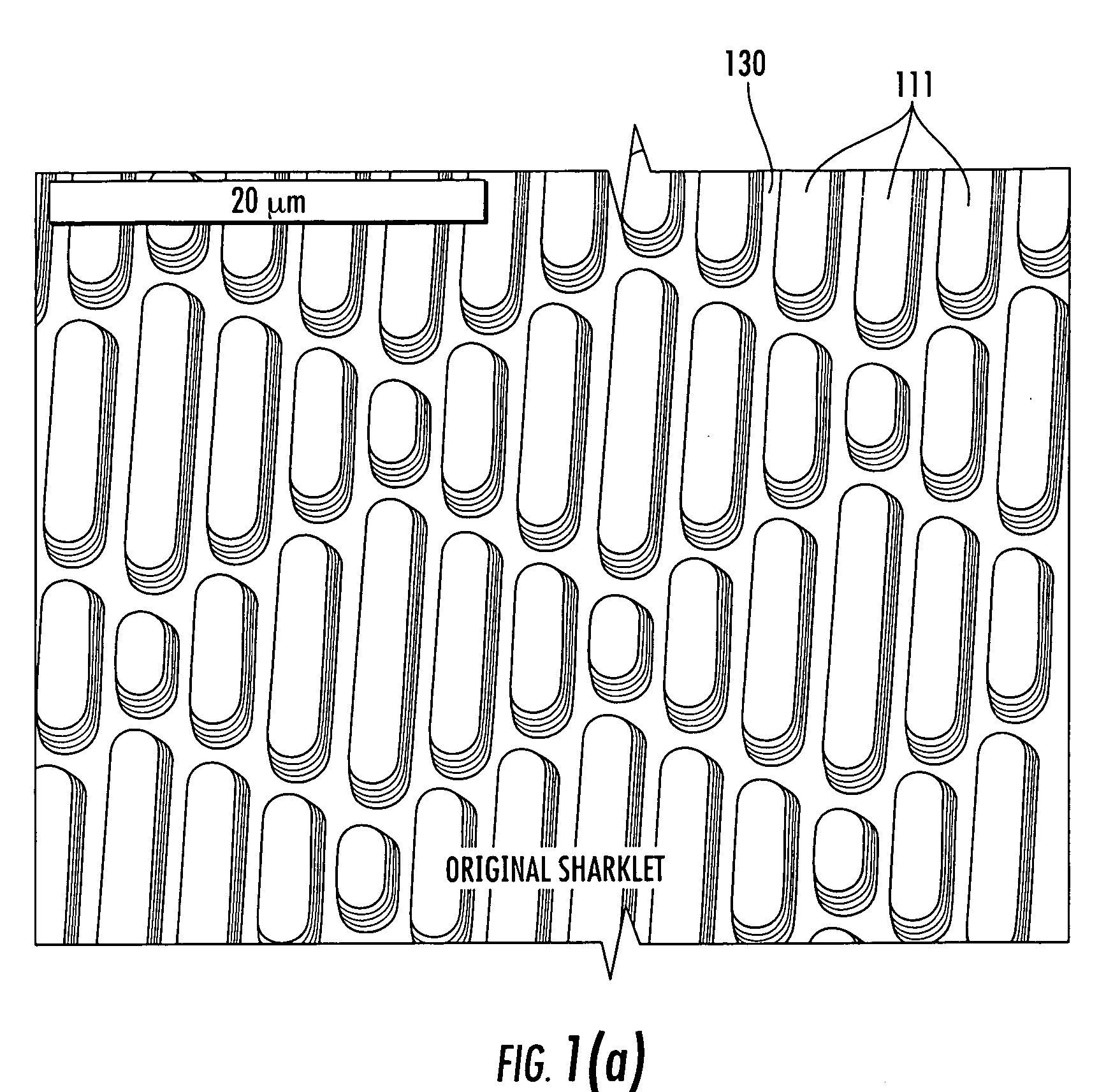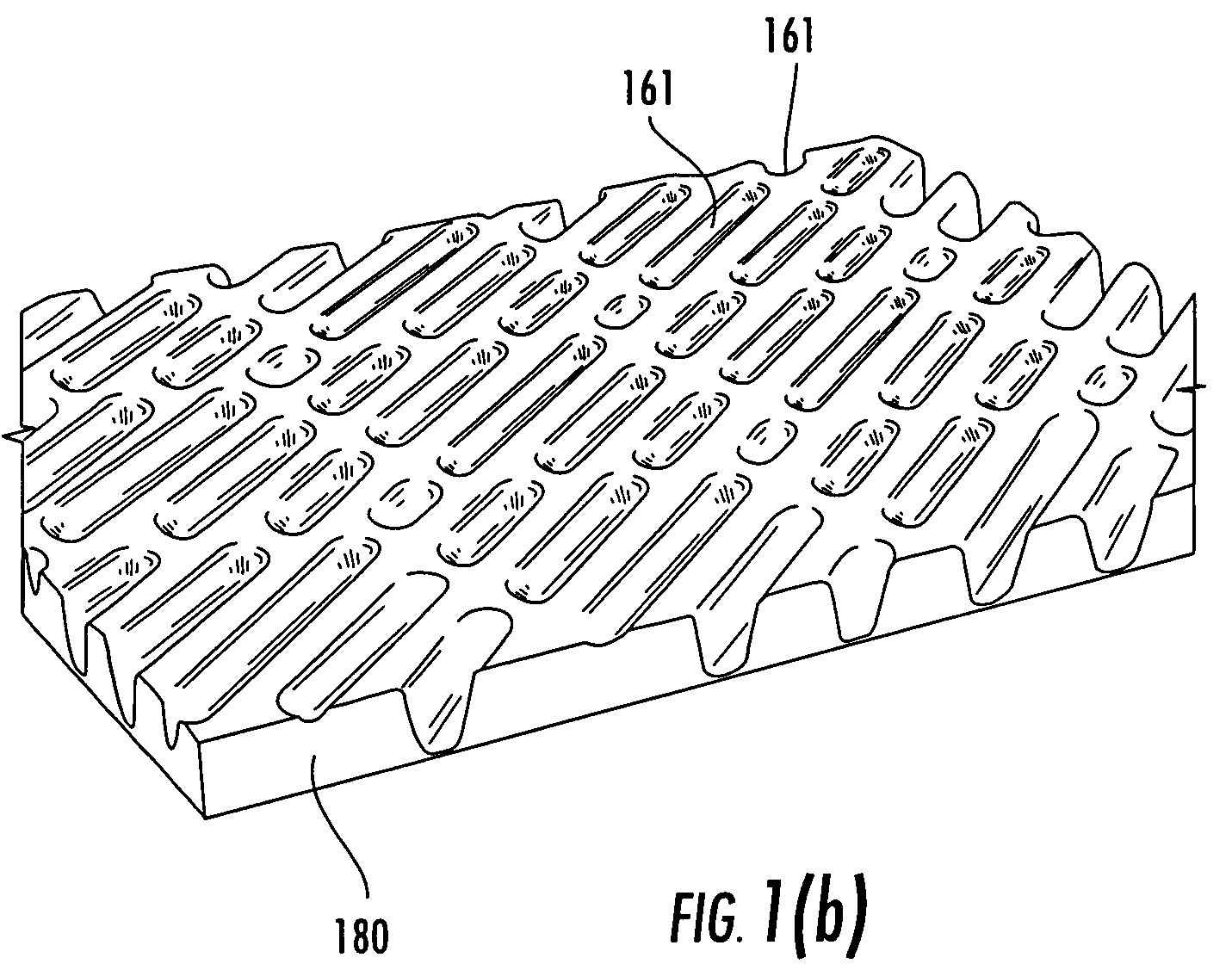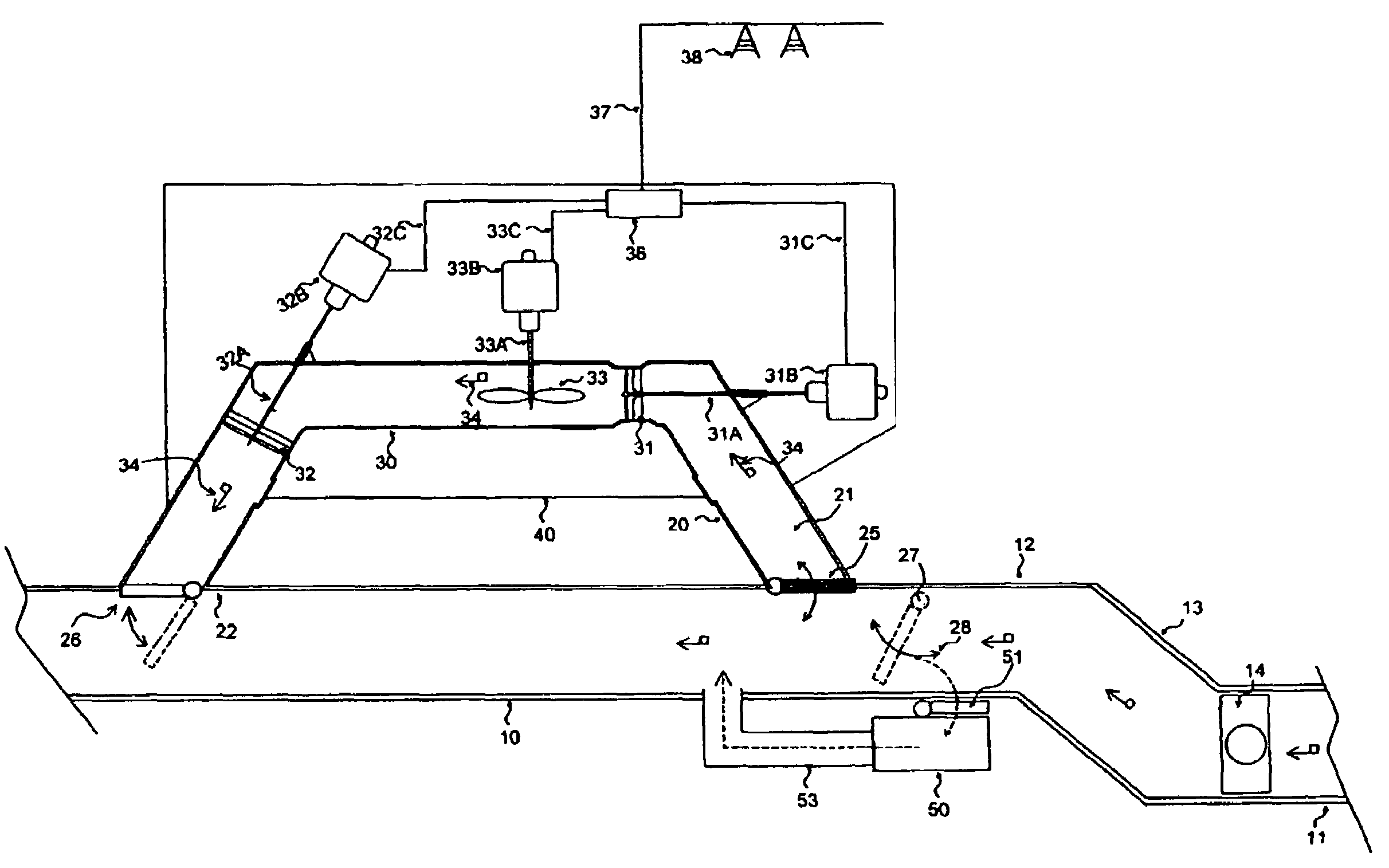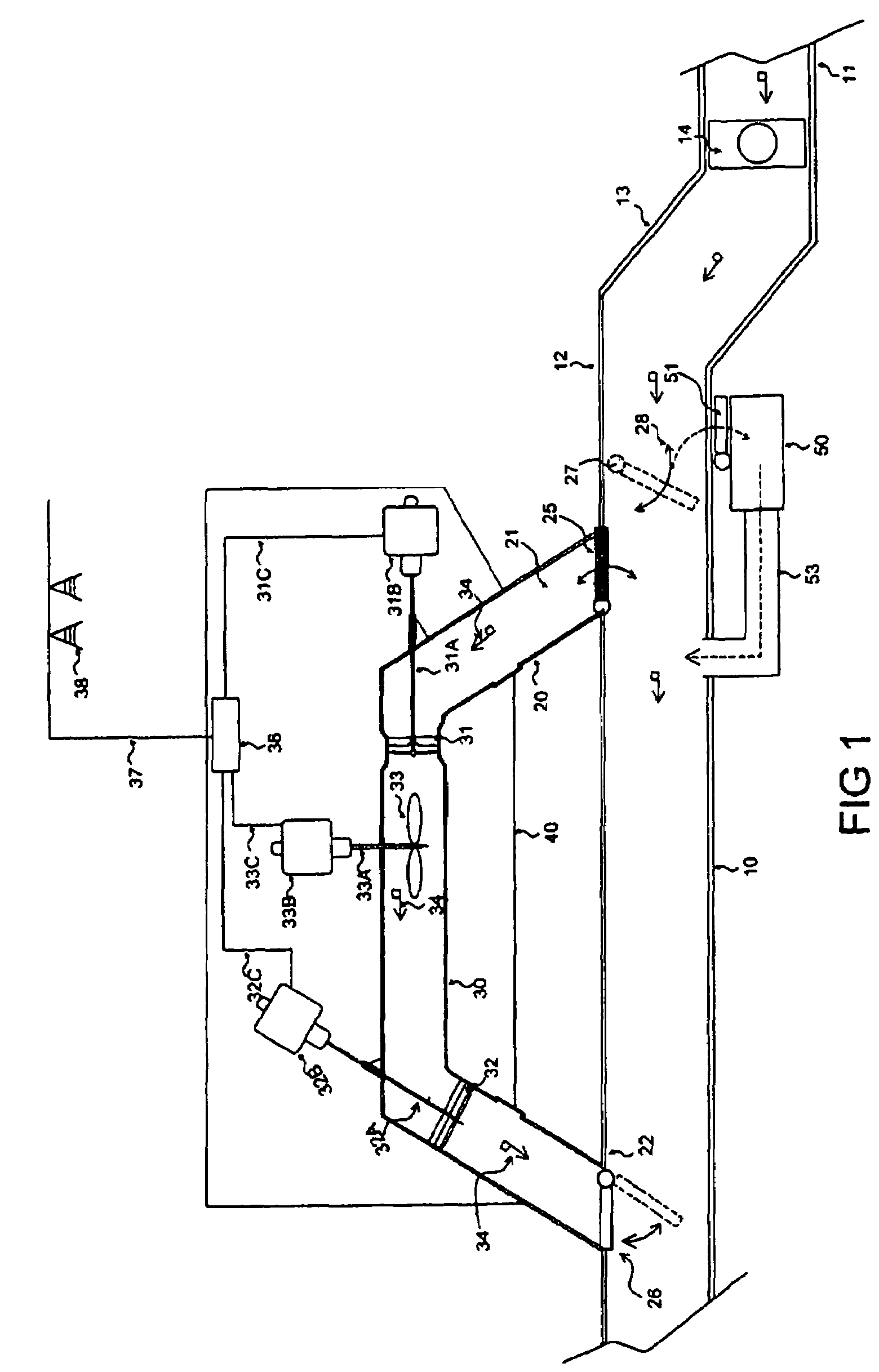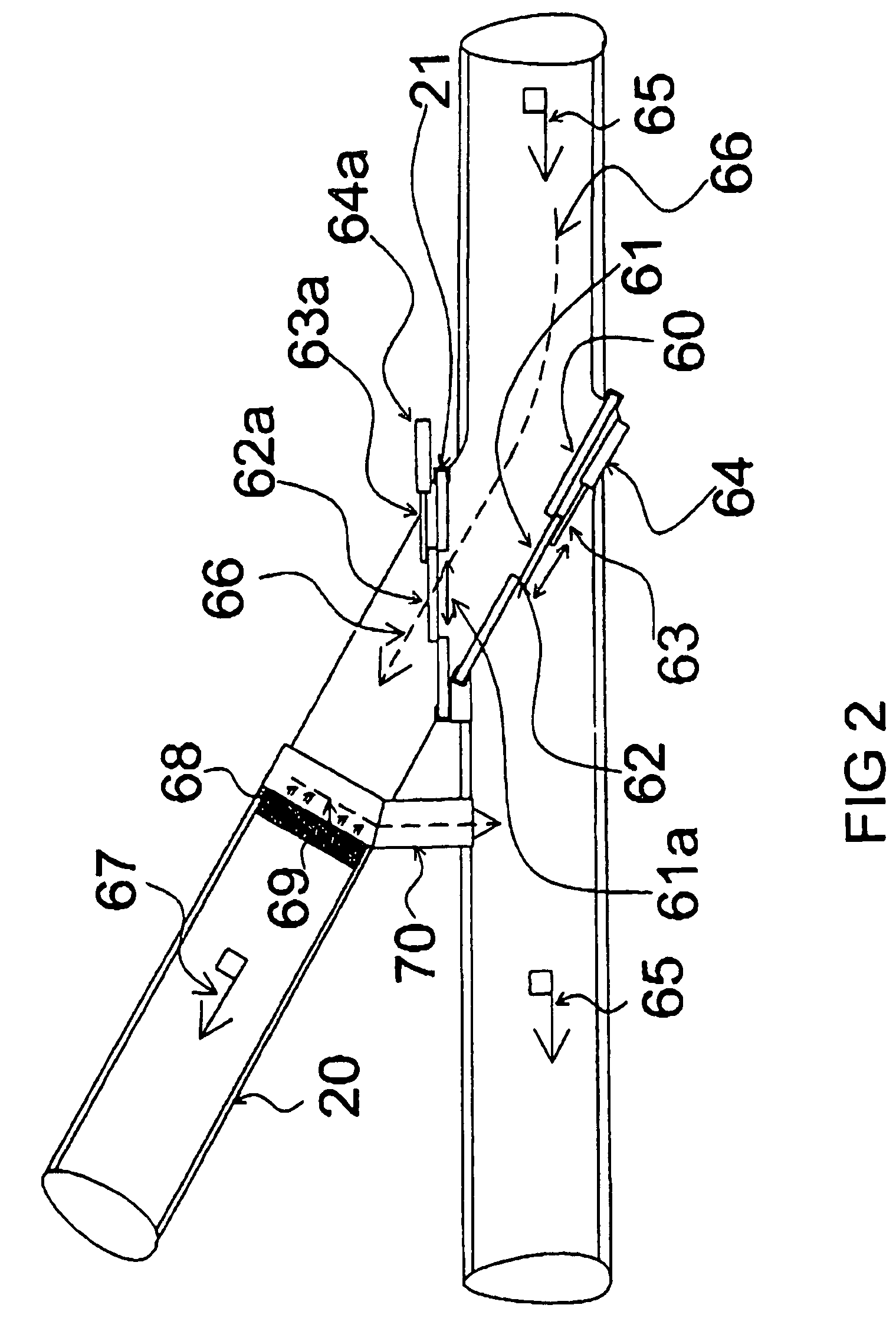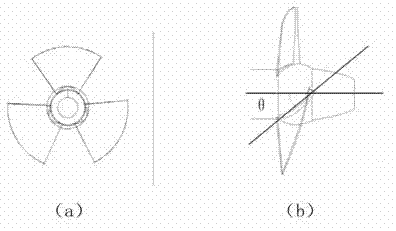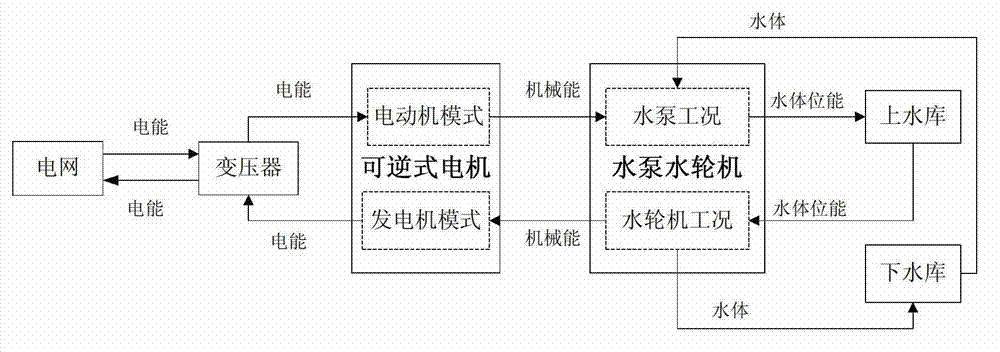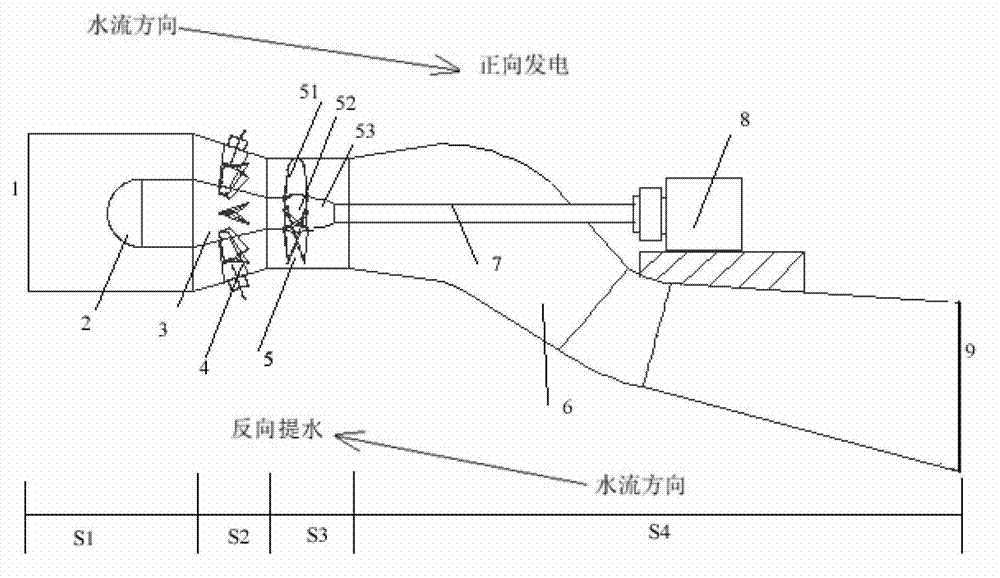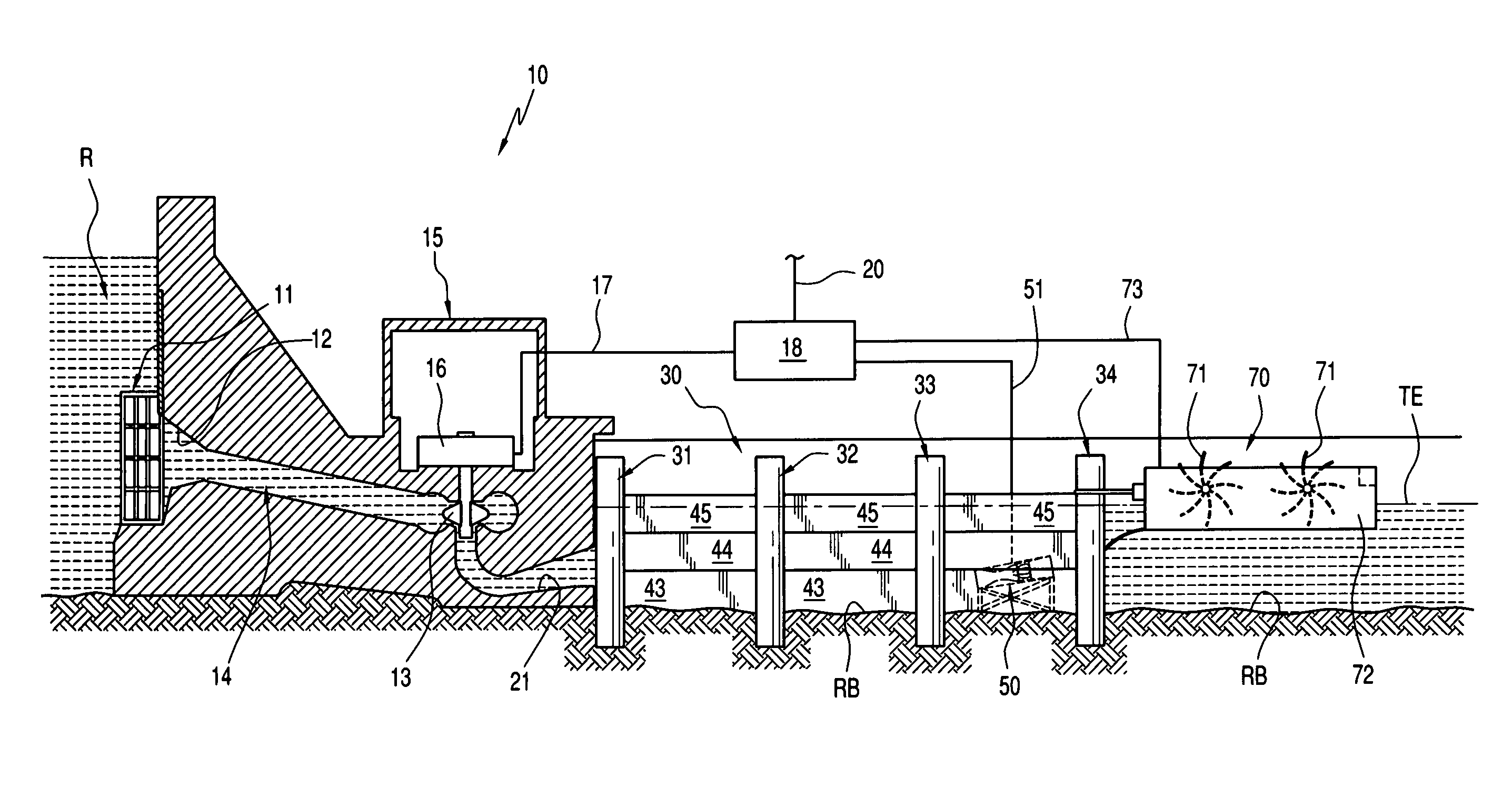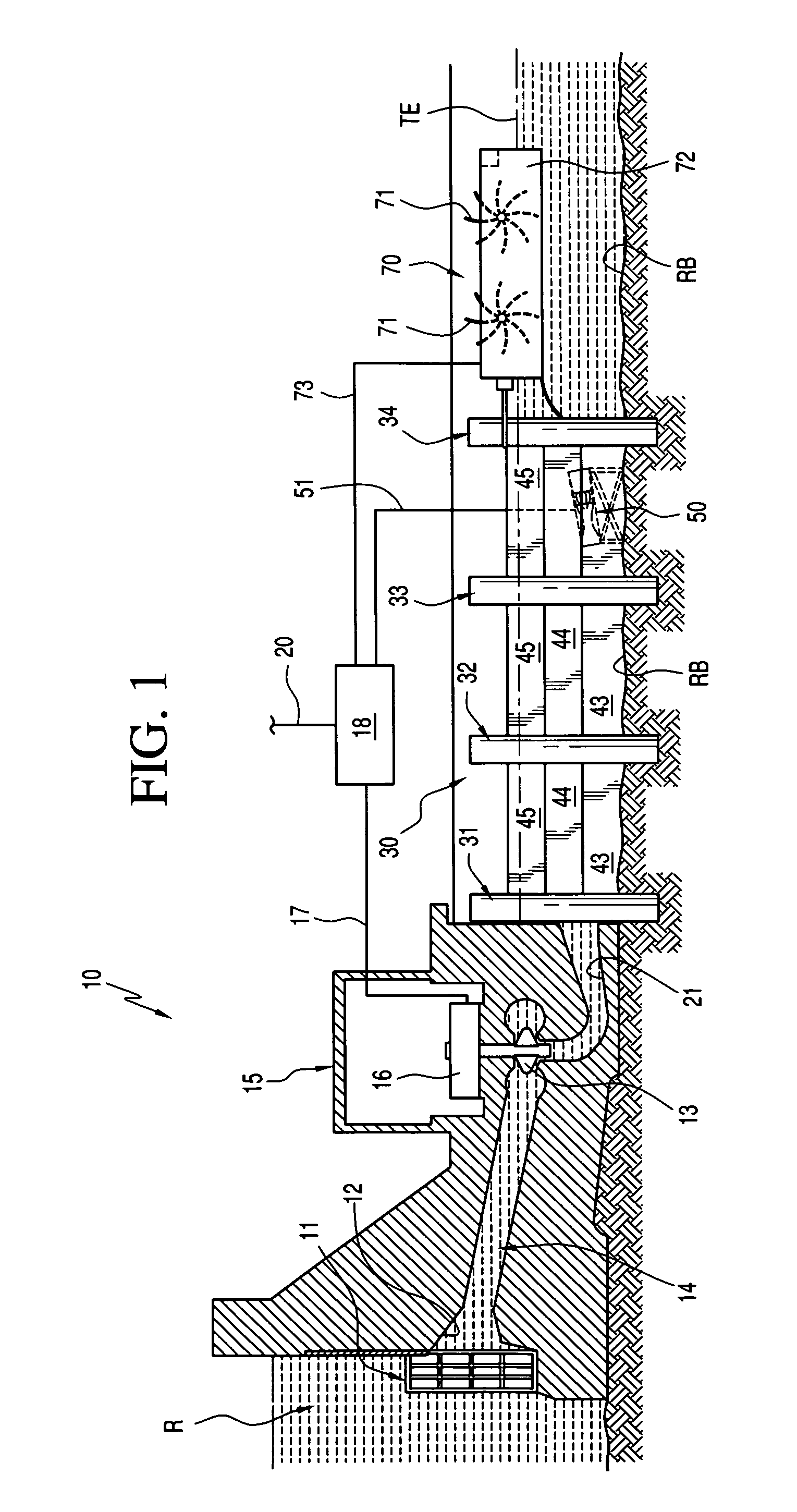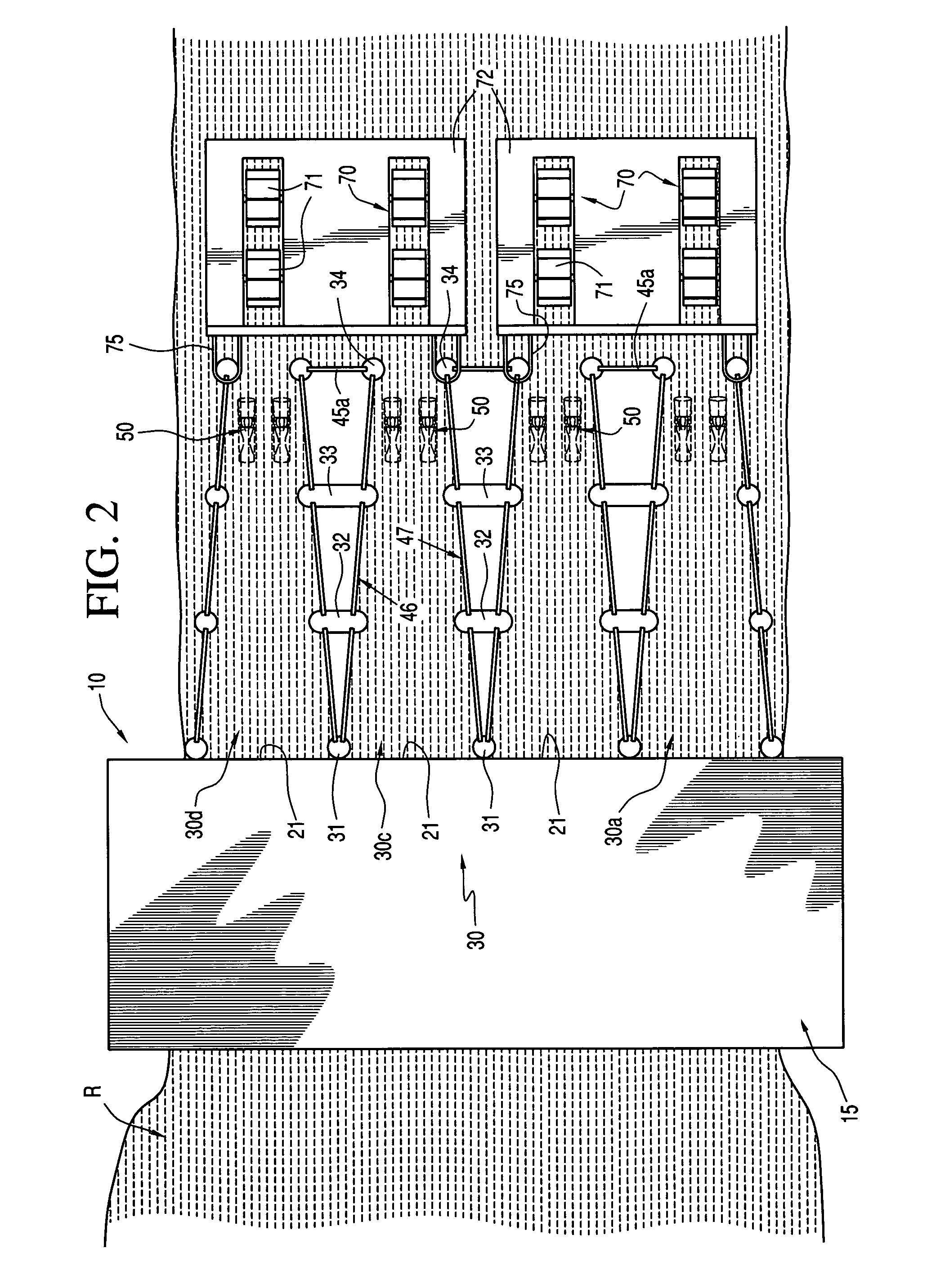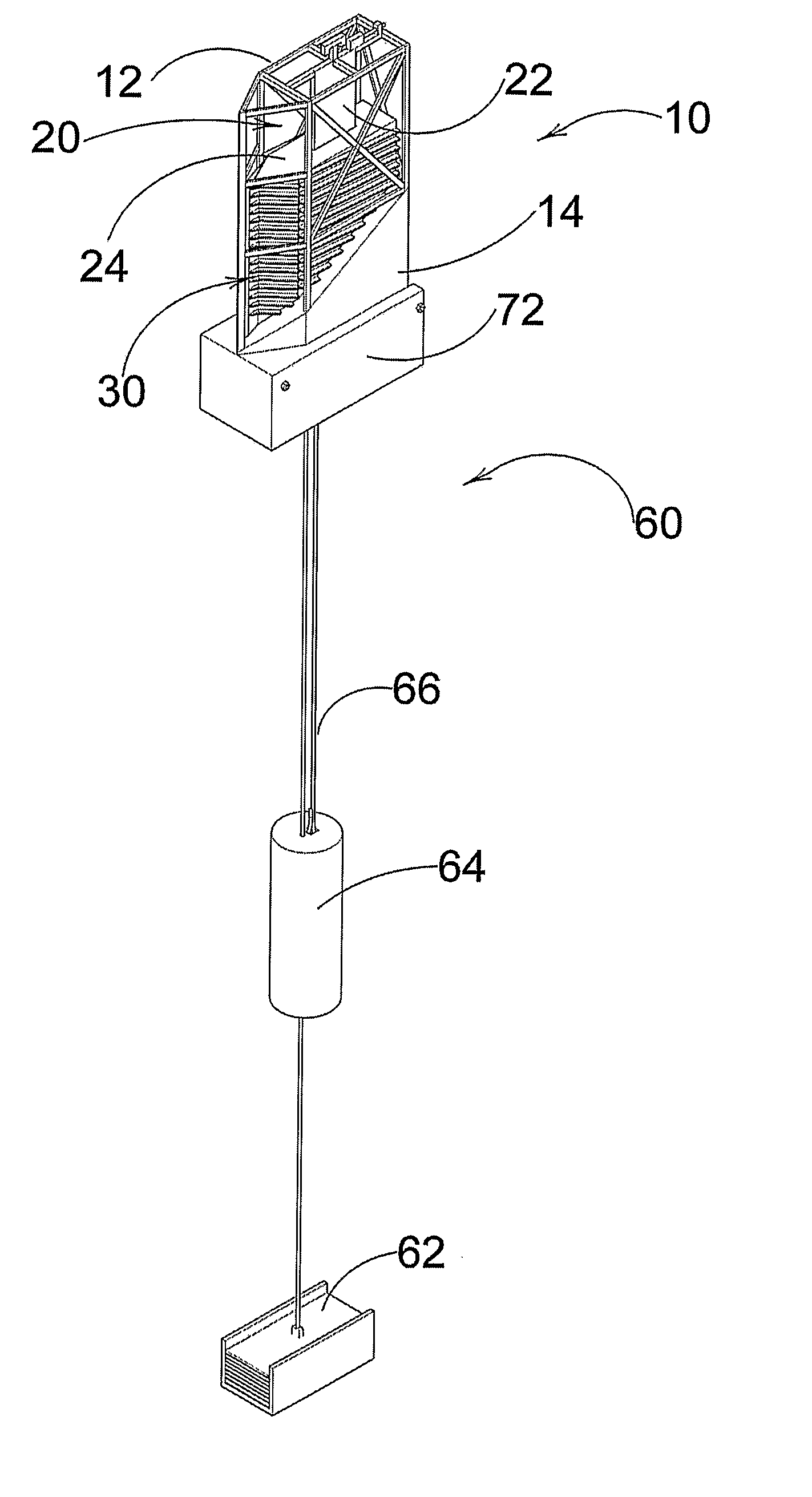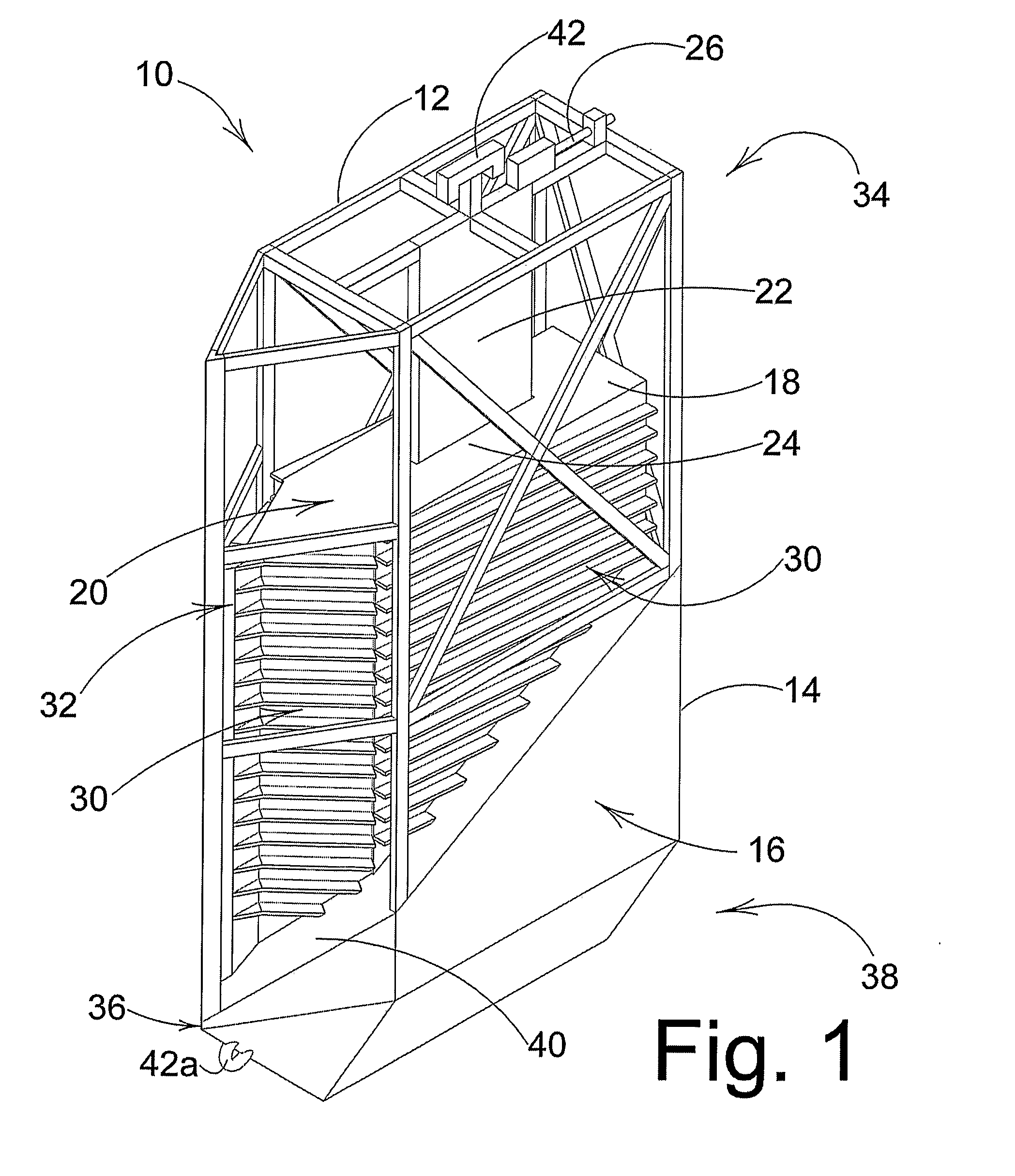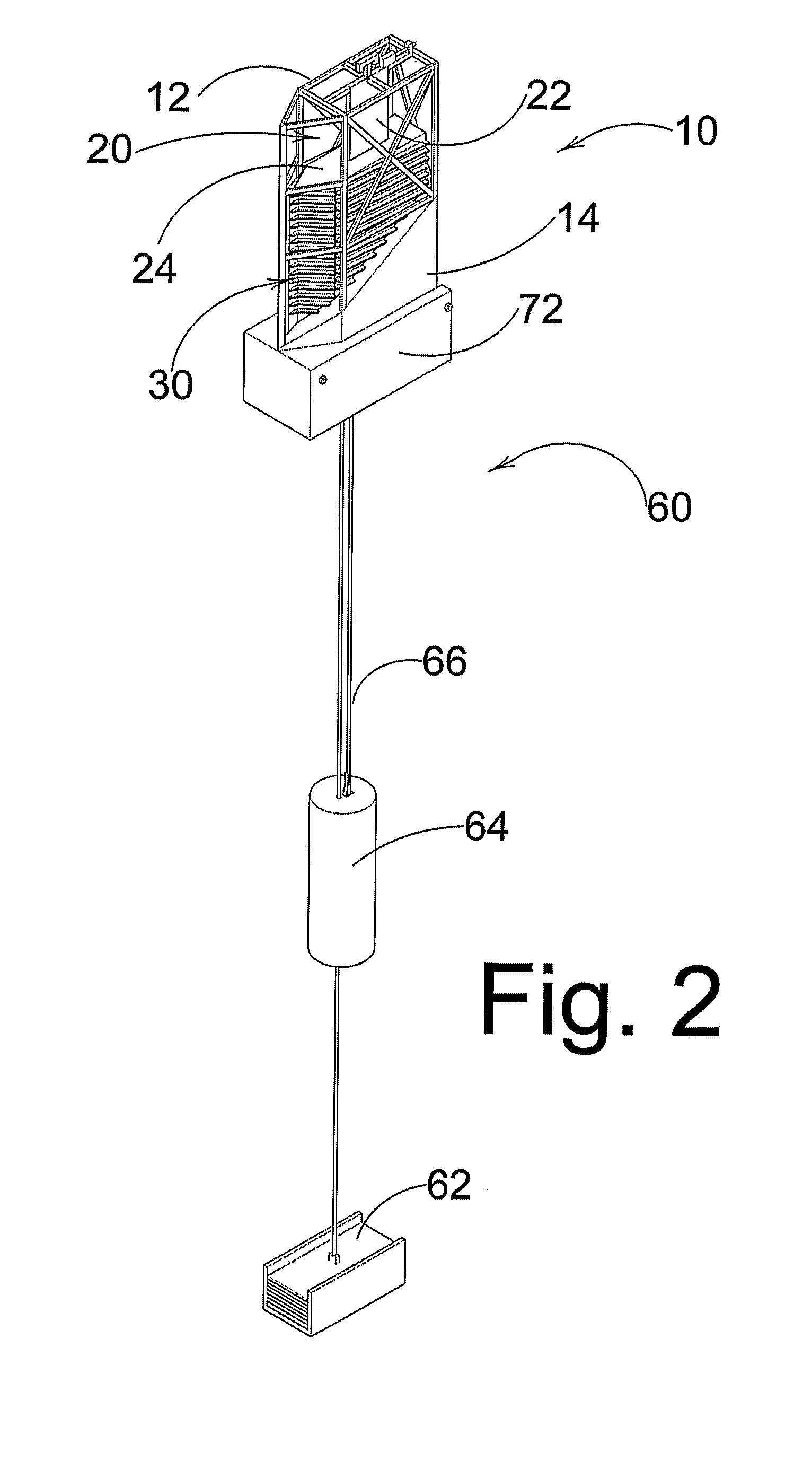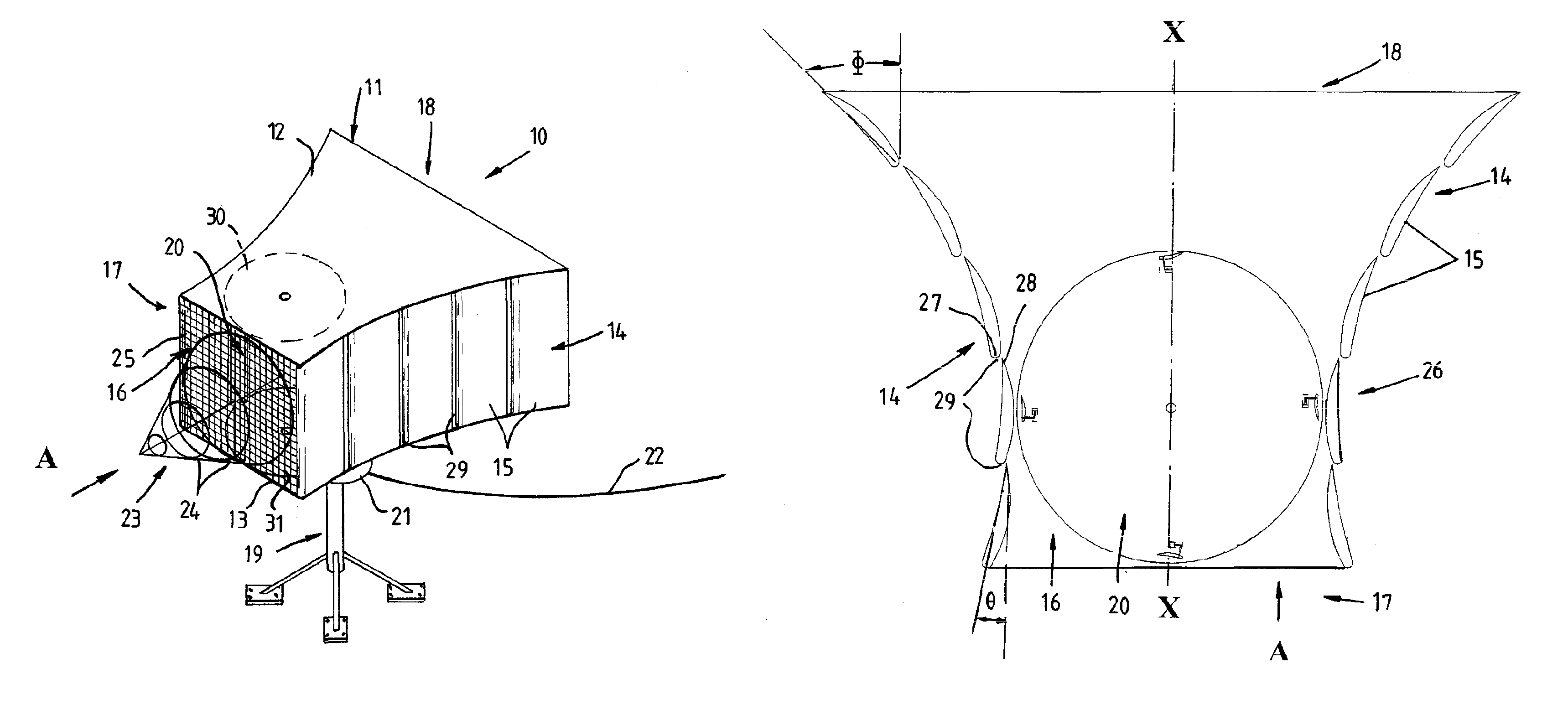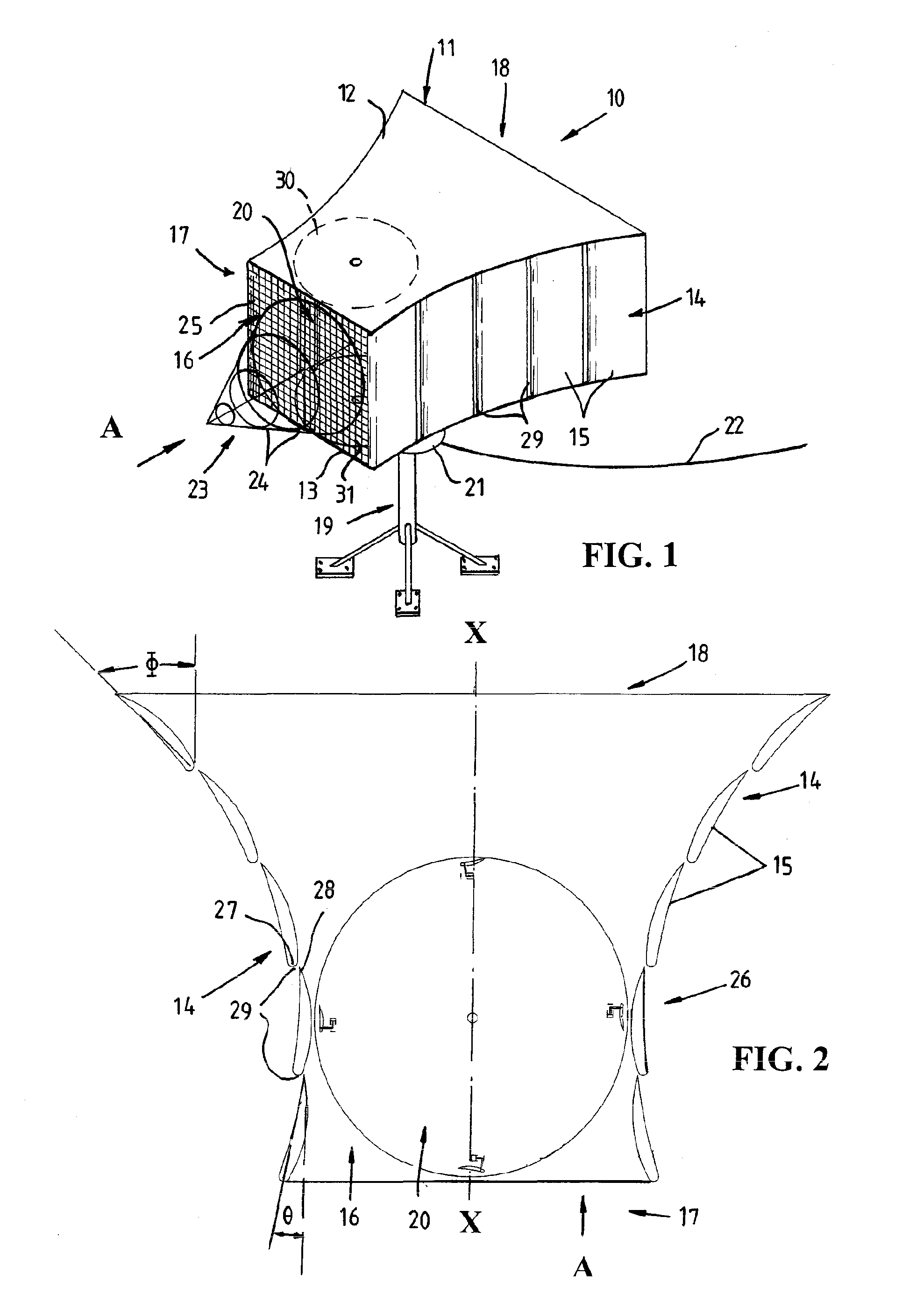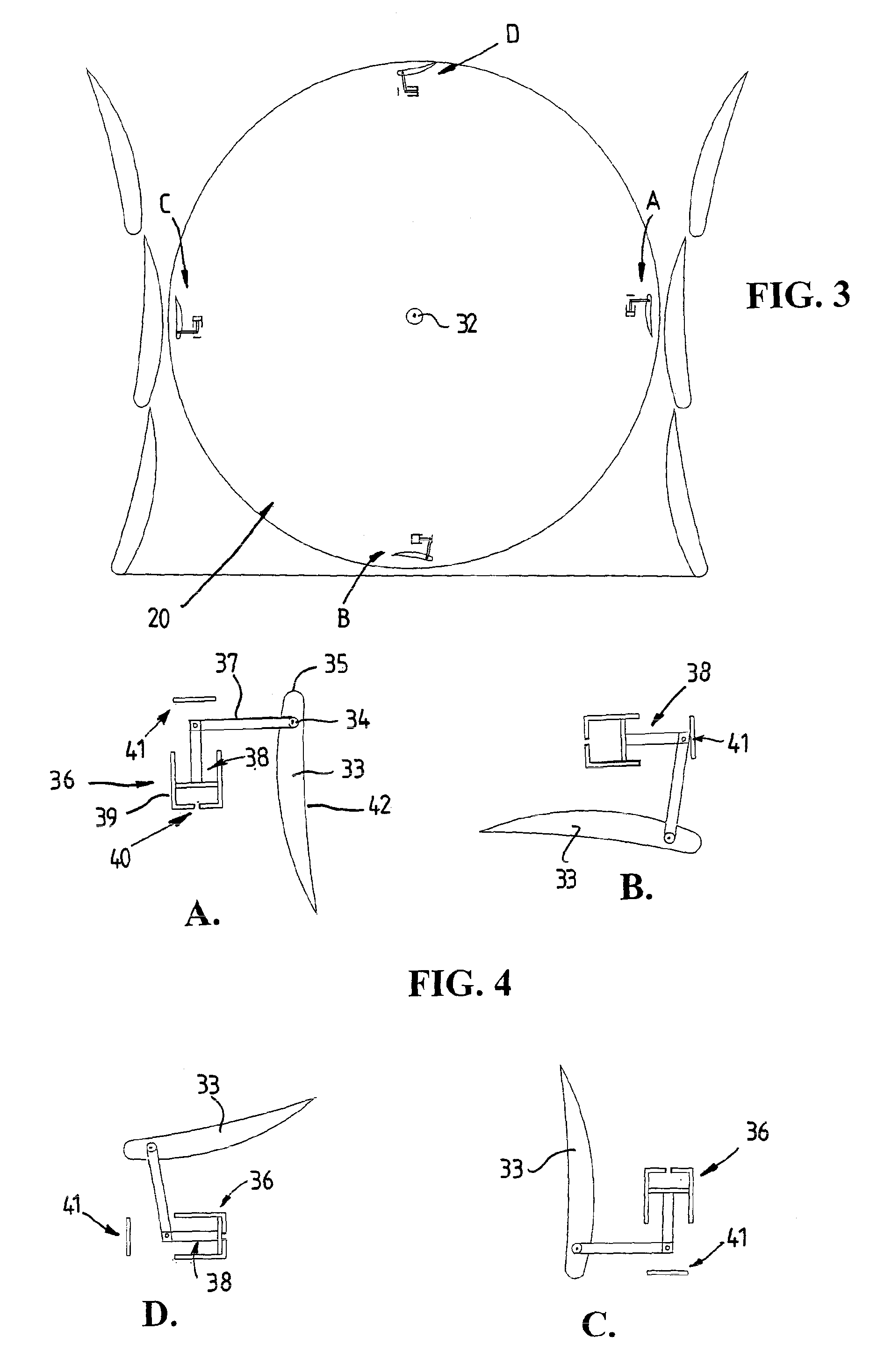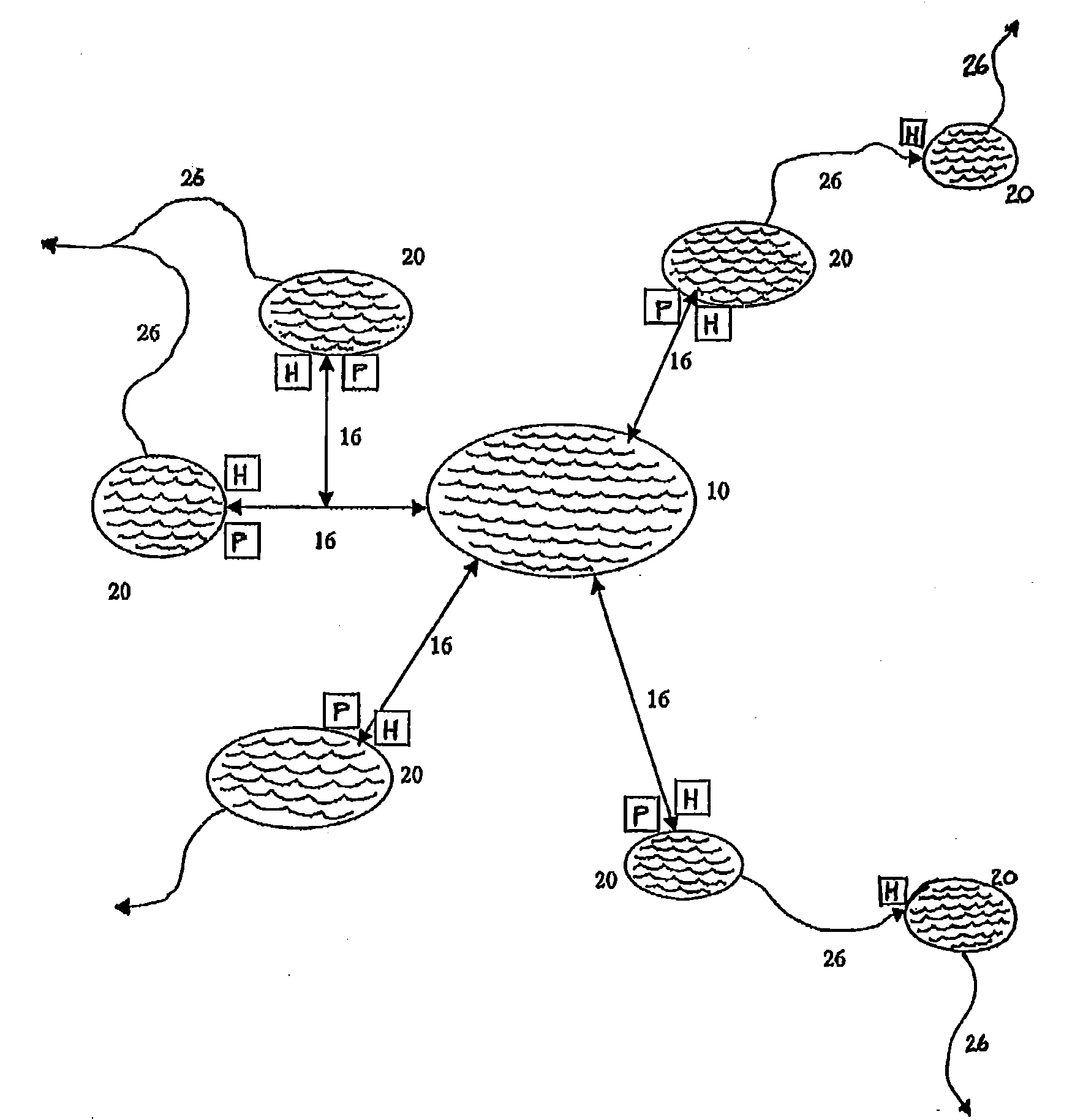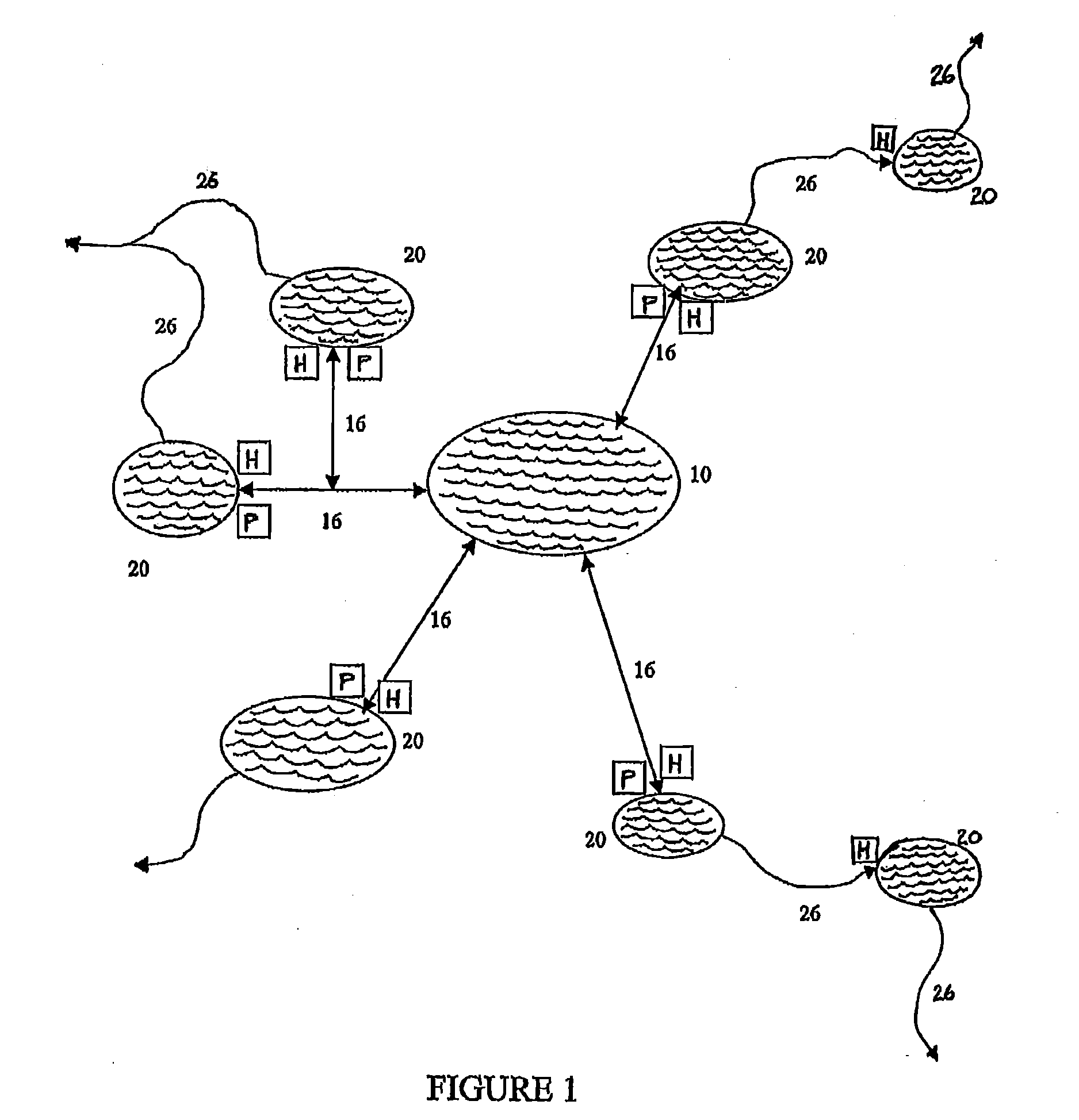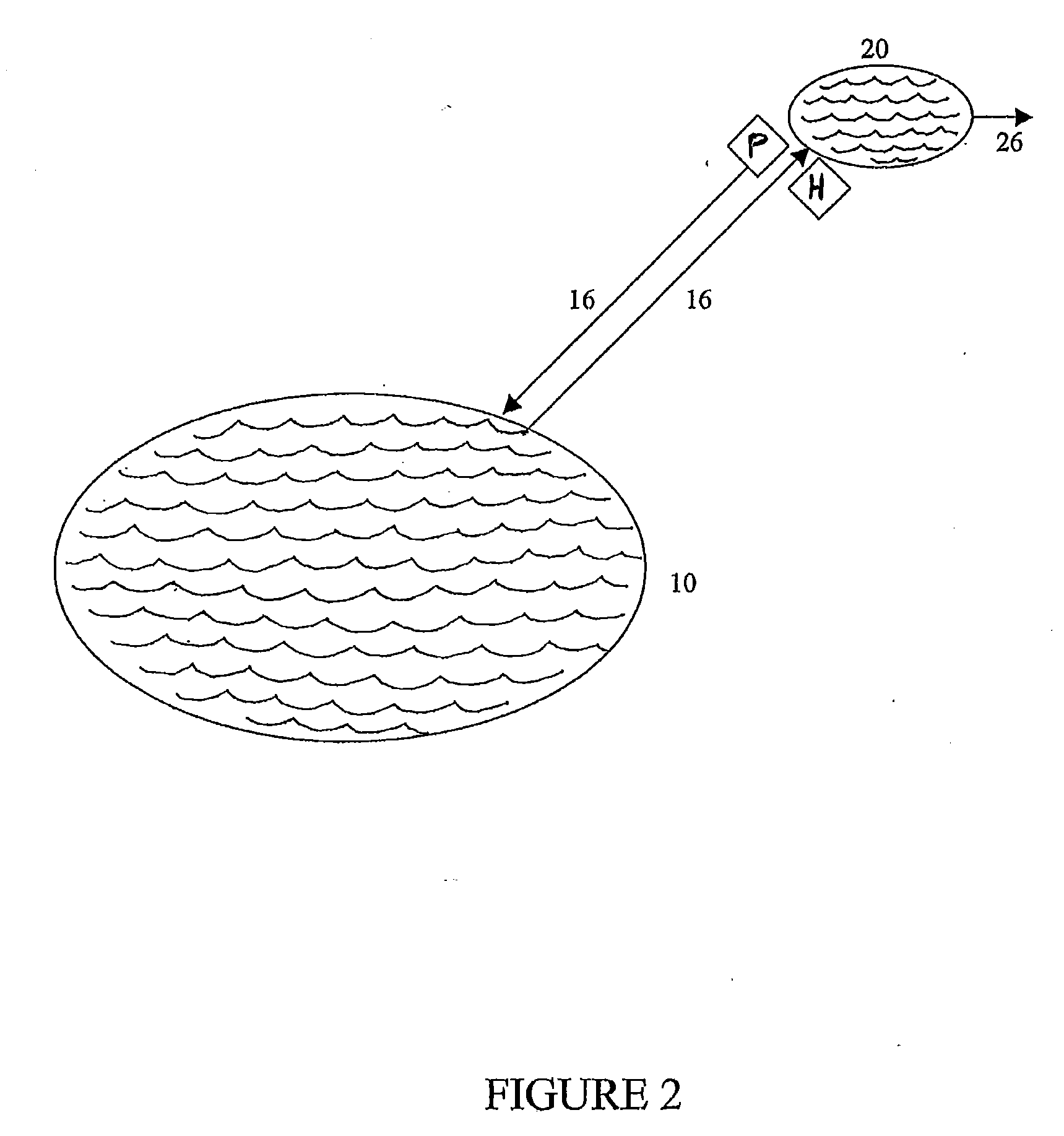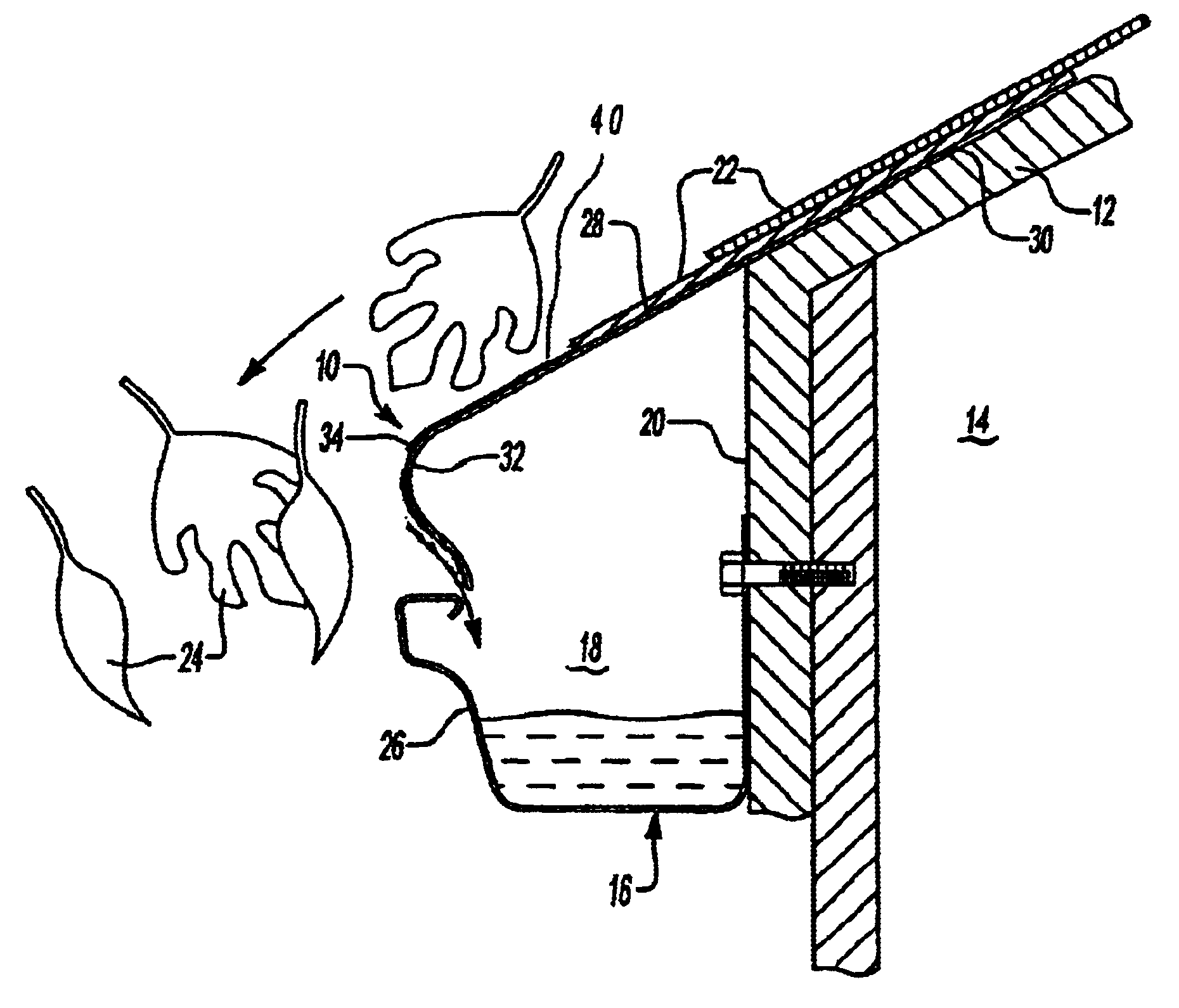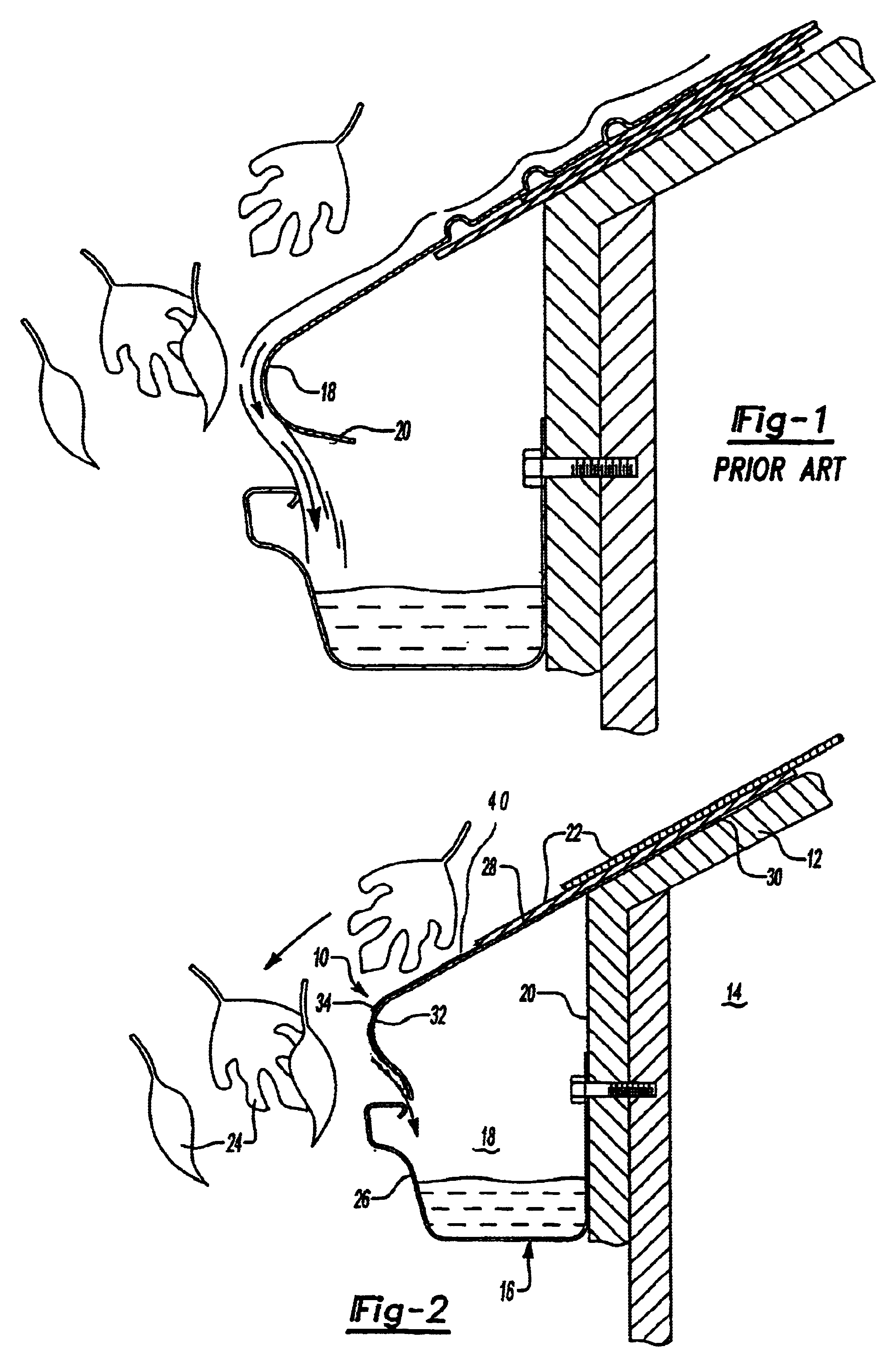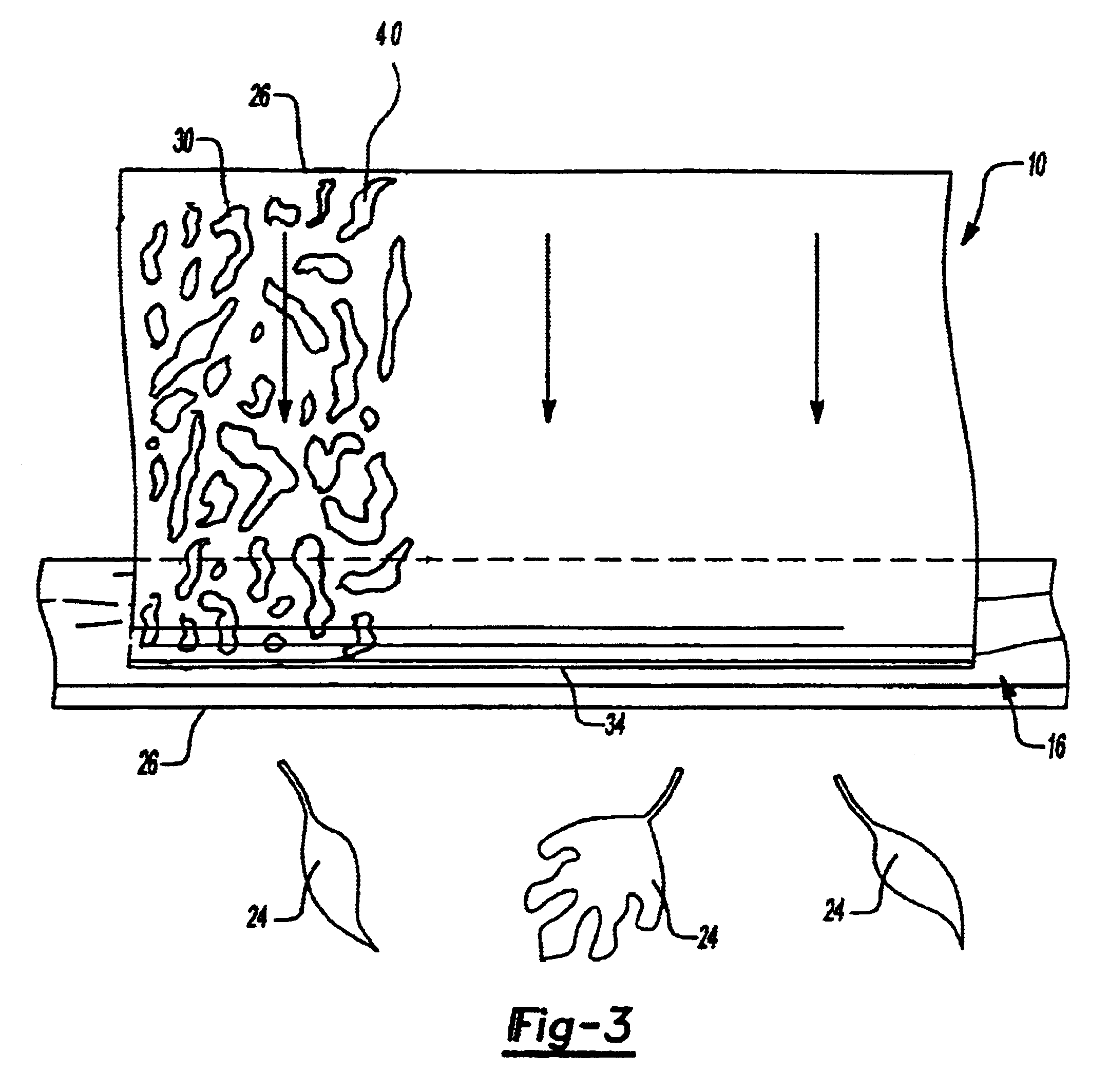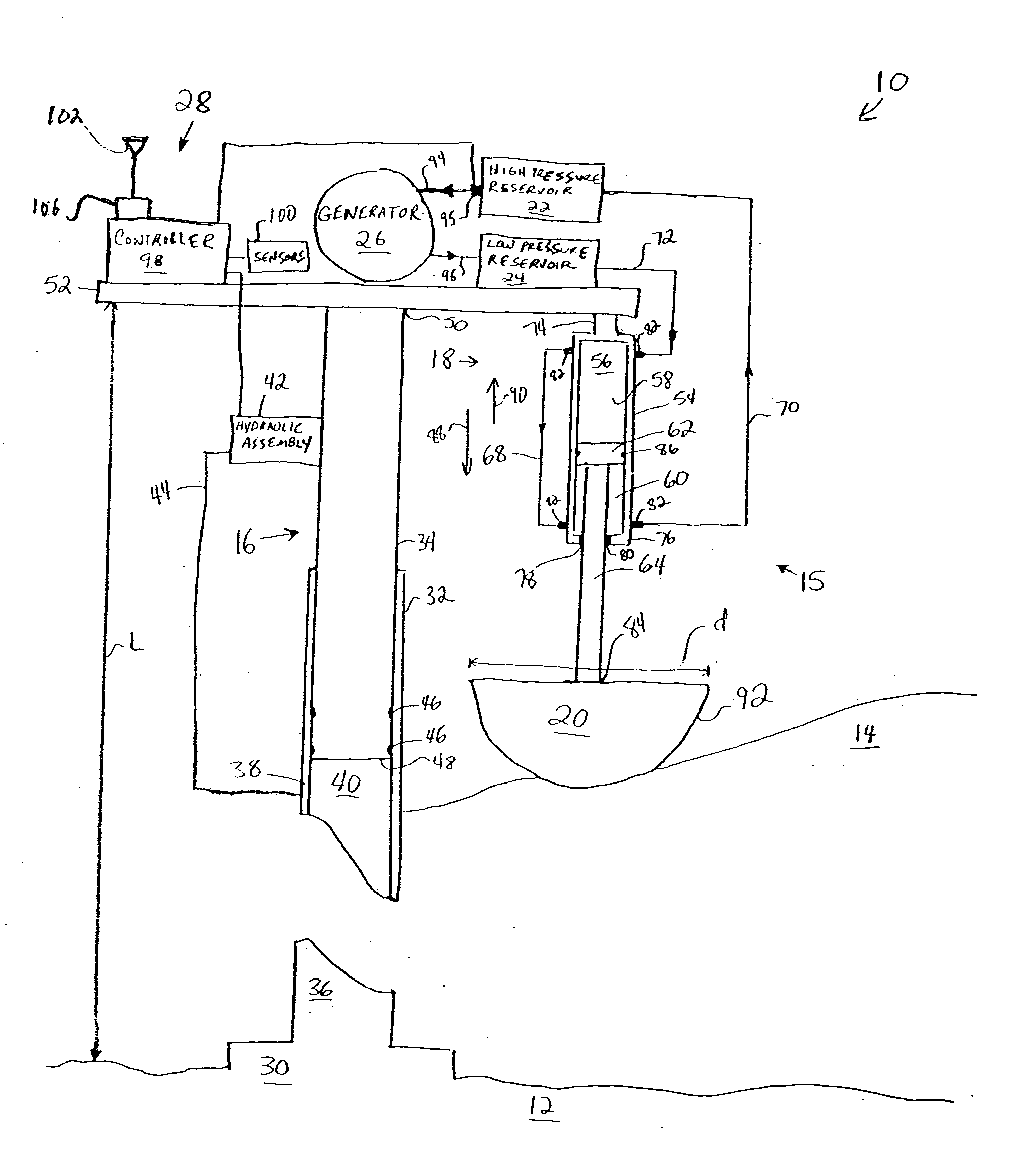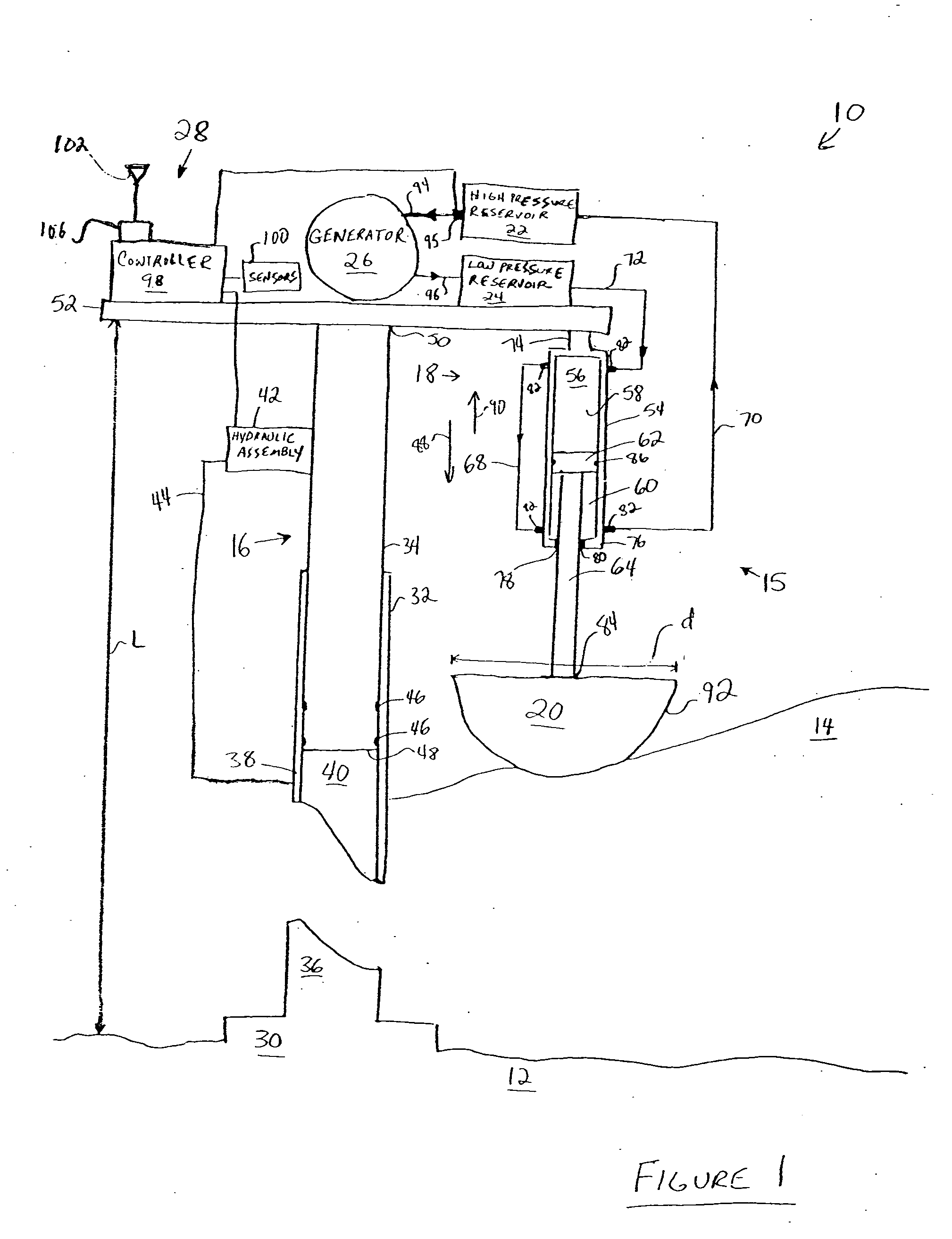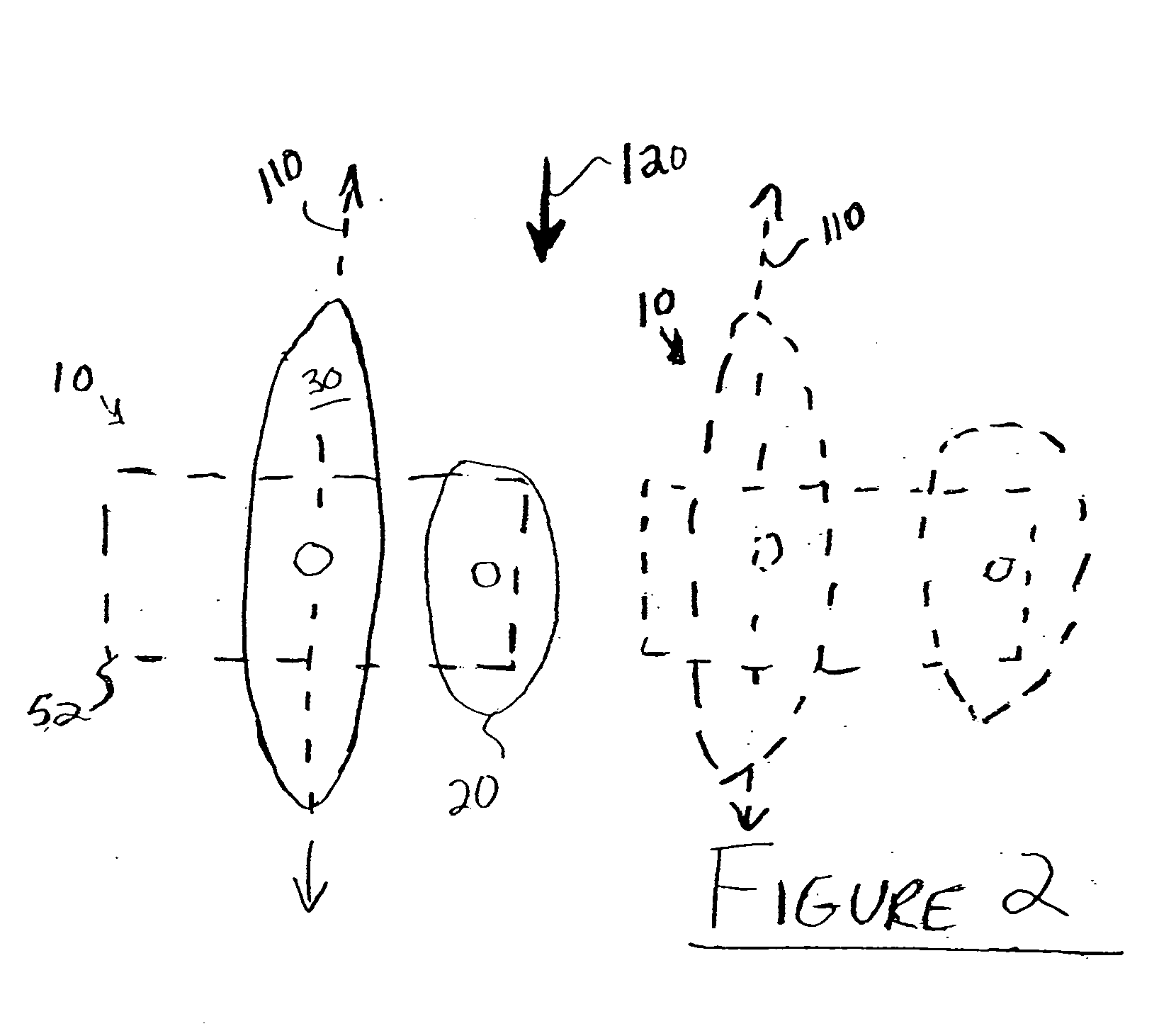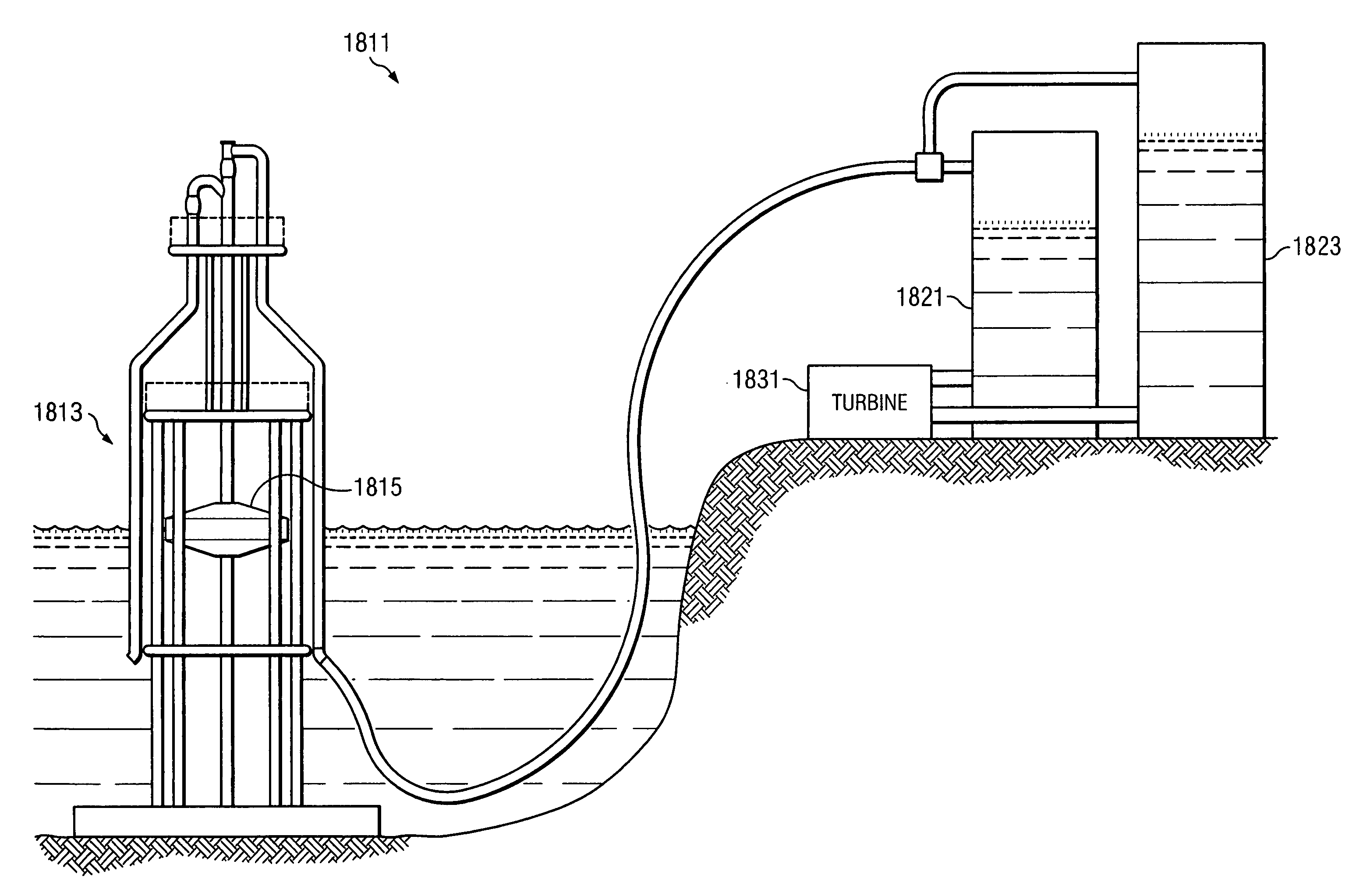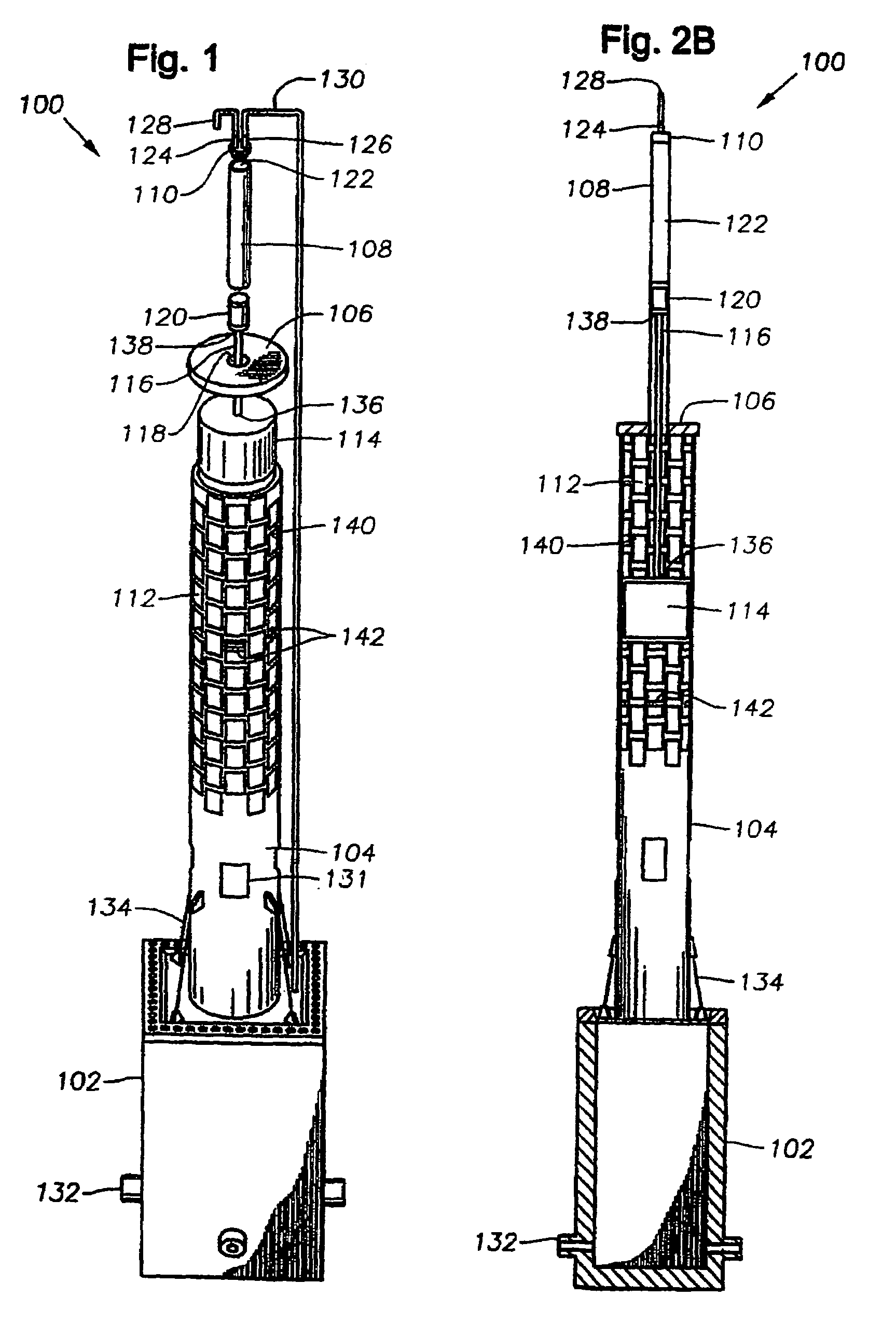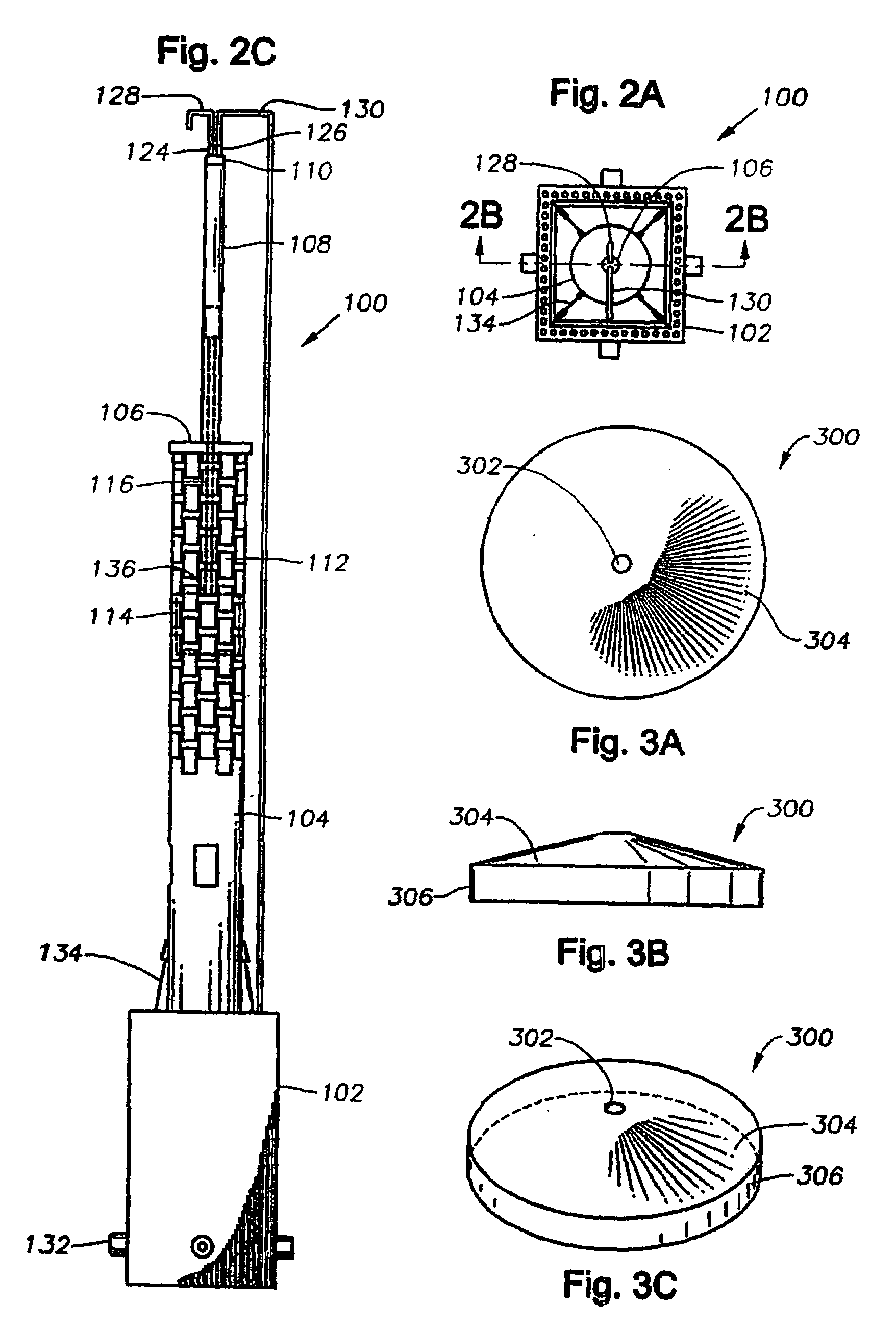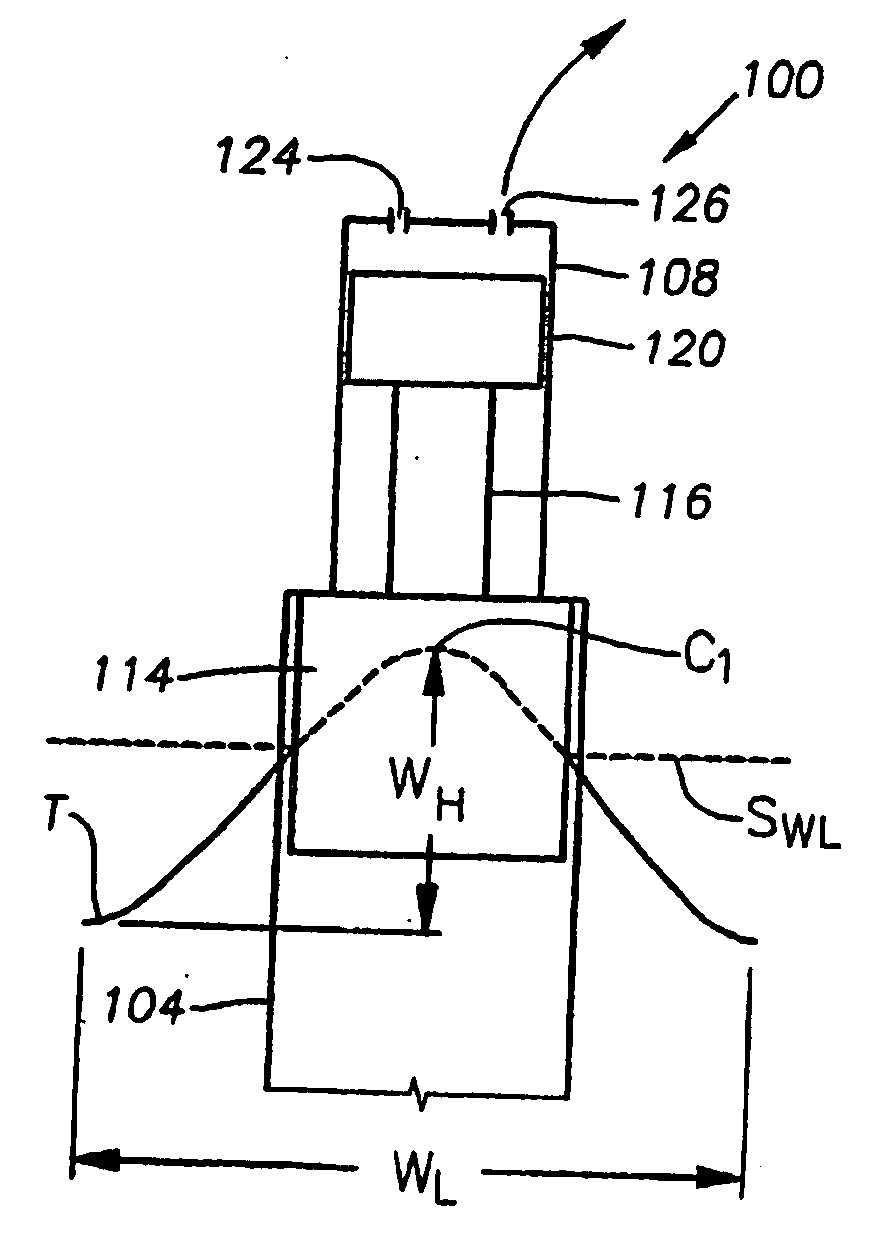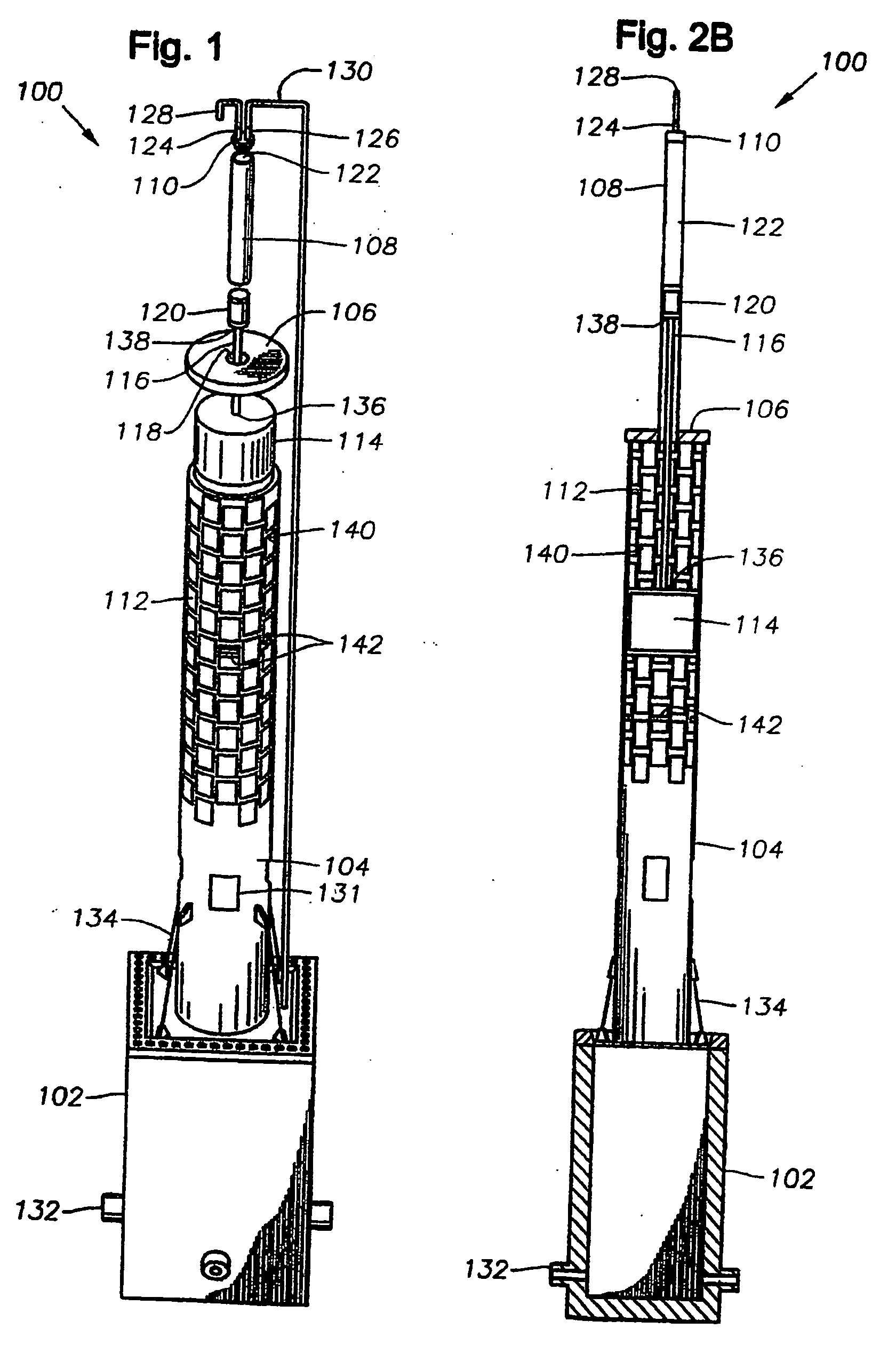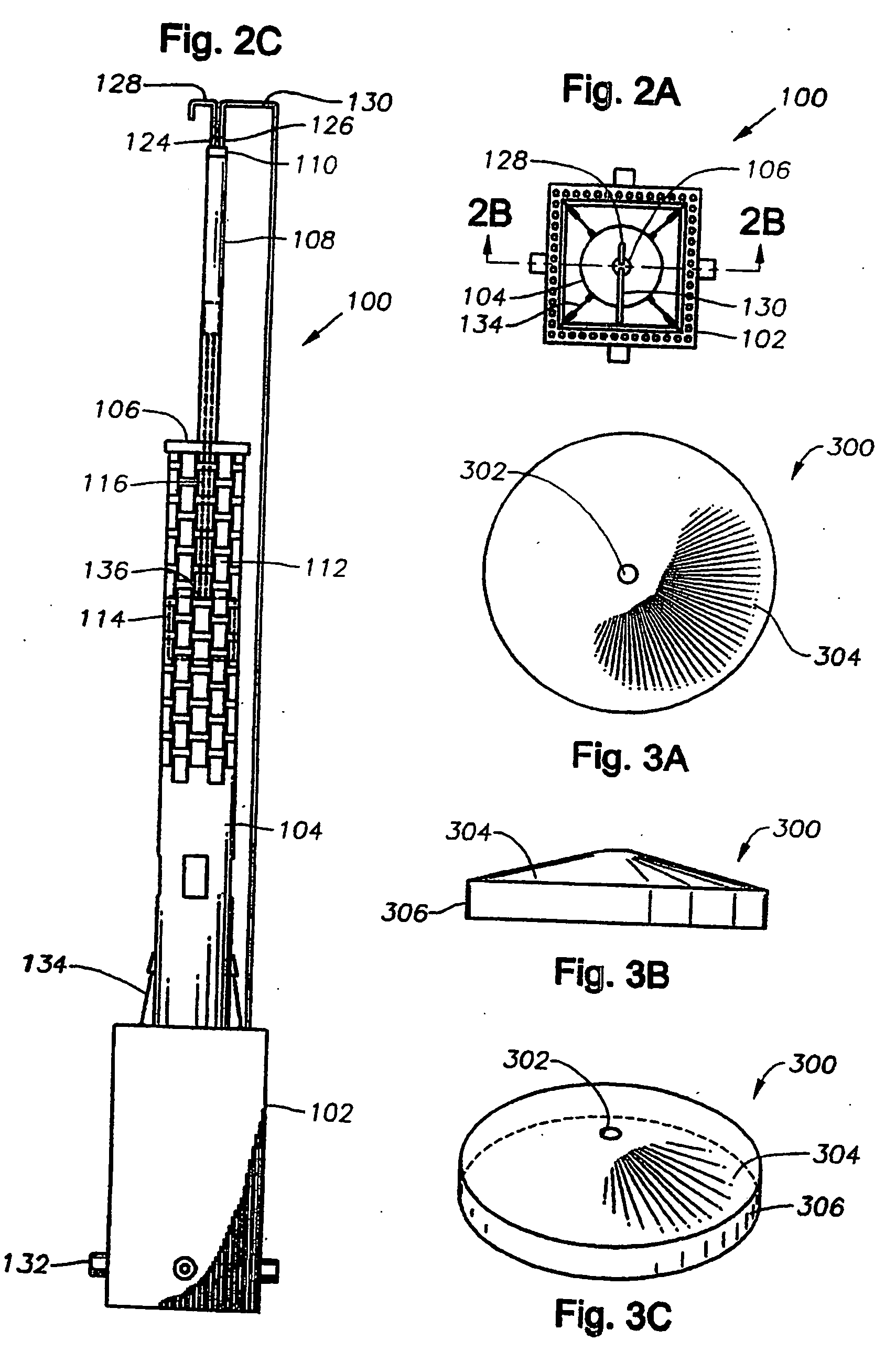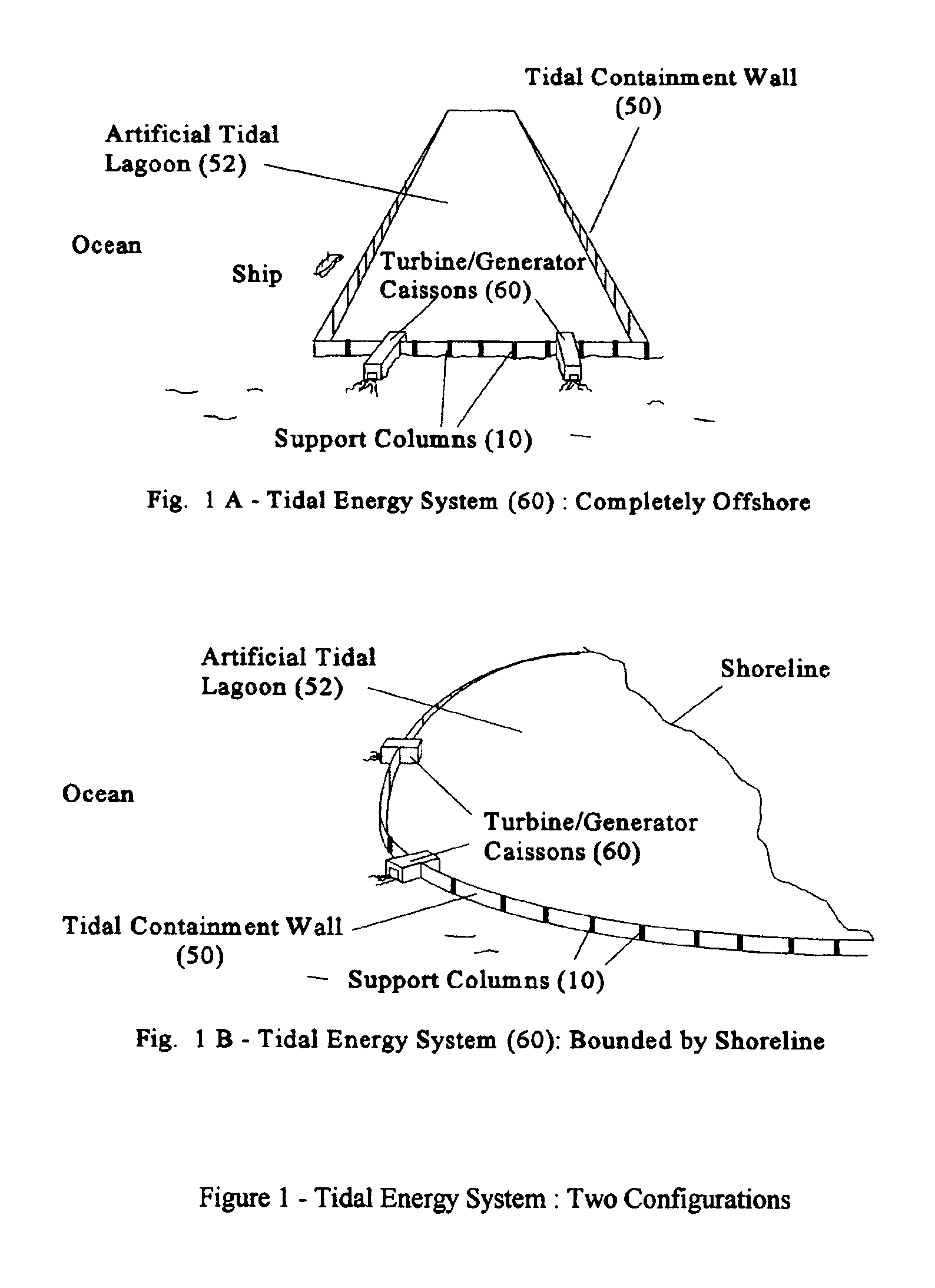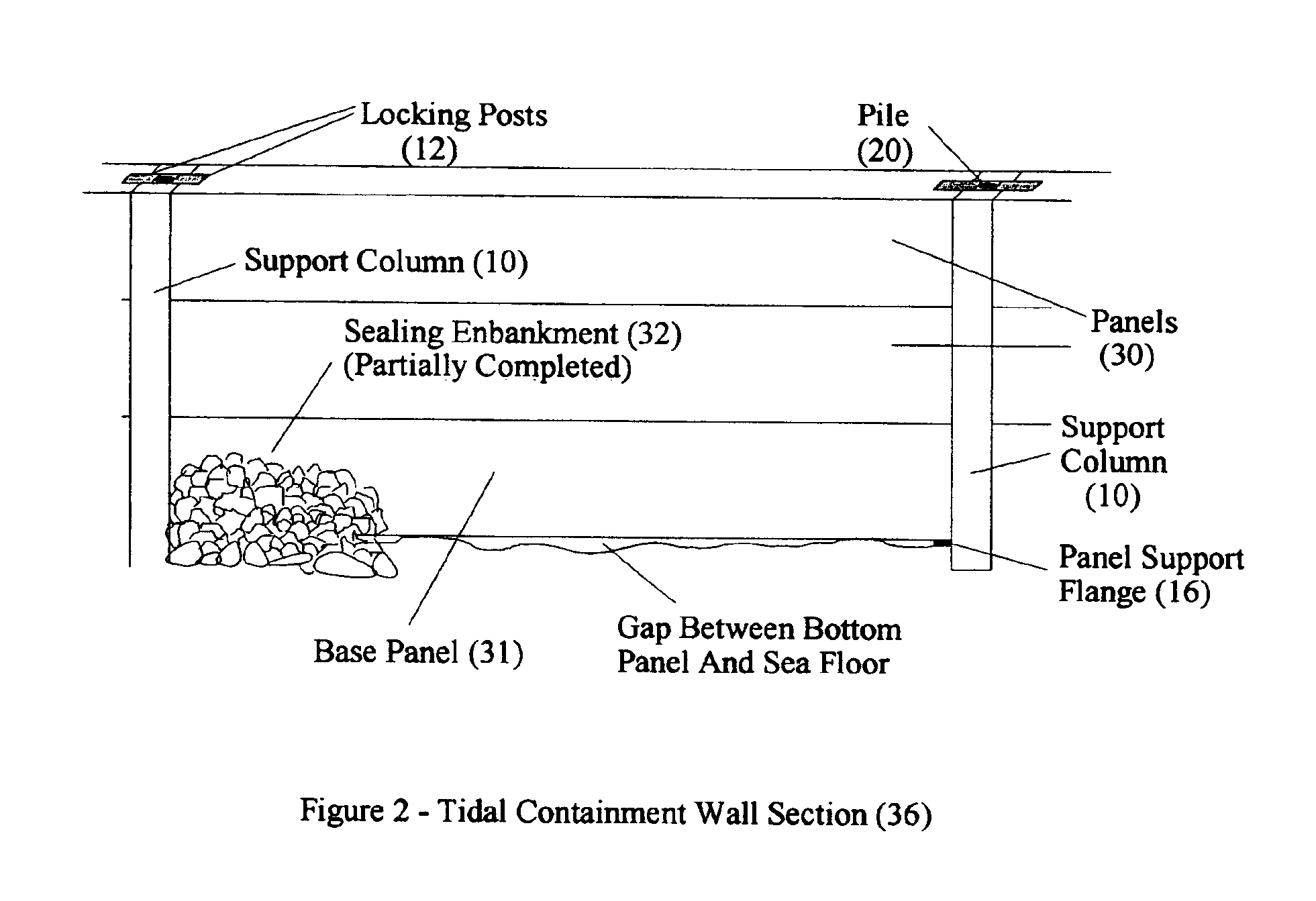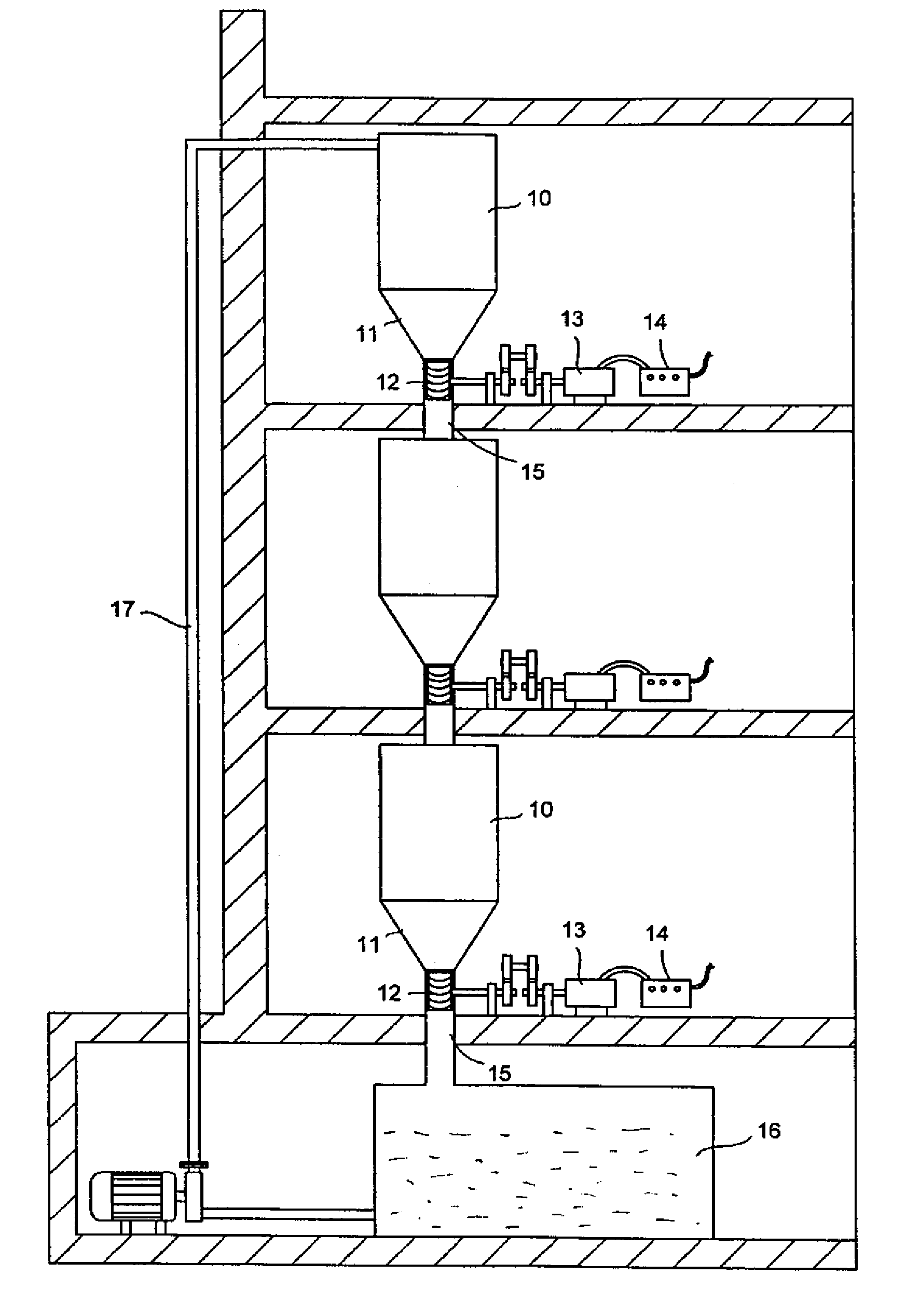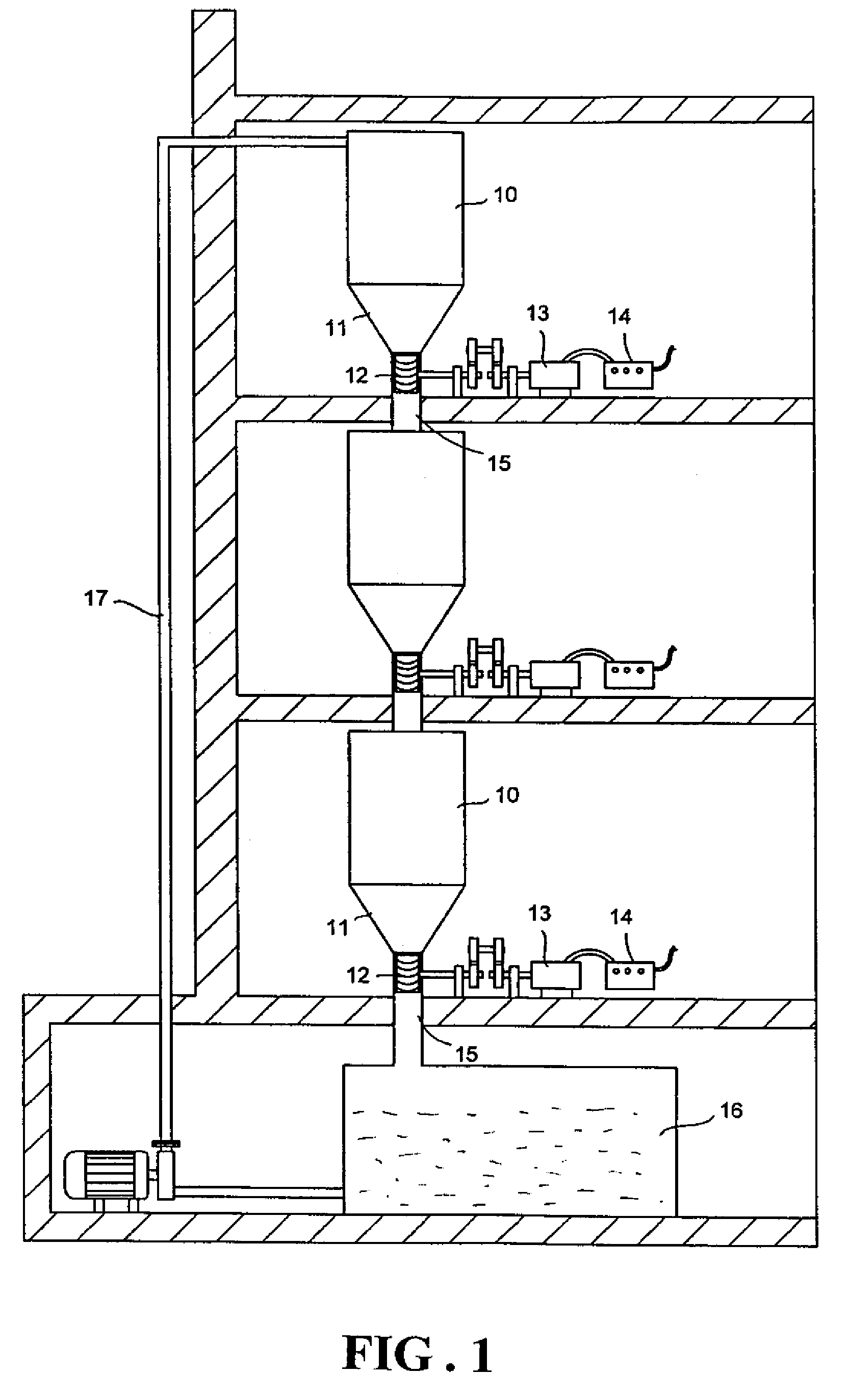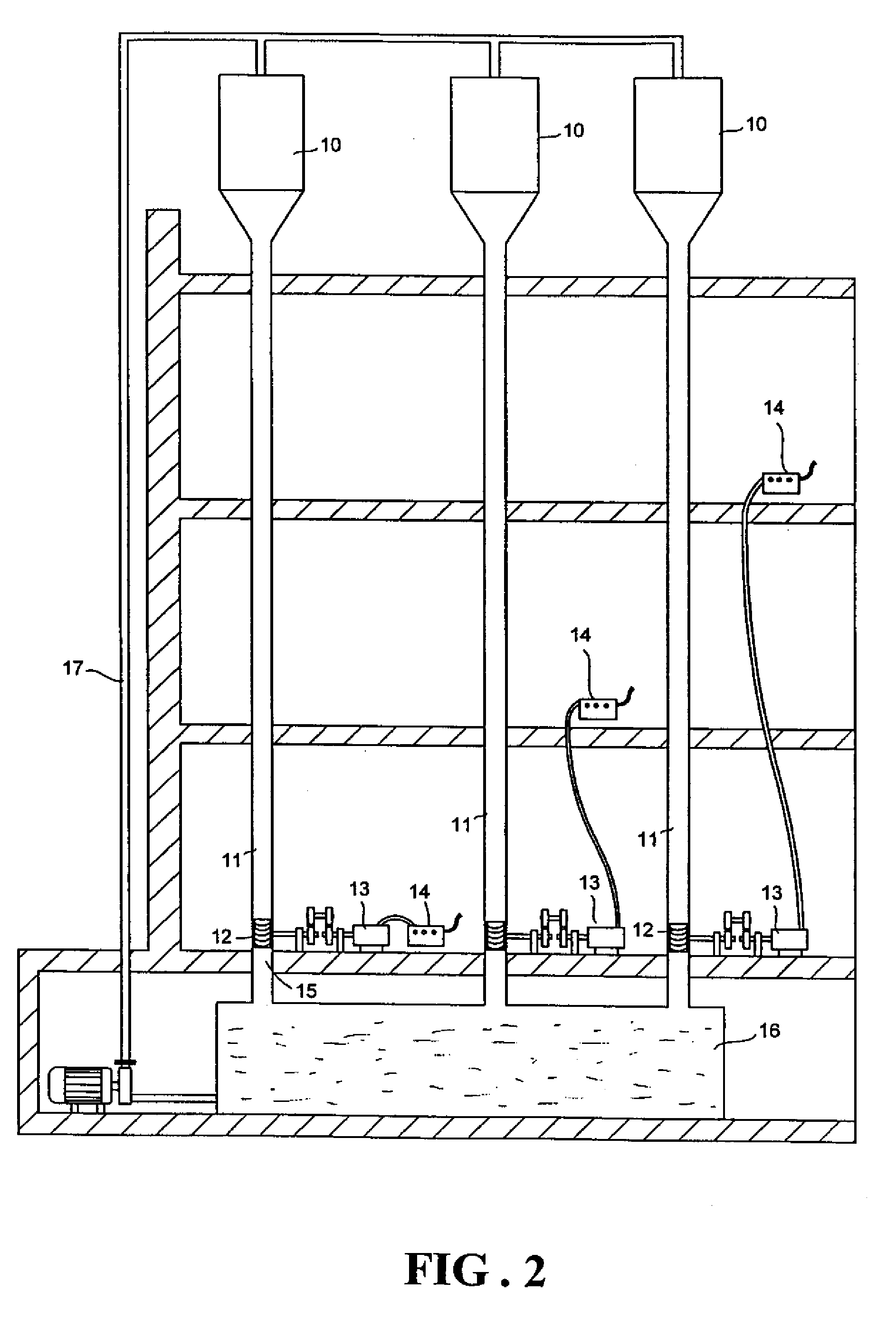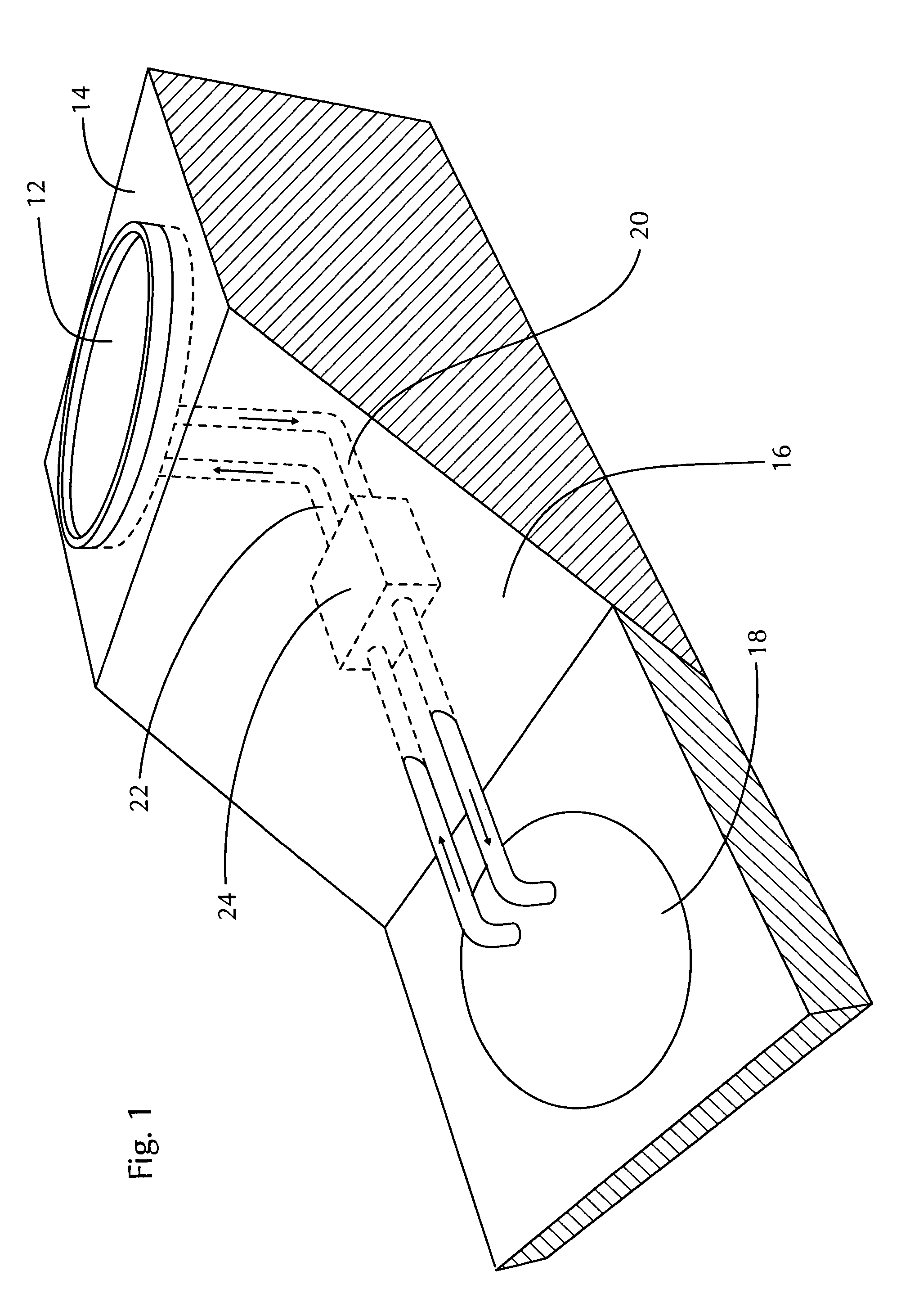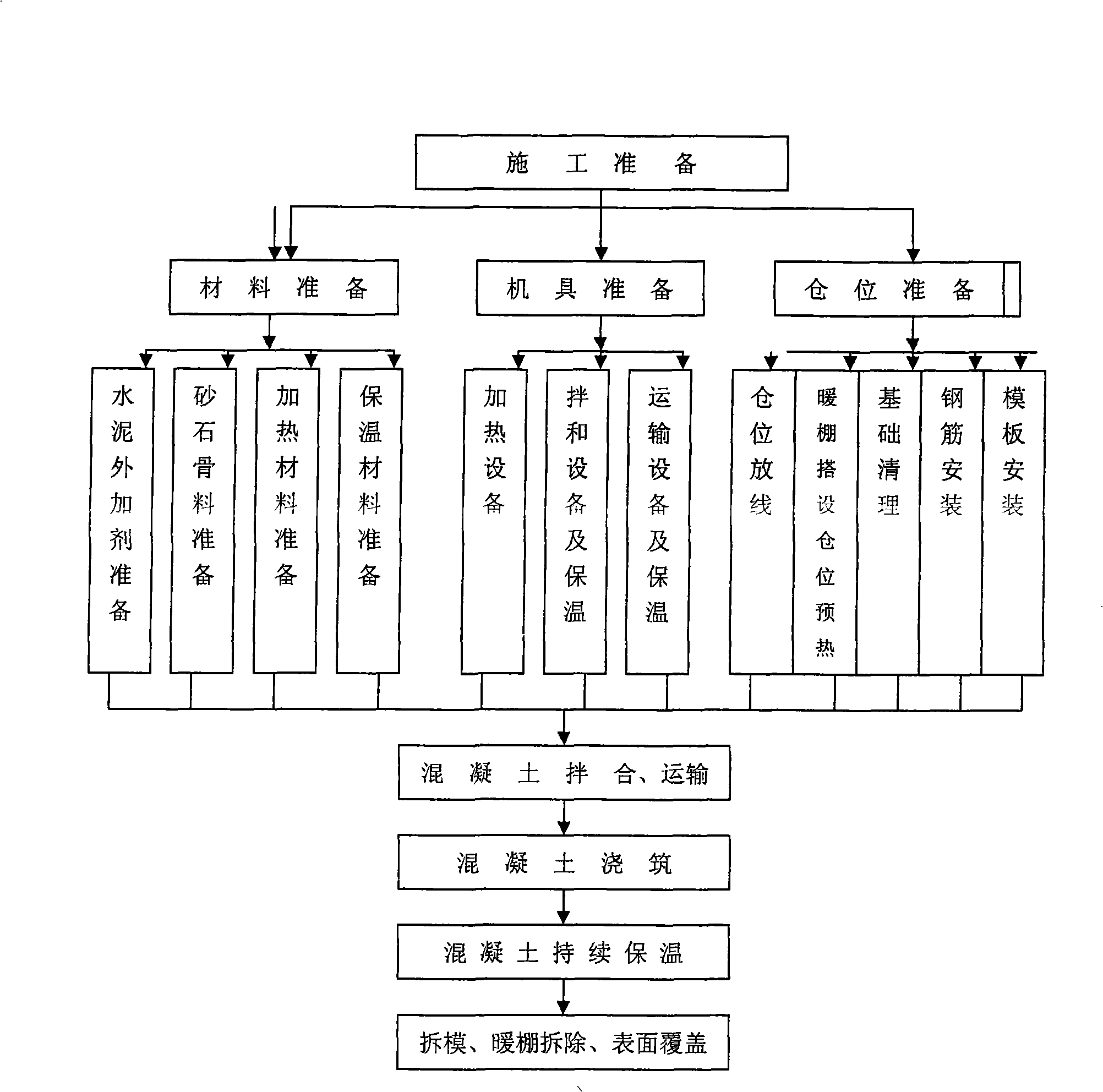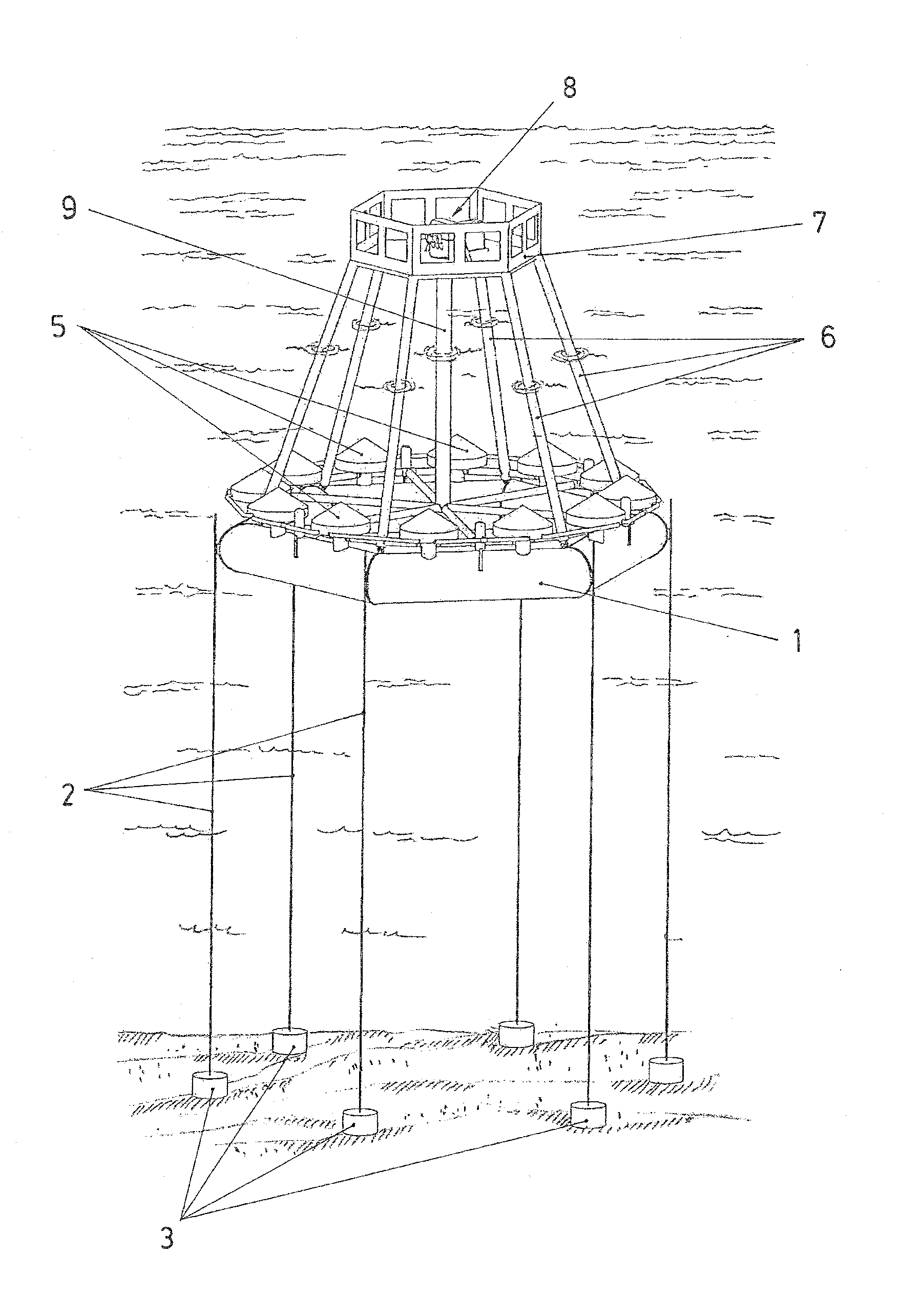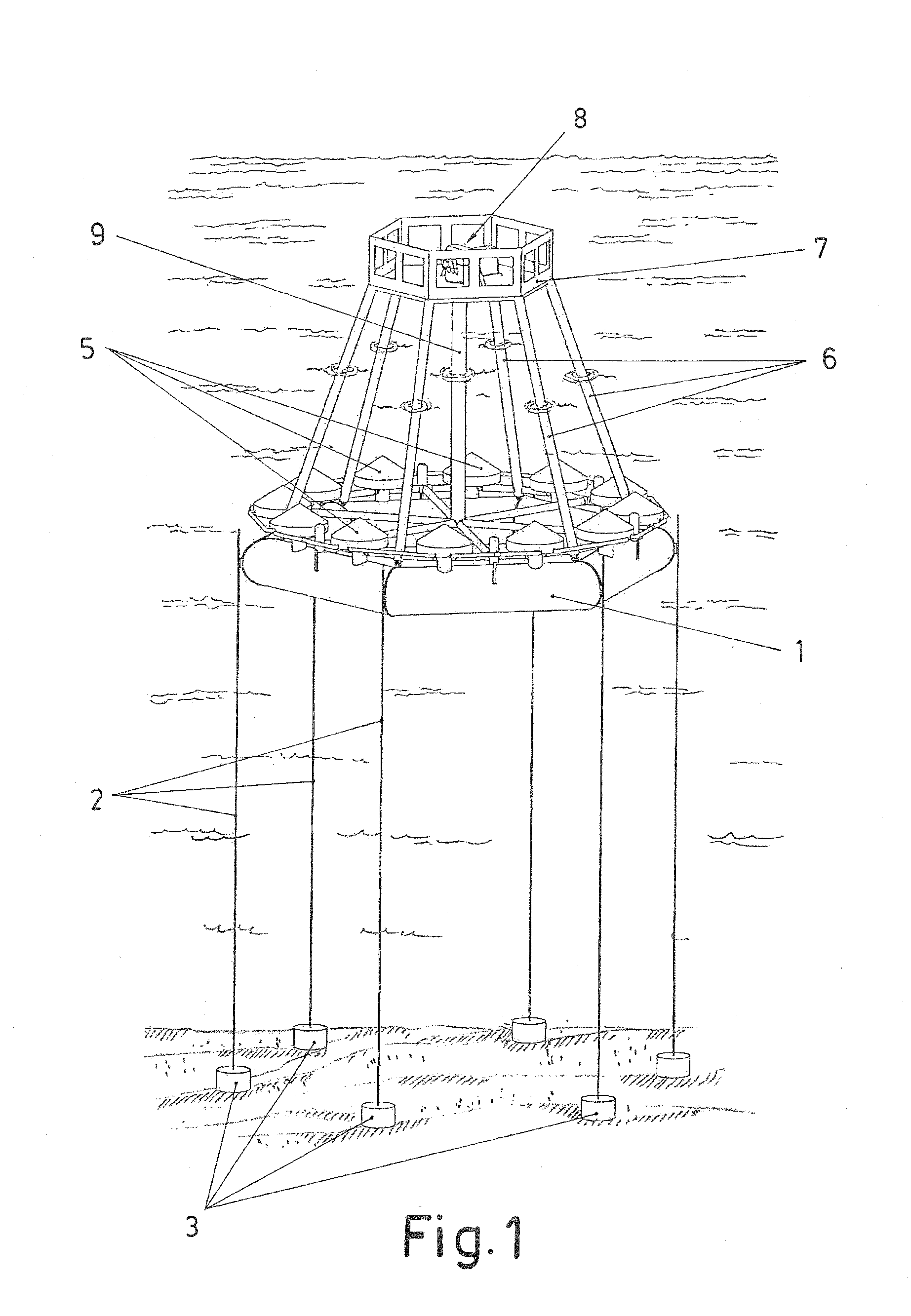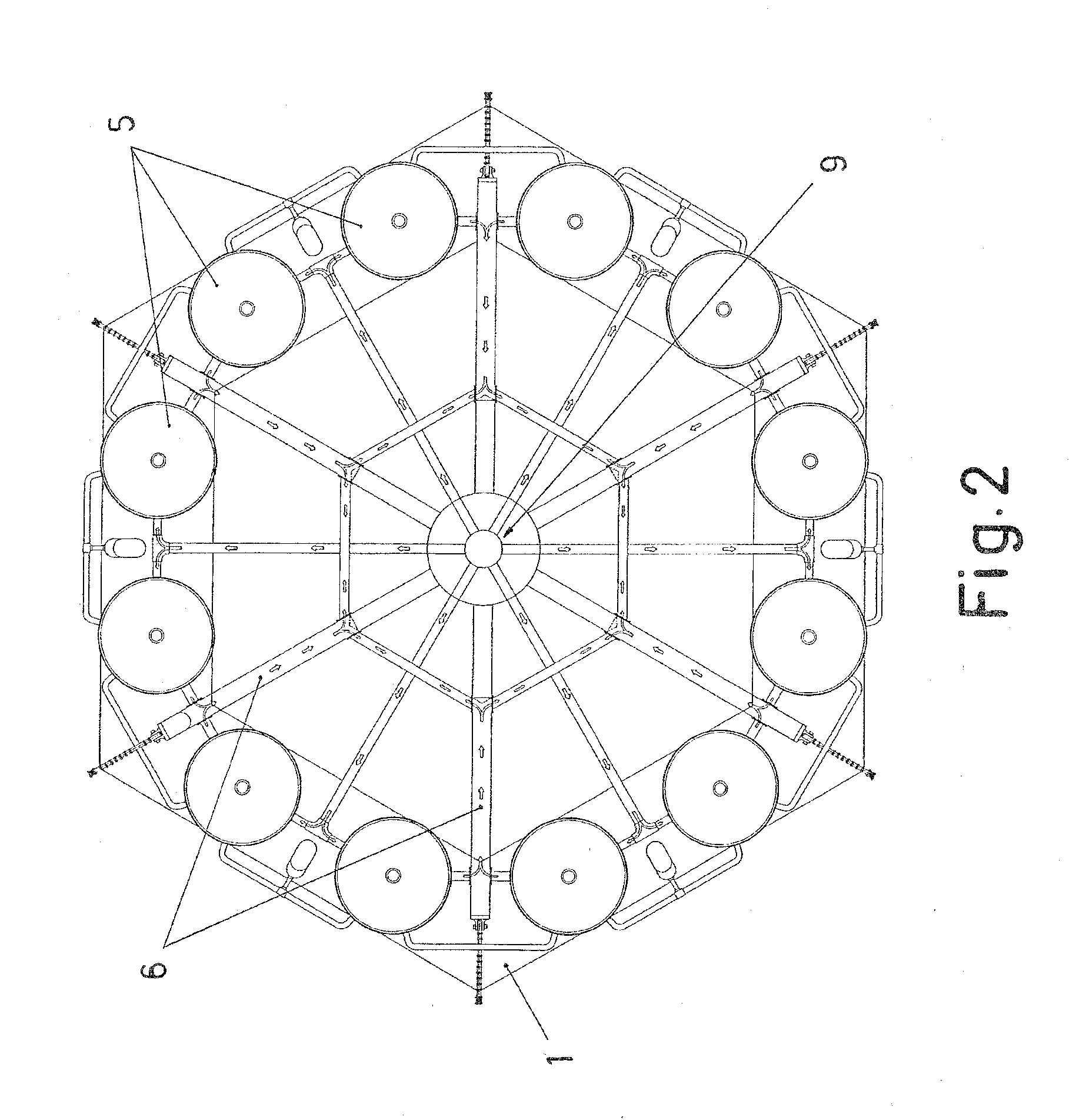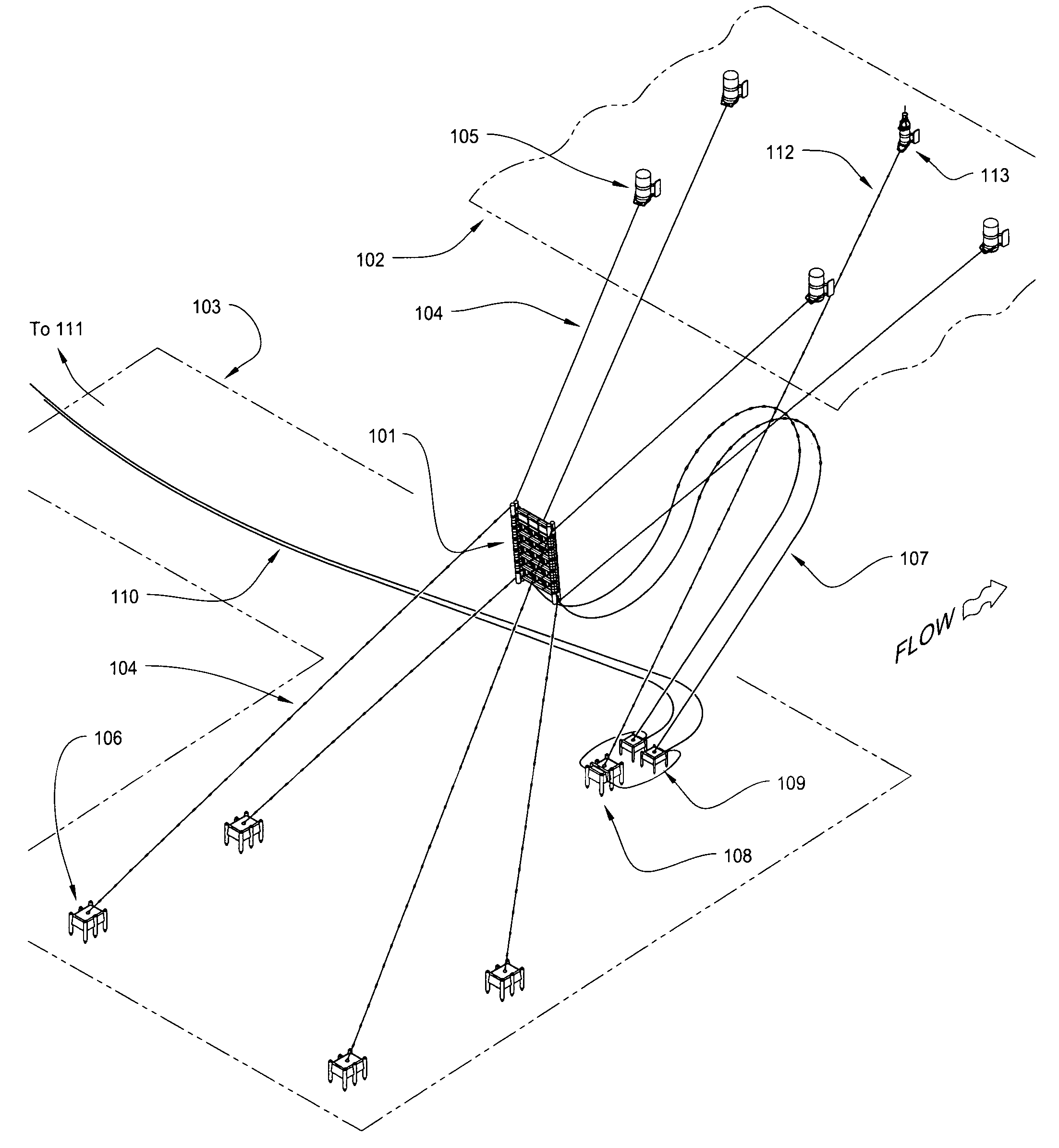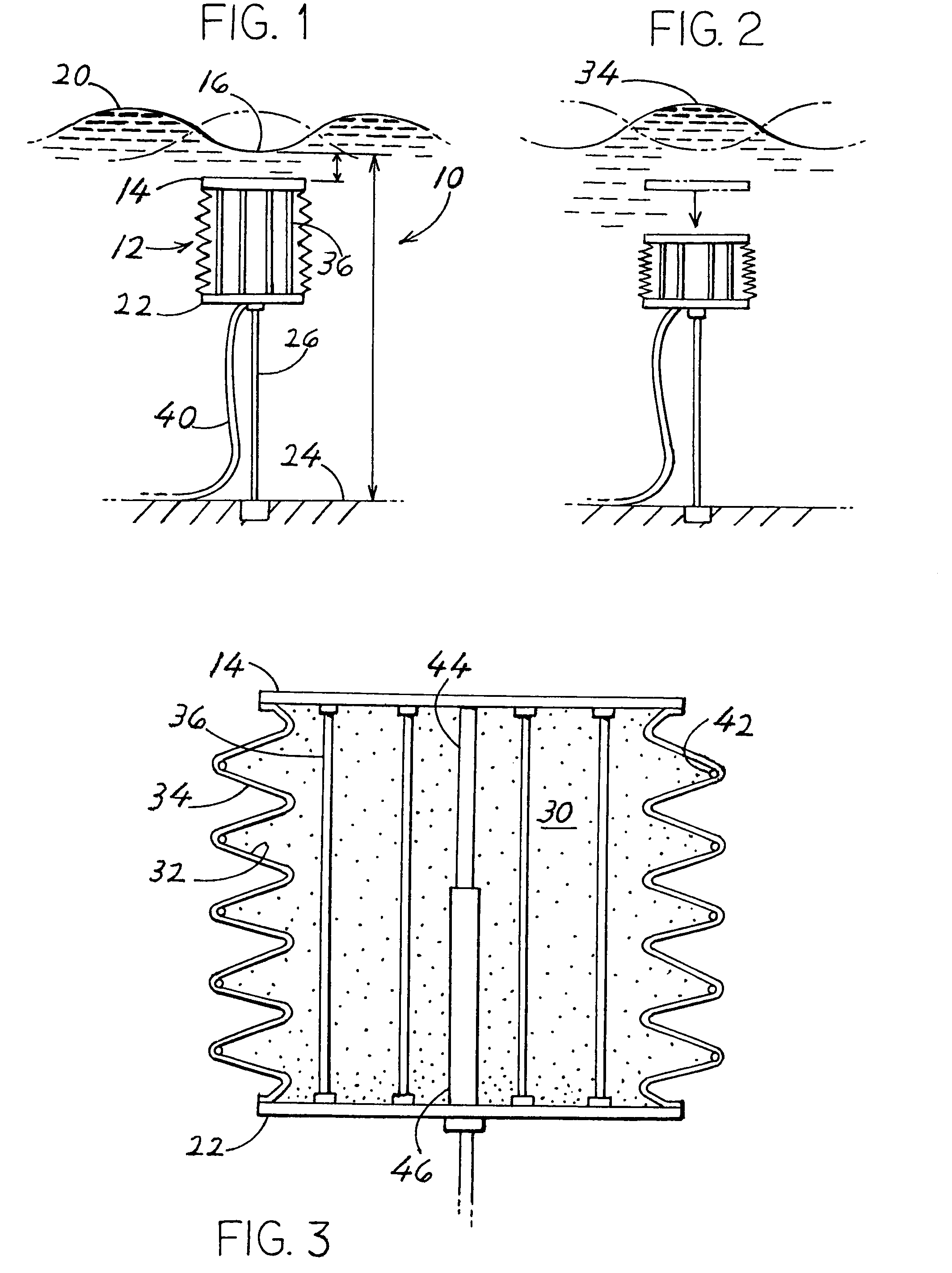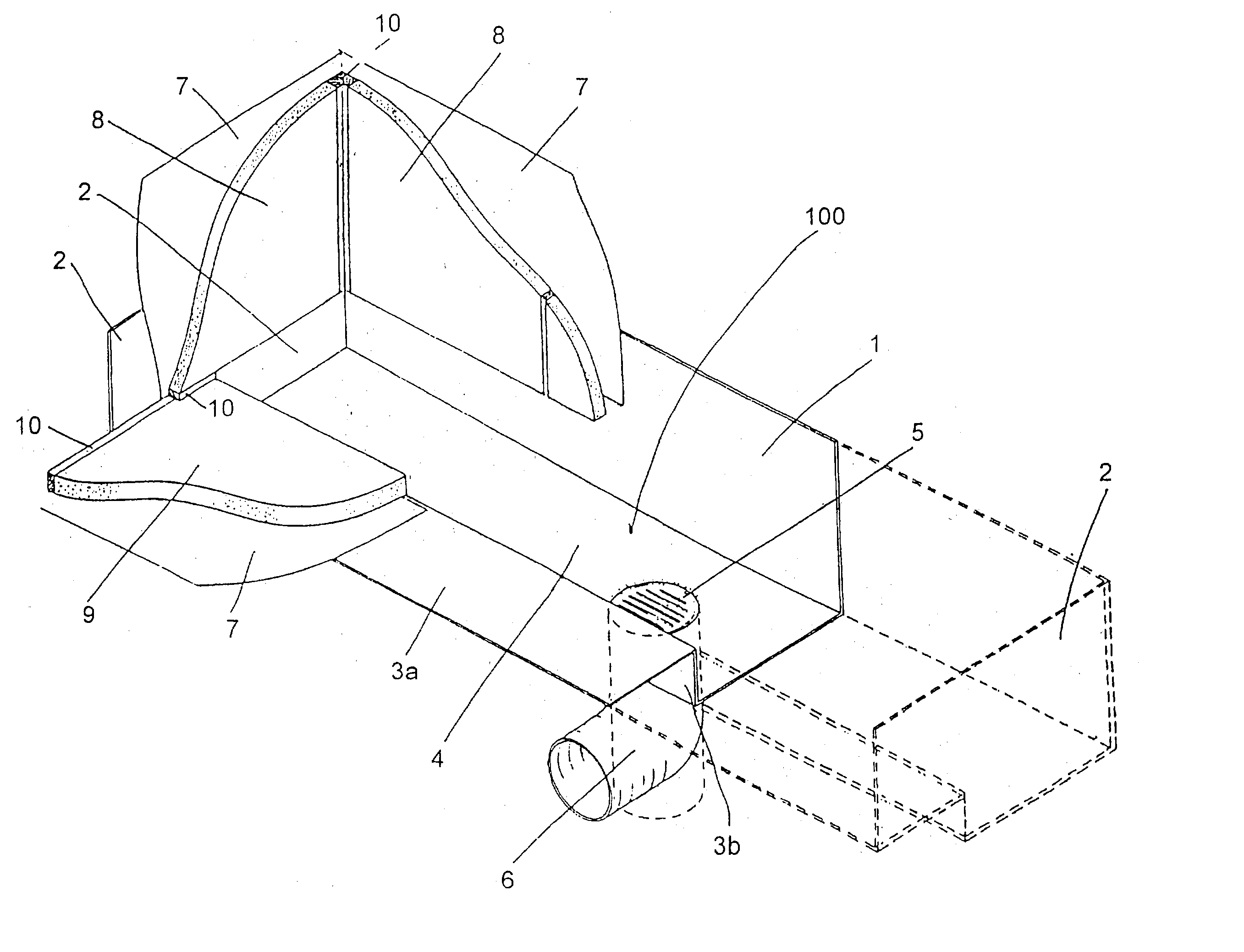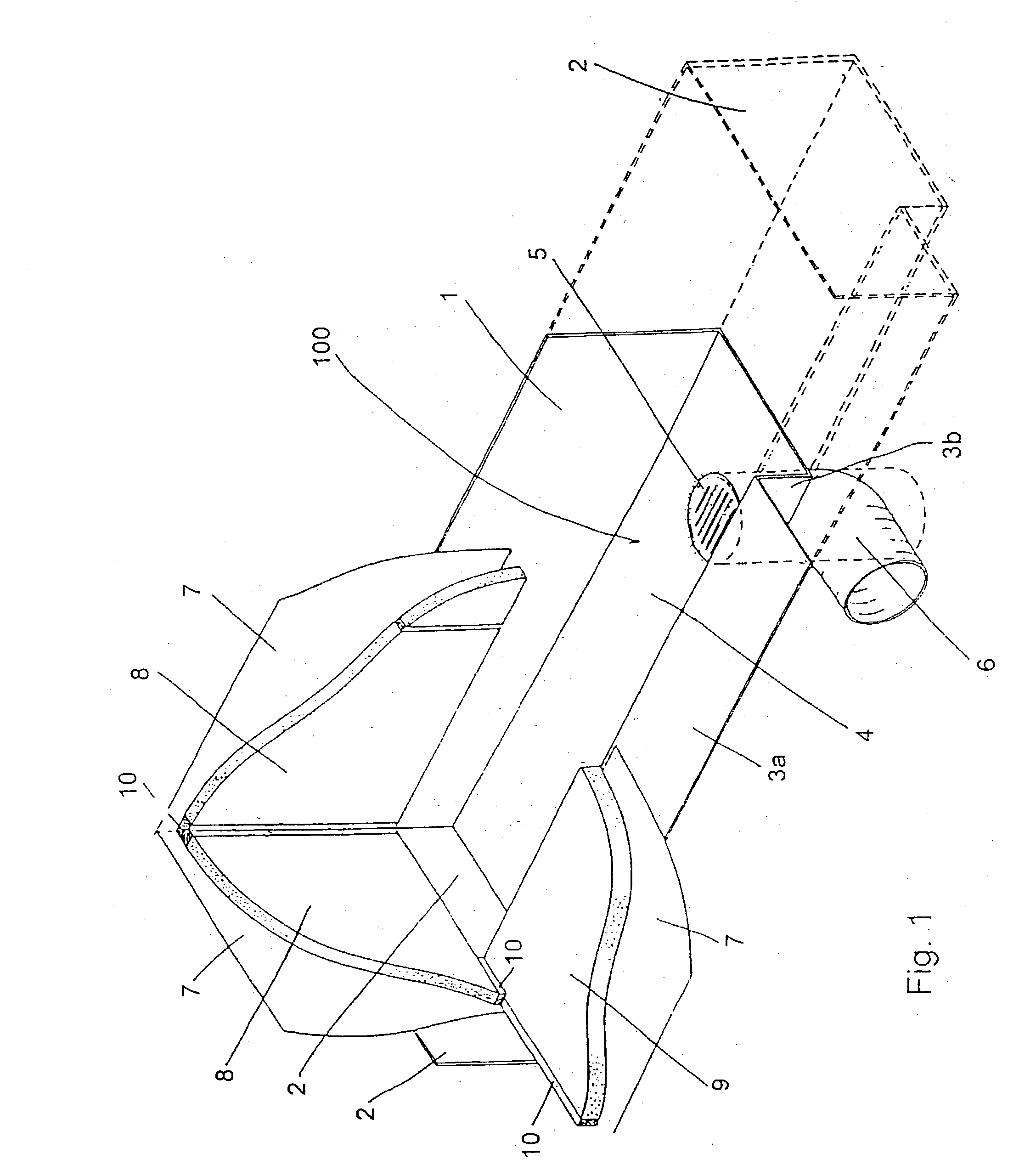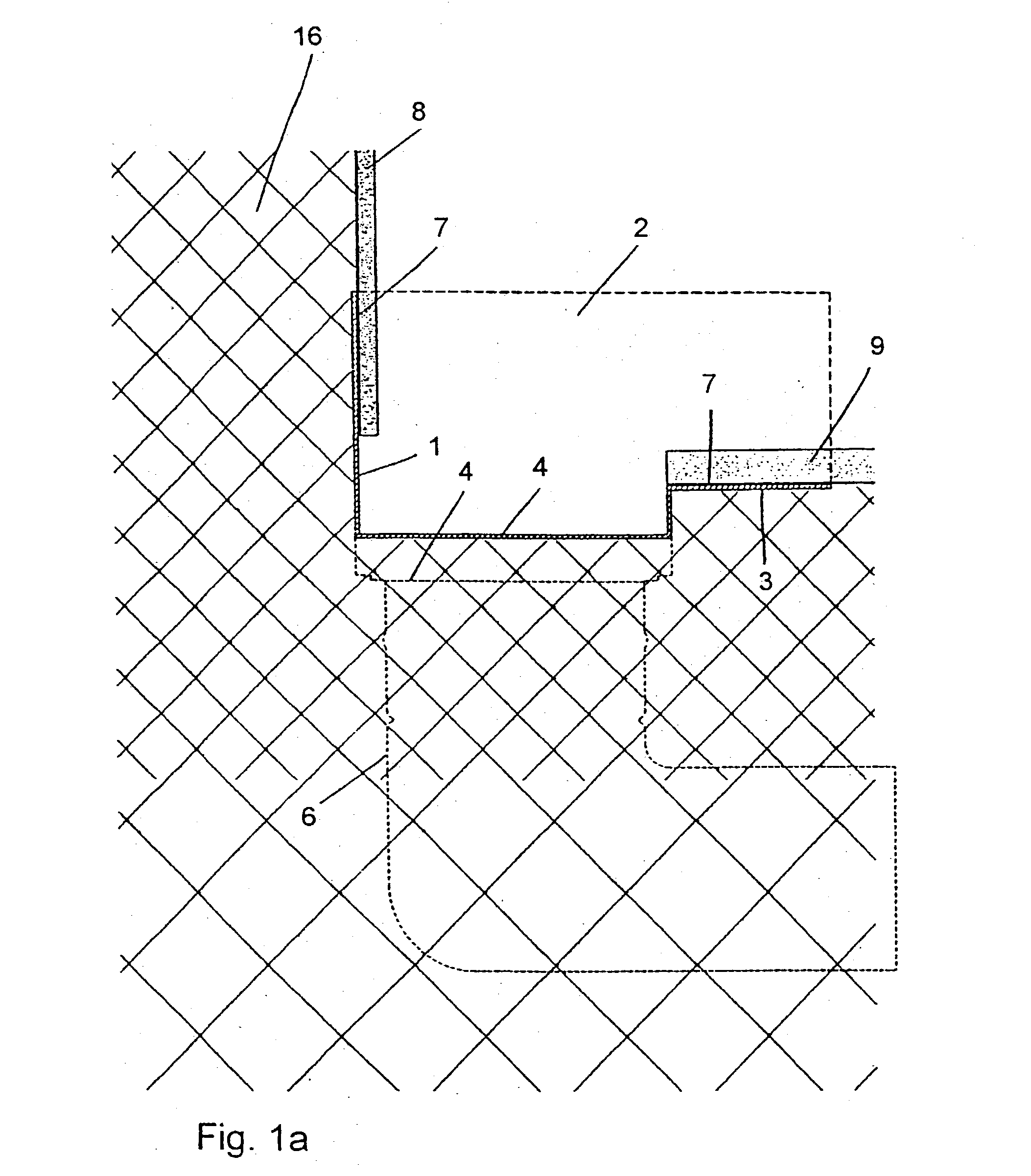Patents
Literature
Hiro is an intelligent assistant for R&D personnel, combined with Patent DNA, to facilitate innovative research.
2196results about "Water-power plants" patented technology
Efficacy Topic
Property
Owner
Technical Advancement
Application Domain
Technology Topic
Technology Field Word
Patent Country/Region
Patent Type
Patent Status
Application Year
Inventor
Surface topography for non-toxic bioadhesion control
A coated surface for resisting or enhancing bioadhesion includes at least one patterned polymer including coating layer having a plurality of features attached to or projected into a base surface. The features each have at least one microscale (<1 mm) dimension and have at least one neighboring feature having a substantially different geometry. The patterned coating layer preferably provides an average roughness factor (R) of from 4 to 50. The coating layer resists or enhances bioadhesion as compared to the base surface.
Owner:UNIV OF FLORIDA RES FOUNDATION INC
Electrical generator having an oscillator containing a freely moving internal element to improve generator effectiveness
InactiveUS7105939B2Motion thresholdImprove abilitiesAuxillariesMachines/enginesElectricityRechargeable cell
An apparatus and method for providing electrical energy to an electrical device by deriving the electrical energy from motion of the device. In one embodiment, the inventive apparatus includes a novel kinetic electrical power generator (KEPG) consisting of an inventive oscillating weight having an internal cavity with a freely movable acceleration element disposed therein, resulting in improved acceleration and oscillation capabilities and lower motion threshold for the weight, a system for converting the weight's oscillating motion into rotational motion, and an electromechanical transducer system for generating electrical energy from the rotational motion. The novel KEPG includes components for modifying the electrical energy for storing and / or feeding the modified electrical energy to the electrical device. Optional components may be included for using the modified electrical energy to recharge one or more rechargeable batteries used in an electric device. Alternate advantageous embodiments of the inventive apparatus include, but are not limited to: a KEPG with multiple inventive oscillating weights to increase velocity and frequency of desirable rotational motion, and a KEPG system utilizing multiple electrically coupled KEPG sub-systems.
Owner:POWER ESTIMATE
Column-stabilized offshore platform with water-entrapment plates and asymmetric mooring system for support of offshore wind turbines
ActiveUS8471396B2Improve performanceEasy to produceWind motor controlWind motor assemblyNacelleMooring system
A floating wind turbine platform includes a floatation frame that includes at least three columns that are coupled to each other with horizontal main beams. A wind turbine tower is mounted above a tower support column to simplify the system construction and improve the structural strength. The turbine blades are coupled to a nacelle that rotates on top of the tower. The turbine's gearbox generator and other electrical gear can be mounted either traditionally in the nacelle, or lower in the tower or in the top of the tower-supporting column. The floatation frame includes a water ballasting system that pumps water between the columns to keep the tower in a vertical alignment regardless of the wind speed. Water-entrapment plates are mounted to the bottoms of the columns to minimize the rotational movement of the floatation frame due to waves.
Owner:PRINCIPLE POWER
Electric power generator equipment
InactiveUS20060017292A1Generate efficientlyLow costGas turbine plantsWater-power plantsWater bathsBody positions
In order to obtain an electric power generator equipment capable of efficiently generating electric power and capable of reducing cost, without a water bath and constructive maximum height, the electric power generator equipment comprises a floating member for floating on a water surface, a power generator installed on an upper surface of the floating member, a cage suspended from a lower end of the floating member and held to a water bottom, a pair of floating bodies positioned in the cage which is separated, a wire rope whose both ends are fixed to the cage, and an air filling-up apparatus for filling up air to each of the floating bodies. The wire rope is winded to a pulley installed an end portion of each floating body and is winded to a pulley installed on the power generator.
Owner:MATSUBARA TADAHIRO
Hydrokinetic generator
An improved method and means for transforming kinetic energy into mechanical energy to generate hydroelectric power. A submersible scoop-like composite structure (10) with a hollow, tapered, inner chamber to funnel moving water through a turbine (22). The structure (10) has a hydrodynamically clean outer hull with cambered surfaces to increase the velocity of moving water to enhance the turbine's (22) efficiency. The structure (10) has a large orifice with a protective grill (14). The body of the structure (10) contains a vertical stabilizer petition (13) to keep the structure (10) parallel with the direction of the moving water. The detachable turbine (22) is housed in a tube (11) attached aft of the structure (10). The detachable generator (25A, 25B, 25C) is housed in a protective housing (12A, 12B, 12C) and attached to the turbine housing (11). The turbine (22) is coupled to the generator (25A, 25B, 25C) by a turbine drive shaft (24) through a gear box (23) to a generator drive shaft (26A, 26B, 26C). The turbine drive shaft (24) is supported by a front vertical support (27) and a rear vertical support (28). The generator drive shaft (26A, 26B, 26C) is protected by a generator drive shaft housing (29A, 29B, 29C). The entire structure is attached to an anchor base (16A, 16B, 18A, 18B, 21) by legs (15A, 15B, 17A, 19A, 19B, 20) The anchor base is fixed to a submerged medium. The scoop-like composite structure is formed from rigid material and submerged, whereby it cannot be seen from the surface. The structure is cost effective, efficient, produces no known pollution, and is not susceptible to weather related damage.
Owner:SALLS DARWIN ALDIS
Yellow River upstream cascade hydroelectric station operation design and optimized dispatching method as well as equipment
InactiveCN101705671AStrong targetingWater-power plantsConventional hydroenergy generationPower stationEconomic benefits
The invention relates to a method for united operation design and optimized dispatching of a Yellow River upstream cascade hydroelectric station, which comprising the following steps of: measuring daily average reservoir level and downstream daily average tail-water level of each power station through a water level sensor; measuring discharged flow of each power station through an ultrasonic flowmeter; establishing a cascade reservoir united optimized dispatching model through a cascade hydroelectric station united optimized dispatching model module; computing and analyzing a cascade hydroelectric station united optimized dispatching path through a dispatching path computation and analysis module; carrying out unified operation design on a cascade hydroelectric station group system through a cascade hydroelectric station group system unified operation design module; and carrying out unified dispatching on the cascade hydroelectric station group system through a cascade hydroelectric station group system unified dispatching module. The invention is simple, clear and practical with high pertinence, can enable average annual energy output of a Yellow River upstream cascade power station group after the power stations in Laxiwa and Jishi valley are put into operation to be increased by about 470 million degrees, and the water supply guarantee rate of Lanzhou cross section to reach95 percent, and has remarkable technical economic benefit.
Owner:WUHAN UNIV +1
Method and apparatus for converting ocean wave energy into electricity
InactiveUS20110304144A1Easy towingLoad minimizationEngine fuctionsWater-power plantsSea wavesEngineering
Owner:DEHLSEN ASSOC LLC
Enhanced pumped storage power system
InactiveUS20050034452A1Effective resourcesEnvironmentally friendlyFluid couplingsFrom solar energyTerrainElectric power system
An enhanced pumped storage power system. More particularly, the invention is a regenerative power system that utilizes the gravitational forces of downward movement of large quantities of water to convert same to electrical energy. In the preferred mode of implementation, the system utilizes a man-made lake at a first level of elevation. Though higher altitudes can be effective, the lake need only be approximately twenty to thirty feet in elevation. The lake, which may exceed one hundred acres in size, may be elevated above and adjacent a natural body of water, such as seawater at a coastline. As such, sandy terrain associated with the region facilitates initial construction of the system. An underground generator is utilized for the power conversion and pumping of the water back to the upper reservoir during times of low energy demand, allowing for significant noise reduction. Importantly, the system of the present invention may be utilized to provide significant levels of power to serve relatively large geographic areas during times of peak energy demand, when other sources of power are more expensive and subject to power outages. Finally, it should be noted that the components of the system are aesthetically-pleasing in nature, allowing the system to be effectively utilized in a residential area.
Owner:DAVIS LESTER
Wave power generator systems
ActiveUS20080267712A1Damps waveLengthened and shortenedWater-power plantsMachines/enginesActive polymerElectricity
Systems are provided for obtaining electrical energy from sea waves using deflectable material, especially EAP (electro-active polymers) type SSM (stretchable synthetic material) that generates electricity when an electrostatic charge is applied to the polymer and it is stretched. In one system (10), a buoyant element (12) has upper and lower parts (14, 22) connected by a quantity (36) of SSM, with the lower part anchored at a fixed height above the sea floor (24) and with the upper part movable vertically to stretch and relax the SSM as waves pass over. In another system (50) the buoy is rigid, but is anchored to the sea floor by at least one line (60) that includes, or is connected to at least a length (64) of SSM material. In still another system (160) a plurality of rigid buoys (162) that float on the sea surface, are connected in tandem by SMM (166, 172) that is stretched and relaxed as the buoys pivot relative to each other in following the waves. The buoys preferably lie with at least 80% of their volume below the average sea surface.
Owner:SINGLE BUOY MOORINGS INC
Surface topography for non-toxic bioadhesion control
ActiveUS20060219143A1Resisting and enhancing bioadhesionDifferent geometryPhotosensitive materialsPumpsCoated surfaceTopography
A coated surface for resisting or enhancing bioadhesion includes at least one patterned polymer including coating layer having a plurality of features attached to or projected into a base surface. The features each have at least one microscale (<1 mm) dimension and have at least one neighboring feature having a substantially different geometry. The patterned coating layer preferably provides an average roughness factor (R) of from 4 to 50. The coating layer resists or enhances bioadhesion as compared to the base surface.
Owner:UNIV OF FLORIDA RES FOUNDATION INC
Waste water electrical power generating system with storage system and methods for use therewith
A method for selectively generating electrical power by using waste water gravity flow to generate electrical power includes attaching ends of a water flow diversion pipe to a waste water pipe. At least some of the waste water flowing by gravity through the waste water pipe is diverted into and through the diversion pipe and back into the waste water pipe. An electrical power generator is driven to generate electrical power in response to the waste water flowing through the diversion pipe. At least a portion of the electrical power generated by the at least one electrical power generator is stored and can be tapped later to supplement the output of the electrical power generator.
Owner:CRIPTONIC ENERGY SOLUTIONS
Low-head efficient shaft-extension tubular pump turbine and blades thereof
ActiveCN103206331AEasy to install and maintainLow costWater-power plantsHydro energy generationPower stationElectric machine
The invention relates to a low-head shaft-extension tubular pump turbine and blades thereof, and belongs to the technical field of energy power. The low-head shaft-extension tubular pump turbine comprises a pump turbine body, a reversible motor, a flow channel and a flow guide mechanism, the flow channel comprises a water inlet section flow channel, a guide blade section flow channel, a runner chamber and an S-shaped exhaust water pipe flow channel which are sequentially communicated, a runner is in transmission connection with the reversible motor through a spindle, the flow guide mechanism is arranged on the other side of the runner, the runner comprises a runner boss and a runner cone, the blades are circumferentially and uniformly arranged on the runner boss, the middle of each blade is thick while two sides of each blade are thin, each blade is in the shape of a three-dimensional warped surface, and spatial characteristics of each blade are indicated by an upper section, a middle section and a lower section. The operation conditions of power generation by a turbine and water pumping by a pump can be simultaneously met and are opposite in water flow direction, namely, the same runner needs to simultaneously meet the double requirements of water pumping and power generation, the efficiency of the two operation conditions can be simultaneously considered, and the low-head shaft-extension tubular pump turbine is applicable to a low-head pumped storage power station.
Owner:重庆航运建设发展(集团)有限公司
Apparatus for hydroelectric power production expansion
InactiveUS7478974B1Maximize productionLower life cycle costsWater-power plantsReaction enginesEngineeringElectric power
Normally hydroelectric dam powerhouses use river flow once before discharging it as turbulent tailwater, ineffective to spin turbines. The present invention uses tapered channels to confine and constrict turbulent tailwater into laminar flow that drives turbines both submersible and floatable utilizing the same water three times concurrently to generate new electricity. Channels originate adjacent to draft tube outlets, constrict in the downstream direction to create narrow necks where turbine / generators benefit from debris free, increased velocity and laminar flows to generate electricity. Hydroelectricity uses zero fuel, creates zero waste and has zero carbon dioxide emissions. Structures are uncomplicated, construction is within project boundaries minimizing environmental impacts and speeding projects coming online. New facilities are protected by existing dam security. Hydroelectricity replaces less dependable renewable energy systems.
Owner:KELLY WILLIAM LOWELL
Wave energy converter
InactiveUS20090309366A1Positive buoyancyImprove braking effectWaterborne vesselsWorking fluid for enginesMooring systemEngineering
A wave energy converting apparatus 44 and its associated tension mooring system 50 is described. The wave energy converting apparatus 44 comprises an elongate support structure 45 designed to extend above a mean water level in the ocean. The support structure 45 has a submerged member 46 provided in connection therewith below the mean water level. A float member 48 of positive buoyancy is slidably mounted on the support structure 45 so as to be movable in a vertical direction. The apparatus 44 also comprises a linear electric generator 49 having a stator provided in connection with the support structure 45 and a translator integrated into the body of the float member 48. Differential motion of the float member 48 relative to the support structure 45 results in the generation of electrical power by the linear electric generator 49. The tension mooring system 50 comprises a cable 51 extending from a ballast means 52 to a counterbalancing means 53 adapted to be suspended from the submerged member 46 via a pulley mechanism 54. The tension mooring system 50 allows the apparatus 44 to be “tuned” to the prevailing ocean conditions.
Owner:PROTEAN ENERGY AUSTRALIA
Extracting energy from flowing fluids
InactiveUS7713020B2Precise positioningLarge outputPump componentsWind motor controlEngineeringFront and back ends
A method and apparatus (10) for extracting energy from flowing fluids using a diffuser (11) which has side walls (14) formed from a series of aerofoil section members (15) with gaps (29) provided between the leading and trailing ends of the members (15) to allow introduction of fluid from outside of the diffuser (11) into the diffuser flow passage (16) such that increased energy can be extracted from the flowing fluid by a prime mover (20) located in the flow passage (16).
Owner:DAVIDSON AARON +1
System for selectively storing and diverting water among multiple reservoirs and method for improving utility of renewable water and energy resources throughout multiple river basins
ActiveUS20080253837A1Improve productivityIncrease productivityMining devicesSoil drainageFluvialSolar power
A high altitude pumped-storage system for selectively integrating, storing, and distributing water and energy to increase the regional productivity of existing and future water and energy resources throughout multiple river basins is disclosed. This system addresses in part the increased requirement of supplying energy demands from a renewable energy source, such as wind, solar, or water generated power. The system includes at least one primary reservoir connected to multiple secondary reservoirs by conduits. The system allows for selectively distributing water and energy between secondary reservoirs and at least one primary reservoir. The system may comprise one or more hydroelectric power generation facilities. A method for increasing the regional efficiency of existing and future systems for producing, storing, and delivering energy from sources such as hydroelectric, wind and solar power from the water collected by the system described herein is also disclosed.
Owner:NATURAL ENERGY RESOURCES
Gutter cover device
InactiveUS6672012B2High trafficOvercome disadvantagesRecord information storageLiquid displacementCoatingCivil engineering
Owner:SOUTHEASTERN METALS MFG
Apparatus for converting ocean wave energy into electric power
An ocean wave energy conversion apparatus includes a float adapted to ride on the surface of the ocean in reciprocal vertical motion in response to ocean wave front action and a lever adapted to ride on the surface of the ocean. The lever has one end coupled to the float. A fulcrum pivotally supports the lever. A magnet is coupled to the other end of the lever. Parallel stator cores having electric coils wound thereon together with the magnet form a magnetic circuit. Springs are adjacent the magnet and interconnected to the lever and the magnet. A barrier is disposed between adjacent stator cores. The upward motion of the float caused by impact of waves will move the magnet downward by the lever and compresses the springs. Downward motion of the float will move the magnet upward by the lever and expand the springs. Repeated movement of the magnet will induce a voltage in the electric coils.
Owner:KUN SHAN UNIVERSITY
Wave energy converter
InactiveUS20050084333A1Easy to generate electricityEfficient dischargeGeneral water supply conservationWater-power plantsOcean bottomEngineering
An improved wave energy converter for use in offshore and deep-sea locations. The wave energy converter is adapted for secure attachment to the bottom of a body of water (e.g., the ocean floor), preferably beyond the breaker zone. The wave energy converter is selectively adjustable in length. A hydraulic power generation system is used to convert the energy present in the waves into hydraulic power that can be use to generate electricity and for other purposes, such as desalinization. The system may include a hydraulic piston assembly, a floatation device that is connected to the piston assembly, high and low pressure hydraulic reservoirs, and a hydraulically driven power generator. The floatation device moves upward in response to rising waves, and downward under the force of gravity in response to falling waves. The system utilizes this downward gravitational force to discharge fluid from the piston assembly, which in turn, drives the power generator. A control system is used to detect water conditions and to selectively adjust the length of the support structure and the fluid flow characteristics to dynamically optimize power generation based on changing water conditions.
Owner:ZADIG STEPHEN J
Buoyancy pump power system
A system for generating electricity includes a pump operable to convert wave motion from a body of water into mechanical energy. The pump includes an input port through which an operating fluid can enter the pump and an output port through which the operating fluid can exit the pump. A first outlet line and a second outlet line are fluidly coupled to the output port of the pump. A first reservoir is fluidly connected to the first outlet line, and a second reservoir is fluidly connected to the second outlet line, both reservoirs being selectively capable of receiving operating fluid driven through the output port.
Owner:INDEPENDENT NATURAL RESOURCES
Buoyancy pump power system
A system for generating electricity includes a pump operable to convert wave motion from a body of water into mechanical energy. The pump includes an input port through which an operating fluid can enter the pump and an output port through which the operating fluid can exit the pump. A first outlet line and a second outlet line are fluidly coupled to the output port of the pump. A first reservoir is fluidly connected to the first outlet line, and a second reservoir is fluidly connected to the second outlet line, both reservoirs being selectively capable of receiving operating fluid driven through the output port.
Owner:INDEPENDENT NATURAL RESOURCES
Tidal energy system
InactiveUS6967413B2Free of greenhouse gasCost effectiveWorking fluid for enginesConversion without intermediate conversion to dcFuel cellsHydrogen
The Tidal Energy System is a structure capable of extracting energy from the potential and kinetic energies of the tides, as well as from ocean waves and offshore wind. Its components operate synergistically in multiple capacities to extract energy from these sources so that the Tidal Energy System operates as unit. The Tidal Energy System is structured so that it can be operated integrally with electrolyzer and fuel cell technology to produce on demand power thus eliminating the pulse character of conventional tidal power. The Tidal Energy System can also generate hydrogen as an end product.
Owner:ATIYA RAMEZ
Self-supported power generation device
InactiveUS20090058092A1Speed up water flowHigh speed rotationWater-power plantsHydro energy generationEngineeringWater collection
A self-supported power generation device is installed in a high building having multiple floors to realize self-supported power supply of low power and simplified arrangement. Water reservoir is arranged in a floor-spaced manner by tanks set in different floors. Each tank has a conic converged lower section forming a discharge opening coupled to a power generator unit that is driven by vanes to generate electrical power. Thus, by the water head supplied from each tank to drive the vanes for rotating the power generator unit, and with a vertical stacked manner of the multiple sets of power generator units and tanks, a multi-floor water-weight-driven power generation assembly is established. A water collection reservoir is provided at the bottommost location to collect the water for cyclic use. Thus, self-supported power generation for self-supported supply of power of a building is realized and environmental protection and healthy concerns are also satisfied.
Owner:CHEN CHUN SHAN
Enhanced pumped storage power system
InactiveUS7003955B2Facilitates initial construction of systemEffective resourcesFluid couplingsFrom solar energyTerrainElectric power system
An enhanced pumped storage power system. More particularly, the invention is a regenerative power system that utilizes the gravitational forces of downward movement of large quantities of water to convert same to electrical energy. In the preferred mode of implementation, the system utilizes a man-made lake at a first level of elevation. Though higher altitudes can be effective, the lake need only be approximately twenty to thirty feet in elevation. The lake, which may exceed one hundred acres in size, may be elevated above and adjacent a natural body of water, such as seawater at a coastline. As such, sandy terrain associated with the region facilitates initial construction of the system. An underground generator is utilized for the power conversion and pumping of the water back to the upper reservoir during times of low energy demand, allowing for significant noise reduction. Importantly, the system of the present invention may be utilized to provide significant levels of power to serve relatively large geographic areas during times of peak energy demand, when other sources of power are more expensive and subject to power outages. Finally, it should be noted that the components of the system are aesthetically-pleasing in nature, allowing the system to be effectively utilized in a residential area.
Owner:DAVIS LESTER
Concrete construction method for extreme cold area in low temperature season
InactiveCN101319494ABenefit as soon as possibleSpeed up construction progressWater-power plantsHydro energy generationExtreme ColdTemperature monitoring
The invention provides a concrete construction method for high-cold areas in low temperature seasons. In the construction method, a whole set of construction standards and specifications for the selection of raw materials, the mixture ratio design of concrete, concrete position, heat preservation during transportation, concrete mixture and pouring, temperature monitoring, concrete maintenance after pouring and other aspects is formulated, so the method solves problems caused by the conventional concrete construction of hydropower projects in high-cold areas and low temperature seasons.
Owner:中国安能建设集团有限公司
Power station on a submerged floating platform
InactiveUS20100264658A1Expensive to installWaterborne vesselsEnergy industryElectricityPower station
The invention relates to a power station on a submerged floating platform consisting of a floating structure (1) submerged at a certain depth, where it is moored by means of guy lines (2) with respect to ballasts or mooring buoys (3) located in the aquatic bed, arranging on said floating structure (1) hydraulic pumping mechanisms (5) which are operated by the weight differential of the water column between the crests and the troughs of the waves when such waves pass over them, in combination with a pneumatic system acting as a spring in said mechanisms (5) for operating an electricity-generating turbine (8) through a hydraulic closed circuit.
Owner:TORRES MARTINEZ MANUEL
Submersible tethered platform for undersea electrical power generation
InactiveUS7470086B2Eliminate needEasy to separateWater-power plantsMachines/enginesElectric cablesSubmarine
A submersible and remotely-operable platform system for carrying out repeated operations in a submarine position, and producing electrical energy as either a primary or secondary purpose by means of one or more energy-conversion payload devices installed thereon. The platform and payload devices may be periodically brought to the surface and thence, if necessary, to a shore-based facility for maintenance or refit. In deployment, the platform is preferably engaged to its mooring lines and electrical cables while still on the surface. Simultaneous with controlled flooding of certain of its volumes, the platform is guided to an operational depth and attitude by the action of its winch assemblies upon their engaged mooring lines. Subsea currents energize the platform's payload of energy conversion devices, the electrical output being preferably conveyed via one or more surface-attached cables to an off-board facility for further processing, distribution, or consumption.
Owner:JENNINGS CLIFFORD ALLEN +1
Renewable Energy System
A water based renewable energy system is shown which uses tidal flow and an associated water wheel / weir assembly to provide pumping power for the system. A water wheel powered pump and associated piping are used to raise water from a lower lake reservoir to a higher storage lake reservoir. The water which is pumped to the higher storage lake can be released to a generator located at a lower elevation and then returned to the lower storage lake. The cycle can then be repeated by again pumping water from the lower lake to the upper lake. The pumped storage provides flow and head to generate electric power through the turbine generator.
Owner:EKERN ROD
Wave power generator systems
Systems are provided for obtaining electrical energy from sea waves using deflectable material, especially EAP (electro-active polymers) type SSM (stretchable synthetic material) that generates electricity when an electrostatic charge is applied to the polymer and it is stretched. In one system (10), a buoyant element (12) has upper and lower parts (14, 22) connected by a quantity (36) of SSM, with the lower part anchored at a fixed height above the sea floor (24) and with the upper part movable vertically to stretch and relax the SSM as waves pass over. In another system (50) the buoy is rigid, but is anchored to the sea floor by at least one line (60) that includes, or is connected to at least a length (64) of SSM material. In still another system (160) a plurality of rigid buoys (162) that float on the sea surface, are connected in tandem by SMM (166, 172) that is stretched and relaxed as the buoys pivot relative to each other in following the waves. The buoys preferably lie with at least 80% of their volume below the average sea surface.
Owner:SINGLE BUOY MOORINGS INC
Drain and a building structure having a drain
Owner:UNIDRAIN
Features
- R&D
- Intellectual Property
- Life Sciences
- Materials
- Tech Scout
Why Patsnap Eureka
- Unparalleled Data Quality
- Higher Quality Content
- 60% Fewer Hallucinations
Social media
Patsnap Eureka Blog
Learn More Browse by: Latest US Patents, China's latest patents, Technical Efficacy Thesaurus, Application Domain, Technology Topic, Popular Technical Reports.
© 2025 PatSnap. All rights reserved.Legal|Privacy policy|Modern Slavery Act Transparency Statement|Sitemap|About US| Contact US: help@patsnap.com
